CEO SPECIAL: THE JET SETTERS






In our most prestigious issue of the year, we speak with Dan Taylor, Marina Ostrovtsova, Natalia Hilevych, Steve



















In our most prestigious issue of the year, we speak with Dan Taylor, Marina Ostrovtsova, Natalia Hilevych, Steve












As we welcome 2023 with open arms, we would like to wish a Happy New Year to all our Gambling Insider readers, partners and contributors. No less than six of the industry's most in uential leaders feature in this year's CEO Special, which will be distributed en masse at February's ICE London trade show. Flutter International CEO Dan Taylor opens proceedings, speaking to Louis Thompsett at Flutter's London HQ. On page 38, Taylor walks him through a career that's seen him work with the Daily Mail, Teletext Holidays and – not least – manage several of Flutter's high-pro le global brands.
Over at Light & Wonder, I speak to Gaming CEO Siobhan Lane (page 44), who provides one of the management quotes of the year when she says her job is to enable every one of her team's "superpowers." Unsurprisingly, Lane learned volumes about the industry in 12 years at Aristocrat and is now bringing those lessons to the fore at Light & Wonder's Gaming division.
On page 50, Hoiana President & CEO Steve Wolstenholme represents the land-based industry in Vietnam, as he tells me all about a career that has taken him to Florida, the Bahamas, the Philippines, Macau, Niagara Falls and many more luxurious destinations. This issue's theme is 'the jet setters' – and Wolstenholme probably embodies this best.
Meanwhile, Peter Lynch speaks with Tsachi Maimon, whose role has expanded as Aspire Global CEO since also becoming President of NeoGames. What I love most about these interviews is you get to know the person behind the exec; it turns out Maimon is a keen tennis player, who now regularly plays padel in Spain!
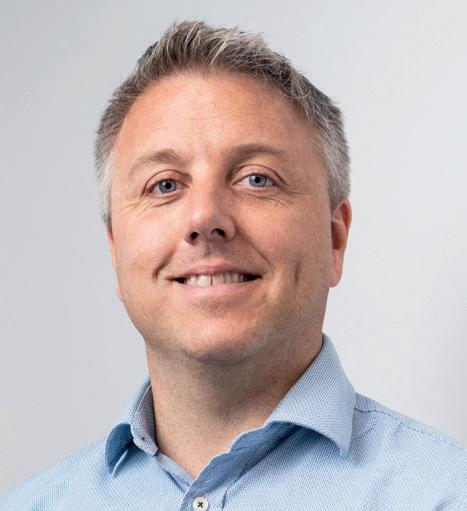
BGaming CEO Marina Ostrovtsova provides a fresh approach to our line-up. In a joint interview with myself and Louis Thompsett, Ostrovtsova discusses her unique rise and why it's important to give people the freedom to actually make mistakes...
Completing our CEO Special, I've left mention of Natalia Hilevych until last, because our emotive discussion will stay with me forever. The inspirational Parimatch Eastern Europe CEO fought back tears as she talked me through life as a CEO in a wartorn country. It's an interview you don't want to miss.
My nal message hits an equally emotional tone. The late Peter Nolan featured in our November/December edition, for the very last interview of his life. His sudden departure has broken the hearts not only of his family and his Digitain colleagues, but everyone who knew him in gambling. A titan of our industry, may he rest in peace.
TP,
COO, EDITOR IN CHIEF
Julian Perry
EDITOR
Tim Poole
Tim.Poole@gamblinginsider.com
STAFF WRITERS
Peter Lynch
Peter.Lynch@gamblinginsider.com Matthew Nicholson Matthew.Nicholson@gamblinginsider.com
JUNIOR STAFF WRITER Louis Thompsett Louis.Thompsett@gamblinginsider.com
LEAD DESIGNER Brendan Morrell
DESIGNERS
Olesya Adamska, Christian Quiling
DESIGN ASSISTANTS
Radostina Mihaylova, Svetlana Stoyanova, Gabriela Baleva
MARKETING & EVENTS MANAGER Mariya Savova
PRODUCTION ASSISTANT Sophie Blocksidge
FINANCE AND ADMINISTRATION ASSISTANT Julia Olivan

IT MANAGER Tom Powling
COMMERCIAL DIRECTOR Deepak Malkani
Deepak.Malkani@gamblinginsider.com Tel: +44 (0)20 7729 6279
SENIOR ACCOUNT MANAGER Michael Juqula Michael.Juqula@gamblinginsider.com Tel: +44 (0)20 3487 0498


SENIOR BUSINESS DEVELOPMENT MANAGER - U.S. Aaron Harvey Aaron.Harvey@playerspublishing.com Tel: +1 702 425 7818

BUSINESS DEVELOPMENT MANAGER - U.S. Erica Clark Erica.Clark@gamingamerica.com Tel: +1 702 949 5534
ADVERTISING SALES EXECUTIVE - U.S. Ariel Greenberg Ariel.Greenberg@playerspublishing.com Tel: +1.702 833 9581

ACCOUNT MANAGERS William Aderele William.Aderele@gamblinginsider.com Tel: +44 (0)20 7739 2062
Irina Litvinova Irina.Litvinova@gamblinginsider.com Tel: +44 207 613 5863
Maya Lakhenpaul maya.Lakhenpaul@gamblinginsider.com Tel: + 44 207 739 9918
Martin O'Shea Martin.Oshea@gamblinginsider.com Tel: +44 (0) 207 729 0643
BUSINESS DEVELOPMENT MANAGER
Michelle Pugh Michelle@GlobalGamingAwards.com Tel: +44 (0)20 7739 5768 CREDIT MANAGER Rachel
Julian Perry, COO, DAN TAYLOR CEO, Flutter International SIOBHAN LANE Gaming CEO, Light & Wonder Tim Poole, Editor



80 A fallen star Philip Crawford of the New South Wales Gambling Commission discusses The Star Entertainment's regulatory failures
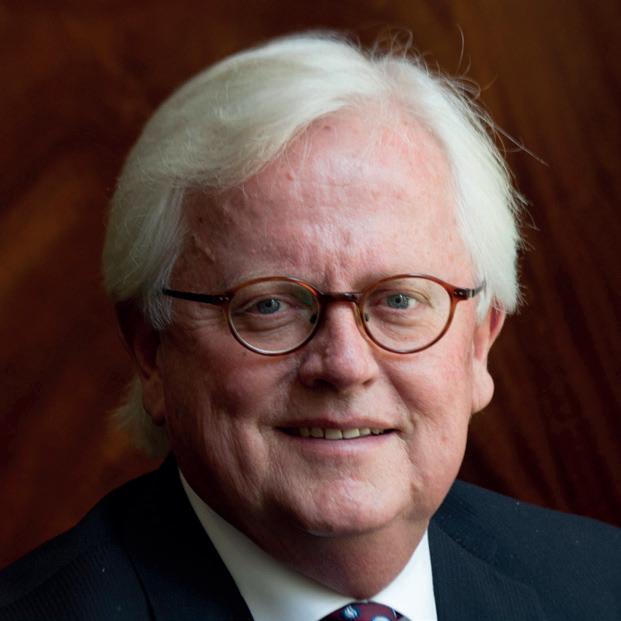
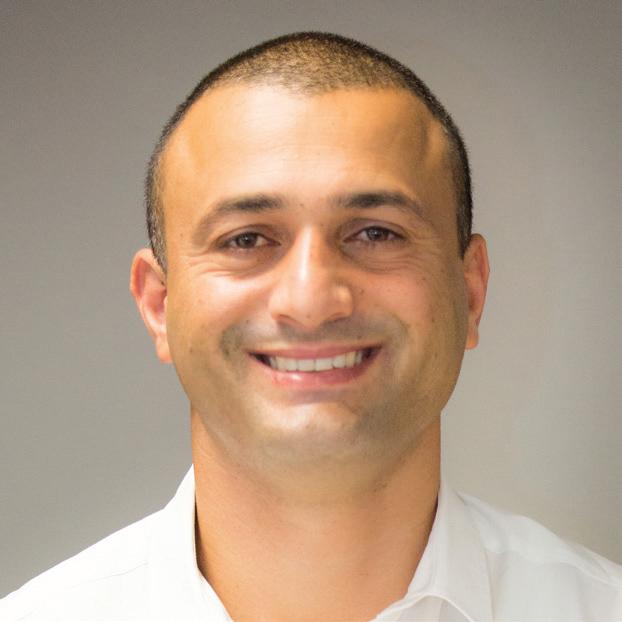
Softswiss CMO Valentina Bagniya talks about her aims for the company's marketing department



Source: Caesars Entertainment • Las Vegas, Regional and Caesars Digital all increased year-on-year • Managed and Branded decreased year-on-year. However, what is most notable is that Caesars’ Digital segment more than doubled in terms of revenue – its importance to Caesars will no doubt further grow with time
Las Vegas Sands Q3 2021 and Q3 2022 Macau revenue per venue
Source: Las Vegas Sands
• Macau operations totalled $258m
• Total Q3 2022 revenue amounted to $1.01bn
Source: MGM Resorts International
• Total Q3 2022 revenue was $3.4bn • This represented a 26% increase from Q3 2021 revenue of $2.7bn; Las Vegas Strip Resorts saw the biggest increase year-on-year
Source: Rush Street Interactive
• Revenue grew 20% year-on-year, which was RSI’s 14th consecutive quarter of sequential revenue growth
• However, much like with DraftKings in recent years, but on a smaller scale, net loss also increased
Source: Betsson, Kambi, LeoVegas
• Betsson revenue was up 18% year-on-year • However, Kambi and LeoVegas revenue totals were down 12% and 1% respectively

Source: Flutter Entertainment
• Total Q3 2022 revenue amounted to £1.89bn ($2.18bn) • US had the highest revenue climb with 82% year-on-year growth
Source:

In partnership with Gambling Insider, Fantini Research provides data from around the US. In this issue, we analyse November iGaming revenue from Pennsylvania, Michigan, Delaware and West Virginia
IGAMING: The large part of Delaware’s iGaming revenue can be attributed to Delaware Park, which almost generated as much as the state’s other two iGaming money-makers, Bally’s Dover and Harrington, combined. With $478.599 made in November, Delaware Park’s results were up 23% year-on-year. By comparison, Harrington saw its revenue languish in year-on-year terms, falling 7%.
IGAMING: In line with recent trends, BetMGM continues to dominate the iGaming market in Michigan, generating a hefty $53.6m for November, up 34% year-on-year. However, keeping to its promise of driving growth in its iGaming segment, FanDuel has grown this segment by 62% year-on-year in Michigan by making $27.1m. Meanwhile, the biggest iGaming growth came from Rush Street Interactive, which expanded its Michigan iGaming revenue by 102% year-on-year.
IGAMING: Unsurprisingly it was Pennsylvania’s Hollywood casino which generated the most from iGaming, with its multiple partner operators DraftKings, Entain/MGM Resorts and Penn Entertainment helping Hollywood generate $55.7m in revenue for November, up 49% year-on-year. IGaming revenue from Valley Forge, which is operated by Flutter, also saw a 61% rise annually, consistent with Flutter’s iGaming growth across other markets. At the other end of the scale, the Churchill Downs-operated Presque Isle saw its revenue fall 89% year-on-year, with the horseracing operator shifting its focus on land-based acquisitions in recent months.
CHANGE (%) YEAR-ON-YEAR
Hollywood $55.655 DKNG, ENT/MGM, PENN +48.89
Rivers Philadelphia $27.485 RSI, MGM +13.40 Valley Forge $26.473 FLTR +60.60
Mount Airy $4.859 FLTR +3.46 Parx $4.804 Greenwood +50.44
Caesars Interactive $3.712 CZR +72.99 Mohegan $2.019 Kindred +4.17
Live! Philadelphia $1.919 Cordish +24.46 Wind Creek Bethlehem $1.545 Wind Creek +89.57 Presque Isle $0.167 CHDN -88.51
iGaming Total $128.639 +37.01
IGAMING: West Virginia saw iGaming gains across the board, with revenue from Penn Entertainment-operated Charles Town rising 97% year-on-year for November. Century Casinos’ Mountaineer location also posted strong growth of 63%, while Greenbrier’s revenue rose 62% from the prior-year period for November.
Charles Town (PENN) $5.111 +97.34 Mountaineer (CNTY) $1.531 +63.08 Greenbrier $6.612 +61.64
Total $13.254 +73.95
www.FantiniResearch.com MORE IMPORTANT THAN YOUR MORNING COFFEE
Global Betting & Gaming Consultants (GBGC), the global gaming data expert, provides exclusive statistical data to markets from around the globe; visit www.gbgc.com
South Korea horseracing handle and GGY (2017 – 2021) South Korean Won (KRW bn)
The graph shows South Korea's horseracing handle and gross gaming yield (GGY) in billions won for the period 2017 – 2021.
• The Covid-19 pandemic had a devastating effect on the industry, with handle and GGY falling 85% YoY in 2020, erasing KRW 1.68trn from operator GGY.
• This negative trend continued into 2021, with handle down 3.8% YoY, and GGY down 7% YoY.
The graph shows Liechtenstein casino GGY in millions of Euros, for the period 2017 - 2021.
• Liechtenstein re-legalised casinos in October 2016. In the span of four years, five casinos opened. GGY per venue was €16.5m ($17.9m) in 2021. The sixth venue opened in May 2022.
• However, six casinos in a country with a population of less than 40,000 people sparked debate and problem gambling concerns were raised.
• An initiative was organised and a referendum on casino bans was set for 29 January 2023.
• In the meantime, two venues closed – one in July 2022 and a newly opened one in November 2022.
The graph shows Brazil lotteries' sales and GGY, in billions of Reals for the period 2016 to 2021.
• Brazil has a well-developed lotteries market, unlike other gambling sectors (only sport and race betting is allowed to some extent, in addition to the lotteries).
• In the period from 2016 to 2021, lottery sales averaged BLR 22.5bn a year with an average growth rate of 7% a year.
• The lotteries market consists of Caixa's lottery games, which are available throughout Brazil and six state-level lotteries.
• In September 2020, the Supreme Court issued a ruling which states that lotteries are a public service and can be offered by each state.
• The ruling asserted the right of states to authorise additional lotteries and nine opted to do so, but none of the newly established lotteries are yet operational.
The graph shows the gaming machine market in the South African Republic, in millions of Rands, in the period 2014 – 2021 (fiscal years).
• The gaming machine market in South Africa consists of limited payout machines (LPMs).
• LPMs are present in all nine South African provinces, their cap is set at 50,000 with the maximum stake and pay-out set at R5 and R500, respectively.
• The market grew at an average rate of 13.4% in the pre-pandemic period (2014 – 2020).
• In South Africa, fiscal year (FY) ends 31 March, so the effects of the Covid-19 pandemic were obvious in the FY 2021, when GGY dropped 33.9% YoY.
The graph shows French land-based and online sports betting handle and GGY, in millions of Euros, for the period 2010 – 2021.
• France opened its online wagering (and poker) market in 2010. Up until then, Française des Jeux (FDJ) was the only provider of sports betting over the internet.
• The company is still the monopoly operator of land-based sports betting in France.
• Due to the online wagering options, the market fared well through the pandemic, with handle falling only 1% YoY in 2020, followed by a 44% YoY increase in 2021.
• The French sports betting market evolved from a modest €1.5bn in handle in 2010 to €8.5bn in 2021.
Gambling Insider tracks operator and supplier stock prices across a six-month period (July to December 2022). The stock price is taken from the first day of each month
200 888 HOLDINGS
GBP
• Six-month high - 172.40 (July) • Six-month low - 95.85 (Nov) • Market capital - £457.5m (US$562.5m)
CAESARS
• Six-month high - 51.84 (Dec)
• Six-month low - 34.15 (Oct) • Market capital - US$11.02bn
LAS VEGAS SANDS FLUTTER ENTERTAINMENT
• Six-month high - 46.89 (Dec) • Six-month low - 35.28 (July) • Market capital - US$36.64bn

EVOLUTION
• Six-month high - 198.75 (Dec)
• Six-month low - 158.85 (Oct)
• Market capital - SEK 6.11bn (US$590m)
• Six-month high - 25.06 (Dec)
• Six-month low - 16.29 (Oct) • Market capital - US$5.08bn
• Six-month high - 1,081.60 (Dec)
• Six-month low - 831.65 (Sept) • Market capital - SEK 232.05bn (US$22.48bn)
• Six-month high - 12.22 (Dec) • Six-month low - 8.58 (July) • Market capital - US$317.3m




The Global Gaming Awards London is fast approaching. With the full nominations list now available in print and on the Gambling Insider and Global Gaming Awards websites, we delve into our 2023 Shortlist for the prestigious Executive of the year Award here. This category is one of 16 at the Global Gaming Awards, which also includes the newly added Platform Provider of the year and Online Slot of the year Awards. Once again, the Awards will be held at London’s Hippodrome Casino, which will be livestreamed on Gambling Insider’s website and LinkedIn page.

With a rigorous nomination and voting process, the Global Gaming Awards are the most reputable and prestigious in the industry. With voting undertaken by a panel of 50+ C-level executives, all Awards are decided on merit, with KPMG in the Crown Dependencies independently adjudicating the full voting process to ensure transparency and fairness. This year, the Executive of the year category is sponsored by Gamomat.
Gambling Insider Editor-in-Chief Julian Perry commented on the finalisation of the Shorlist: “It’s great to see the Shortlist now complete, featuring 25 esteemed contributors to our industry making the executive category. A huge congratulations to all executives who made it onto this year’s list. Most of all, however, thank you to all 25 nominees for working tirelessly on creating a better and more responsible gaming industry.”
So, who will take the gong this time around, following bet365 Founder & CEO Denise Coates’ success in 2022? Such nominees looking to win the Award

are Gambling Insider’s CEO Special participants, Parimatch Eastern Europe CEO Natalia Hilevych and Flutter Entertainment International CEO Dan Taylor.
Hilevych has faced a unique and difficult set of circumstances leading Parimatch’s operations in the war-torn Ukraine. But despite these monumental challenges, Hilevych has helped drive new developments to ensure results remain positive for Parimatch’s Eastern European business.
Meanwhile, Taylor, who has been CEO
of Flutter Entertainment's International division since it was rebranded from Paddy Power Betfair in 2019, has overseen several acquisitions under both brand names. This includes the purchase of Georgian operator Adjarabet, and more recently in 2022, Taylor and Flutter’s International division completed the acquisition of Italian operator Sisal.
Also on our Shortlist is the Executive Chairman of the Hippodrome Casino itself, Simon Thomas. Thomas has overseen numerous renovations at the casino in recent times. Even “a few inches” in table layout can “make all the difference” to a casino floor as far as Thomas is concerned, and it is this attention to detail which secured his nomination.
Other names in the Executive of the Year category include Entain CEO Jette Nygaard -Andersen, who headlined the company’s Entain Sustain conference in 2022; CEO of

"It’s great to see the Shortlist now complete, featuring 25 esteemed contributors to our industry making the executive category"
company’s purchase of all William Hill’s
non-US assets in the course of the last year; and Allwyn Group CEO Robert Chvátal, who led the company’s effort to be officially awarded the National Lottery licence in the UK for the next 10 years. The full Shortlist for the Global Gaming Awards London is detailed below:
• Robert Chvátal, Group CEO, Allwyn


• Gustaf Hagman, CEO, LeoVegas
• Natalia Hilevych, CEO, Parimatch Eastern Europe
• Jette Nygaard-Andersen, CEO, Entain

• Carsten Koerl, Founder & CEO, Sportradar

• Simon Thomas, Executive Chairman, The Hippodrome Casino
• Neil Fairweather, Chief Marketing Operations Officer, bet365


• Jenna Ekström, Responsible Gaming Manager, Paf
• Aregnaz Hakobyan, Group Chief Marketing Officer, Digitain

• Walter Bugno, CEO, Games Global

• Simon Hammon, CEO, Relax Gaming




• Tsachi Maimon, CEO, Aspire Global
• Dan Taylor, International CEO, Flutter Entertainment
• Itai Pazner, CEO, 888 Holdings

• Olabimpe Akingba, Executive Secretary, Association of Nigerian Bookmakers
• Valentina Bagniya, CMO, Softswiss
• Brigid Simmonds, Chair, Betting & Gaming Council

• Erwin Van Lambaart, CEO,


•








Casinos Austria Pascal Camia, COO, Monte-Carlo Société des Bains de Mer
• Michael Silberling, CEO, Metropolitan Gaming


• Stéphane Pallez, Chairwoman and CEO, FDJ (Française des Jeux)
• Irina Cornides, COO, Pragmatic Play




• Lara Falzon, President & COO, Bragg Gaming Group
• Petra de Ruiter, CEO, Holland Casino
• Jesper Svensson, CEO, Betsson Group
After the Global Gaming Awards 2023 in February, Gambling Insider will host two further Global Gaming Awards this year– our flagship event in Las Vegas in October and, before that, the second edition of the Global Gaming Awards Asia. More details will be released closer to the dates but, for now, we wish all nominees the very best in London.





Welcome back onto the GI Huddle , Stuart! With ICE London coming up in February, we want to hear all about what’s new and what’s on the agenda. Can you give us an intro into the main plans and themes that are going into 2023’s event?



I can’t quite believe we’re back again at the business end of delivering ICE. Really, it feels like it’s come so soon after last year’s April show. We’ve got a slightly shorter lead time coming into the show, but I’m pleased to report that everything is looking really strong. It’s very different from this time last year, when we were battling with all of the challenging Covid-19 conditions. There are still challenges out there, but not to the same extent as we had last year.
So, yes, we’re building momentum for ICE in February and we’re in a good spot. We’ve got a full-scale ICE in planning and preparation for everyone in February. We’ve obviously got all the big brands that weren’t there in April for the reasons everyone knows. They’ve all returned, which is great. At the moment, the show is pretty much sold out in terms of exhibited content, and it will be the biggest ICE we’ve ever run. So that is driven by the fact there’s been a nice bounce-back





for the gaming industry. Certainly, the land-based during Covid is getting back to



industry that suffered the most during Covid is getting back to its pre-pandemic levels. I know the US was strongest back then and that Europe has been catching up, so that element around the land-based industry at ICE is going
to be prevalent in February.
I think considering the demand to see what’s new, and that opportunity to look forward to the future and plan for the next couple of years, ICE is the time to do that. I think that’s looking very exciting. It’s a full sector, full geographical split of ICE back to its normal strength – but hopefully a little bit stronger because it will be three years since we’ve held a full-scale ICE. There’s a lot of anticipation, but everything is looking really strong.
For anyone who was new to ICE last year, how would you sum up how different it’s going to be this time around, given the fact it’s going to be full-scale?
I see the difference between, as you say, a lot of online presence last year – but with the big land-based presence back this year. It missed some of the big bellwether brands, for sure. But, personally, walking the show was very satisfying and considering the challenges we had to make it happen, we were really proud.
I’m excited that we had 25,000


good mix of attendees from big slot machines that add back. twice the size of what it was in April.
I’m excited that we had 25,000 attendees, which was really satisfying, and it was a really good mix of attendees from across the globe. But it definitely was missing some of those bigger bellwether brands, certainly from the land-based industry, the big slot machines that add an extra feeling of Las Vegas. All of that is back. Obviously, the show will be almost twice the size of what it was in April. I certainly think we will break
Watch the full video online at gamblinginsider.com/gi-huddle
"IT’S ICE BACK TO ITS NORMAL STRENGTH

some records based on the trends we’re seeing now. I think the 2020 event was about 35,000 attendees. We’re looking forward to getting the whole industry back together. And while the volume of people there is clearly important for us, it’s that quality of those buyers that exhibit, as well. So if you came to the April show last year, it will be more of everything you saw but a wider split of sectors. You’ll see some of the bigger brands back, some of the bigger infrastructure and slot machines from the casino industry.
And then all the things we invested in and we developed for the April show will have evolved. I think if you operate in the gaming industry and you can make it to London in February, then for sure, it’s almost not negotiable in my mind.
In terms of anything new Clarion might be planning, or anything you’re introducing, is there anything in that area for the February show in 2023?
Well, there was quite a lot of work that we put into the April show. In all honesty, I think when we had that break in 2021, we didn’t run the shows and obviously weren’t doing a huge amount. I guess we were closed like the casino industry was closed during that period and like most industries were.
So we took that moment to reflect. At first, people were thinking, gosh, will live events ever come back? While virtual events were quite novel at the beginning, I think by the end, people got sick of it. It’s not comparable.
We’ve put a lot of investment into things like our ICE365 new studio. We’ve also got our Consumer Protection Zone this year, which has been something that’s been running for about four or five years now – and it keeps growing. Player protection is paramount to the future success of the industry so everyone’s taking it seriously; and it’s our responsibility to create a platform for that, so we’ve grown it. It’s bigger than it’s ever been before. We put it in the most prominent location and added another five or six safer gambling brands in that space.
We’ll also have all the usual platforms for connections at ICE Vox. Our editorial tracks are looking their best ever. I think we spend a huge amount of time on what those pain points are in the industry and what those opportunities are creating. There are the masterclasses where people come and get a real level of education, either personally to advance themselves or their business.
On that education piece, what themes and panels are the standouts this year?

I know esports was a big focus last year, among other things. But is there anything that’s standing at the top of the agenda for 2023?
The main themes tend to be fairly consistent. Obviously anything in that regulatory arena is always in high demand. I think from a UK perspective, there are rumours the White Paper will be released between now and the show potentially... There’s lots of content that’s being derived around that and we are, I think, having some topics and sessions around that. There’ll be more clarity on what that looks like for the show. I think things like emerging new markets,
something our customers are always asking for information about. How do they get into new markets while navigating all the pitfalls and opportunities? That’s certainly a theme moving forward.
Then I think what we’ve tried at ICE over the last few years, which hasn't quite landed as well as perhaps we thought, was certainly from the casino industry looking at that Las Vegas model – and thinking about some of those Las Vegas casinos that have enhanced and changed their offering slightly; to either attract a younger player or to attract different revenue streams.
That model hasn’t always been applied to the European model in some respects. We’re looking at that, and definitely some of the European casinos are adapting how they present themselves and looking at almost future-proofing their business.
There are lots of topics, themes, discussions and masterclasses I think will be really, really interesting, to see how the post-Covid casino industry is evolving. We hope to facilitate all those and try and help those connections. But all the information on the ICE Vox and education is on the website. It’s all pretty much updated. So I encourage any of your listeners and readers to dive in and see what floats their boat. The good thing about the masterclasses since we redesigned them last year is that you can cherry-pick what you’re interested in, rather than buy a conference ticket that includes things not relevant to you.
For our final question, could you talk us through your plans for the rest of the year beyond ICE London, including iGB Live at Amsterdam?
Well, getting February over the line after three long years will be really satisfying. It won’t just be a feeling of ‘we've achieved it, we got it back’ but also I think there’s going to be this genuine, real excitement about getting back together. I felt that when I was over at G2E in Las Vegas; it was great to be at that show. I think it was one of the best they've ever had. I think there was a real energy of the industry coming back together – and I would hope that is a great precursor to ICE.
We've then got iGB Live in Amsterdam, which is exciting. Obviously it doesn't really compare to the London shows in terms of size and scale, but it’s distilled down and there’s satisfaction from buyers and sellers there. It's definitely growing and we're enhancing that in lots of different ways, so that picks up the main part of our year. At the moment, we're just putting the finishing touches on a new opportunity with the iGB brand out in the US. It’s currently scheduled for in and around the end of November/December time. It is sitting in the sports betting space, but also with our partners at the Indian Gaming Association. So it's good for our brands to get out again and be entrepreneurial, looking at new markets and sectors; and that's something we're excited about. In US sports betting and the evolution of online gaming, certainly with our tribal partners, there's a real excitement to get something in that market space. Watch this space.



Flutter International CEO Dan Taylor meets Louis Thompsett to reflect on his rise through the ranks at Paddy Power Betfair, his directorial experiences at digital media rms, and how his current role isn’t too far a eld from his dream job as a child...
Sport and maths; the two greatest passions
Flutter International’s CEO Dan Taylor can recall from his childhood years. But how to unify a love for both subjects? Can two seemingly dissimilar pursuits be fused into one dream job? Whether a conscious drive to achieve it or not, Taylor has stumbled upon a role that satiates both of his boyhood desires... well, almost. “I actually used to laugh with my mum and dad when I was little – I used to tell them I was going to be a professional gambler!”
Although he admits he “didn’t quite end up being that,” his current position as the chief orchestrator of Flutter Entertainment’s International division is perhaps more than he’d ever envisaged. Of course, like most C-level executives Gambling Insider has interviewed over the years, “it wasn’t a deliberate choice to come into the industry” for Taylor, but rather “a happy accident of sorts.” Yet, when harking back to his love of sport, Flutter’s International CEO questions whether landing his current role was “as unplanned as first thought.”
FROM SPORTS TO MEDIA AND BACK AGAIN
It may have seemed so initially, given Taylor put aside sport and followed his skills in maths with a degree in Economics at the University of Cambridge. Honing his abilities as a strategist, Taylor forged a formative career path with the consultancy firm OC&C. It was here he learned to “deliver top-tier strategies,” personally working across media tech and digital business. In fact, it was at OC&C where Taylor’s clientele even stretched to a couple of gambling companies; foreshadowing what was to come for an unbeknownst Taylor. This wouldn’t be for some time, however, as Taylor joined DMG Media as a Group Strategy Director after eight years with
OC&C. Though this may seem far removed from where he is today, it was here Taylor gained experience leading mergers and acquisitions (M&A), new ventures and customer data initiatives – areas integral to his current role at Flutter (more on that later).

It’s safe to say Taylor wouldn’t be where he is now had he not made a name for himself at DMG Media. It was here he undertook portfolio work on brands such as what is now called Zoopla – the property website, before launching the Wowcher brand. Wowcher needed little explaining, according to Taylor, who was sure “everyone had come across one of its questionable TV ads” at one point or another. He was also involved with the UK news website Mail Online. Not only did working with these brands boost Taylor’s portfolio but, for him, “working around these businesses in group function roles was a really interesting time. It gave me valuable experience of working with different brands at the same time.” Now a leader of Flutter’s many operating brands across the globe, it’s clear to see where Taylor began to grow his skillset for brand management. “It was at this point, working with all these brands, that I really wanted to manage something myself,” Taylor recalls. And when the opportunity arose, he didn’t turn it down, becoming CEO of Teletext Holidays.
Another household name for those over a certain age, Teletext Holidays was what remained of the digital news television service, which folded amid the advance of digitalisation. An online price comparison website, being the CEO of the company was something Taylor admits “was a bit of a risk,” but he was determined to “take a punt,” conceding a reduction in pay for equity in the business. A CEO at 31, Taylor is proud that he “managed to turn the business around,” making the eventual sale of Teletext
Holidays a profitable one a couple of years later. Despite being a small business, Taylor says his first role as a CEO offered him “great formative experience leading a business end-to-end” – though he does admit: “It feels a bit different when you’ve got everything on your shoulders.” However, everything was very much off his shoulders once Teletext Holidays was sold, and Taylor confesses he “was wondering what to do with the rest of his life” at this point. A round-the-world trip with his family not only gave him space to think but was also a further sign of things to come in his career as Flutter’s International CEO.
Returning from his months-long working hiatus, Taylor was approached by Andy McCue, the now former CEO of Paddy Power, “to effectively do his old job, which was to run the retail business.” Although he now had experience as a CEO, accepting this position represented another leap into the unknown for Taylor, who had “never worked in the gambling industry before, let alone a retail business.”
Notwithstanding his industry inexperience, Taylor “liked the appeal of Paddy Power, knew some of the people there,” and took it on. A gambler in his career choices, it seems almost fitting this gamble was one that brought Taylor to the industry where such actions are at its core. He didn’t have long to settle in, though, holding his role for around 9 to 10 months – “because it was at that point Paddy Power merged with Betfair, and everything changed.”
Now reporting to the new CEO of Paddy Power Betfair, Breon Corcoran, Taylor swiftly found himself as Managing Director of the UK & Ireland. Essentially two roles merged into one managing both brands ,Taylor admits his time in







this role “represented a challenging period of bringing the two brands together,” although it did take him back to “his digital core,” bearing in mind his prior experience at DMG Media.


Hard work pays off, as ever, and in 2018 Taylor was appointed CEO of Paddy Power Betfair Europe. This was the same time Peter Jackson assumed his position as Group CEO of Paddy Power Betfair before it was rebranded as Flutter Entertainment. Structured under three divisions, Europe, US and Australia, Taylor's new role saw him responsible for online and retail as a single division, where he undertook “lots of integration and a reshaping of the business.” He “supported all the international stuff as well, and helped with a big culture change programme and a big technology programme.” Taylor reflects with pride on his achievements as CEO of Paddy Power Betfair Europe: “We managed to get Paddy Power really flying. It went from one of the weaker brands to one of the standout brands in the industry. So that was a really successful and enjoyable three years.”
stuff as well, and helped with a big culture
Europe: “We managed to get Paddy Power Adjarabet in January 2019, which became This was a landmark moment for Taylor
















His time in this position also saw him play a key role in the company's acquisition of Adjarabet in January 2019, which became part of Paddy Power Betfair's Online division. This was a landmark moment for Taylor personally, as he began to make his mark on the industry. Things would soon shake up once more, upon Flutter’s merger with Canadian gambling giant The Stars Group in 2020. At this point, Taylor “combined the international element of what [he] was doing with The Stars Group," taking him to where he is today: CEO of Flutter’s International arm.
Canadian gambling giant The Stars Group




doing with The Stars Group," taking him of the International business,” Taylor











ONWARDS AND UPWARDS “It’s completely different being CEO of the International business,” Taylor




















says of his leadership role at one of Flutter’s four divisions, alongside UK and Ireland, US and Australia. Now managing 8,000 people around the world, based in offices in all six continents, Taylor admits his scaled-up role has brought “all kinds of challenges,” from staying up to date on regulatory changes affecting Flutter’s 25 different licences, to its many brands and the “eight or nine different verticals” offered by these brands. The need to deliver results is ever-present too, with Flutter's International division operating in markets worth a combined £38bn ($45.83bn). Keeping abreast of the activities of these Flutter-operated brands isn’t easy either, and Taylor understandably spends a lot of time on the road. “With 25 offices in all these countries, I spend a lot of time with our teams in all the nations we operate in, meeting partners and regulators all over the world.” Understanding he is “blessed” to have such a far-reaching job, in which visiting different regions comes as part of the role, it is worth remembering that no one is infallible, and Taylor concedes that he does “spend far too much time away travelling.” He adds that “in H2 this year, [he] was in London for just one of 26 weeks. That’s 25 weeks away to at least 10 to 12 different countries!”


Although the many hours spent away from his family and home in London are a challenge of the job, visiting different cultures is something Taylor finds “fascinating.” Having recently worked with the team in
India, Italy, Turkey, Canada, Malta, Romania, Bulgaria, Georgia and Armenia, Flutter’s International CEO has learned to value the different strings in Flutter’s bow; “our businesses can learn so much from each other through shared knowledge.” For Taylor, it’s all about creating alignment between Flutter’s different brands, ensuring “they are all doing the same thing at their core, and that’s putting the customer at the heart of the business.” This is a mantra he abides by and “one of the most important things when it comes to strategy. There’s a lot of learning, a lot of benefits to be had by sharing information, technologies, systems and processes among your different businesses.” Sharing is the key to aligning different brands under the same mission, according to Taylor.



Of course, with a wealth of experience across different jurisdictions in which gambling is regulated, we asked the CEO what he thinks the most exciting market in the world is right now. One would assume, with its current rate of growth – and the Flutter-operated FanDuel having a huge market share in many states – that the US would be where the word 'excitement' rings most true. Not for Taylor, though, who thinks “the most exciting market is actually somewhere we’re not talking about – and that’s India.” In a country with over a billion people, “there is still huge growth to be had in terms of smartphone penetration”
and, once this comes into greater effect, Taylor feels the Indian gaming market will be “ready to explode.”


An interesting take, it is worth noting that the current judgement of India’s Supreme Court does not allow for sports betting or casino play, which is currently illegal. Only games of skill such as rummy, poker and daily fantasy sports are allowed, but should this change in the future, Taylor only expects the market to grow ever larger. Overseeing Flutter’s Indian brand Junglee Games, the International CEO has helped the brand “quadruple in size” since it was acquired in 2021. Its rapid growth has only reaffirmed his belief that the Indian market is “one to look out for in the future.”
Flutter’s success in India has only been achievable through a network of moving parts. And just as he has shuffled positions both at Paddy Power Betfair and now Flutter, Taylor sees the value of maximising in-house experience to further careers and achieve the best results. It’s “one of the things that has made Flutter successful – the way we’ve been able to share knowledge and capabilities around the world.” When Flutter launched sports betting through FanDuel in the US, following the overturning of PASPA, Taylor recalls how “several hundred people moved from Europe to North America, to help grow the business into what it is today.”


This is but the latest example of Flutter shifting its global expertise, talent and resources into local markets to drive performance. Described as the ‘Flutter Edge’ at its recent US Capital Markets Day, this approach means that local brands and teams can access the vast industry experience that exists across the wider Group.“There are a lot of Irish people now living in Melbourne who went over from Paddy Power, who brought with them
a lot of knowledge from this market.” Taylor sees no reason why this should stop, either, with Flutter personnel in the UK moving to Georgia, Italy, Malta and Canada, to help work with recently acquired brands or newly entered markets.
For Taylor, this transfer of knowledge helped “accelerate everything Flutter does from a business perspective, as well as the careers

of those individuals who make the move.” He continued: “You go in with a little information from one market and suddenly that propels your career in a different part of the world. It has been great to see people’s careers burgeon on the back of the opportunities that we’ll be able to give them. It’s one of the great things about our business: that you can now go and work pretty much anywhere in the world.”
What Taylor calls organic movement within his division of the company has arguably helped contribute to Flutter’s continued growth, particularly over the past few years. Its recent Q3 2022 results at Group level continued this run, generating $2.18bn in revenue, a 31% increase year-on-year. Flutter’s International CEO attributes this to the diversification of Flutter’s worldwide brands. “With leadership positions in almost all the major regulated markets in the world, what you see is there are always particular areas that will step up at a given time.”
This is true of Q3 2022, which saw continual strong performances from Flutter in the US, UK and Australia. Alongside these stalwart markets,
"You go in with a little information from one market and suddenly that propels your career in a different part of the world. It has been great to see people's careers burgeon on the back of opportunities that we'll be able to give them"
Flutter International has seen growth in its 'consolidate and invest' markets, which include India, Brazil and Canada – the markets which have “stepped up,” alongside countries where the operator has extended its leadership – such as Italy, Spain, Georgia and Armenia. Taylor also praises an evolution in the PokerStars business, “from one that was heavily reliant on non-locally regulated revenues out of Malta, to one that is now grounded with local regulations;” a process the International CEO was involved in personally.
Helping to evolve Flutter International is but one of Taylor's accomplishments. Recalling his proudest moments at Paddy Power Betfair, he notes how “the morale and culture of the company wasn’t where we wanted it to be” when he became CEO in 2018. But with a renewed focus on “getting organisational and strategic clarity – alongside big technological migrations,” Taylor says he was able to transform the performance of the business. “Paddy Power was a brand that went from having lost market share for years to then go on and take a huge share in subsequent years. The drive and what we liked to call ‘mojo’ returned to the business.” Alongside a renaissance of Paddy Power’s ‘mojo,’ Taylor adds that these changes came amid alterations to the way the business worked “in terms of putting safer gambling at the heart of it. We introduced an array of tools and processes to put customer protection at the forefront during this period,” which included Flutter's Positive Impact Plan.
Success is always birthed from overcoming challenges, and this is true of Taylor’s time at Flutter, with the International division facing “some significant headwinds” over the past two-and-a-half years from the German, Dutch and Russian markets. Despite these issues, Taylor is glad that he and his team have been able to reshape Flutter's International division into something he could never have previously imagined. This includes the significant growth of the division in its 'consolidate and invest'
markets. With successful “tenders to operate sports betting in Morocco and Tunisia,” too, Taylor feels the growth prospects for the division are now “huge;” while foundations have been laid “for many improved technologies and a clear and aligned team.”
Skills last a lifetime, and with experience leading M&A at DMG Media years ago, Taylor has been able to utilise this to lead Flutter’s recent acquisition of Italian omni-channel operator Sisal. This has been the “landmark transaction” overseen by Taylor in his time as International CEO. “What Sisal has with its retail estate, access to cash payments and deposits, the local team and local knowledge with the PokerStars, Betfair and Tombola brands sitting alongside it, has given us a very strong gold medal position in one of Europe’s biggest markets.”
Evidently proud of his contribution to the acquisition of Sisal, his work with Adjarabet after helping Paddy Power Betfair acquire it in 2019 has supported the Georgian operator in quadrupling its revenue and tripling its profitability. Per the deal, the now-named Flutter exercised its option to acquire the remaining 49% of the business in July 2022, during Taylor's tenure as Flutter's International CEO. “Combining the team at Adjarabet with what we’ve got in the rest of Flutter is a testament to how we can create value through M&A,” Taylor adds.
Balancing growth while managing challenges across the many distinct markets within Flutter International requires a forward looking plan, something Taylor is well aware of. Key to this is a shared vision, which for the International division and its brands is ‘to be the players champion wherever you play’. For Taylor, it’s “really important to have the customer front and centre, and that means making the right long-term decisions, not just optimising for the short-term.” While trading off near-term profitability for ongoing sustainability has been “a really big culture change for some parts of the
business," Taylor admits it is "right for our customers.”
Additionally, in the International division, keeping the principle of “global scale, local focus” close at heart is vital to maintaining gold-medal positions for Taylor. “There are few others in the world with access to these scale capabilities in combination with local brands.” Making the most out of these relationships is crucial should Flutter wish to maintain its dominant position in significant markets across the globe. However, maintenance doesn’t always lead to growth and, for Taylor, the idea of “continued evolution has come more and more to the fore.” Growth starts at the local level and giving Flutter’s brands the means to “continue taking the lion’s share of the market” in which they operate is vital – much in the way Sisal has continued to grow in Italy since it was acquired. Continuing to “combine local knowledge with global assets to give our brands a competitive advantage,” is something Taylor would like to continue capitalising on.
Of course, this isn’t true of every market; “the days of high, double-digit growth” in the UK and areas of Western Europe are “behind us,” observes Taylor. It’s important to pinpoint the markets in which swift growth can be achieved; those that aren’t as mature. And Taylor feels with “the migration from retail to online still playing out, less-mature markets are there to be won.” He continues: “Depending on the market, internet and smartphone penetration may still be growing; the wealth GDP of a country may also be growing faster, too.” With this insight, it’s no wonder Taylor sees India as the market with the greatest potential in the world. But for the CEO, it’s “essential to keep a balance between top-line growth from our investment markets and those that continue to deliver profit for the division."
A strategist by nature, Taylor has ultimately found a job in which he can apply all his skills and fulfill a love of sports by overseeing a slew of sportsbooks worldwide. All of this while (in a way) satisfying a childhood dream of becoming a professional gambler, makes it small wonder that Taylor reflects on his “incredibly privileged” position at Flutter with such glee. Planned or unplanned, Taylor loves the variety his job allows him.
“What more could you ask for than to be able to lead a group of people to deliver something like this and experience all that this role has to offer?” Ever adaptive, “no two days are the same” for Taylor. “I wake up every day, and there’s always something going wrong somewhere, but there’s also something going really well somewhere else. But you learn to live with the ups and downs in this job. There’s never a boring day!”
"I wake up every day, and there’s always something going wrong somewhere, but there’s also something going really well somewhere else. But you learn to live with the ups and downs in this job. There’s never a boring day!"
“Like many of us, my childhood really shaped and influenced the life I chose to build,” Siobhan Lane tells Gambling Insider as we sit down over Zoom. The video call is an art she has become well versed in, having joined Scientific Games (now rebranded to Light & Wonder) right before the Covid-19 pandemic. “I’m from Ireland, originally. My name’s Irish. A lot of people have trouble with the pronunciation! But I immigrated to the US when I was quite young, and I watched my parents work hard to provide a great life for me and my siblings – and really work to set up for success.”
Over the many CEO Specials we have run over the years, this is undoubtedly a theme that has come up on many occasions. Our industry’s foremost executives had hard-working values instilled in them during their formative years. And, for Lane, moving to the US and following her father’s career created a sense of self-sufficiency and independence, making her “highly resourceful at a young age.” It is those attributes, she feels, that really launched her career and eventually turned her into a leader.
For some CEOs, their path to the role can involve rising through the ranks of accounting and transitioning from CFO. For many, there’s a more operational route –ending up with a COO moving into the hot seat. Others, like Lane, follow the marketing path, passing through either a CCO or CMO position. “I started my career in advertising
and marketing with a marketing degree from Penn State and, early in my career, joined the gaming industry,” Lane explains. “In 2007 I joined Aristocrat. I spent 12 years there, really growing my career; primarily focused on growing their gaming operations business, taking it from a clear number five to number one in the market and then really leading the transformation of Aristocrat’s North American business.”
Given Aristocrat’s position within the market today – it boasts a multi-billion dollar market capitalisation – Lane’s time with the company (much more on this later) clearly taught her volumes. In 2019, the move to Scientific followed, where Lane received the opportunity to lead “an end-to-end transformation” of the company’s gaming business. After 12 years, Lane was ready for change – a new opportunity – and knew there was more she could both offer to others and learn herself. She adds: “I do truly believe the best way to grow and learn, evolving as a person, is to continuously put yourself in ambiguity and unfamiliar situations, dpending on yourself.” Backing up Lane’s claim is a minor in French at university; she describes her fluency as comme ci, comme ça! More importantly, though, the course involved a six-month study period in France, living with a French family, providing more unfamiliar situations and developing a
respect and appreciation for different cultures. But how does one transition from a study period in France to the gambling industry?
When we put the phrase “happy accident” to Lane, it’s one she can very much relate to. “I wasn’t familiar with the gaming industry before I joined it. It wasn’t something I aspired to join,” she says. “I do think another global travel experience really got my foot in the door. After I graduated from Penn State, I applied for a Visa to live and work in Australia. So once I graduated, I worked temp jobs and travelled around the country. Then I came back and eventually got a real job; when my husband and I relocated to Las Vegas in 2007, I randomly applied to a job at Aristocrat.
“Obviously, my Australian work experience was on my resume, so I think that probably contributed to at least getting my foot in the door in some way. It was a half accident, you will. I think, like many people, I didn’t plan to stay in the industry. But I learned – and grew to love it. I started at the very bottom. I was a marketing specialist. There was nobody lower on the totem pole than me. And I hustled every day, worked my way up the chain and I’ve been able to really enjoy a very successful career in this industry. The people you surround yourself with, too, help forge your path forward.”
Inevitably, Lane’s journey through the ranks – especially in over a decade with Aristocrat
Siobhan Lane, Light & Wonder Gaming CEO, speaks to Gambling Insider Editor Tim Poole about her background, career path and desire to “make every individual feel their superpower is valuable”– brought key learnings she is now applying as Light & Wonder’s Gaming CEO. Reflecting on her time with the Australian land-based giant (which also possesses an online division, of course), Lane says she was “really fortunate” to join Aristocrat after its “growth spurt” in the early 2000s. After her arrival in 2007, Jamie Odell joined as CEO in 2009, kicking off a transformation programme for the organisation. It’s a transformation – a word that will come up several times in this interview – Lane feels “very fortunate” to have taken part in, as she was allowed to play an important role as a young leader.

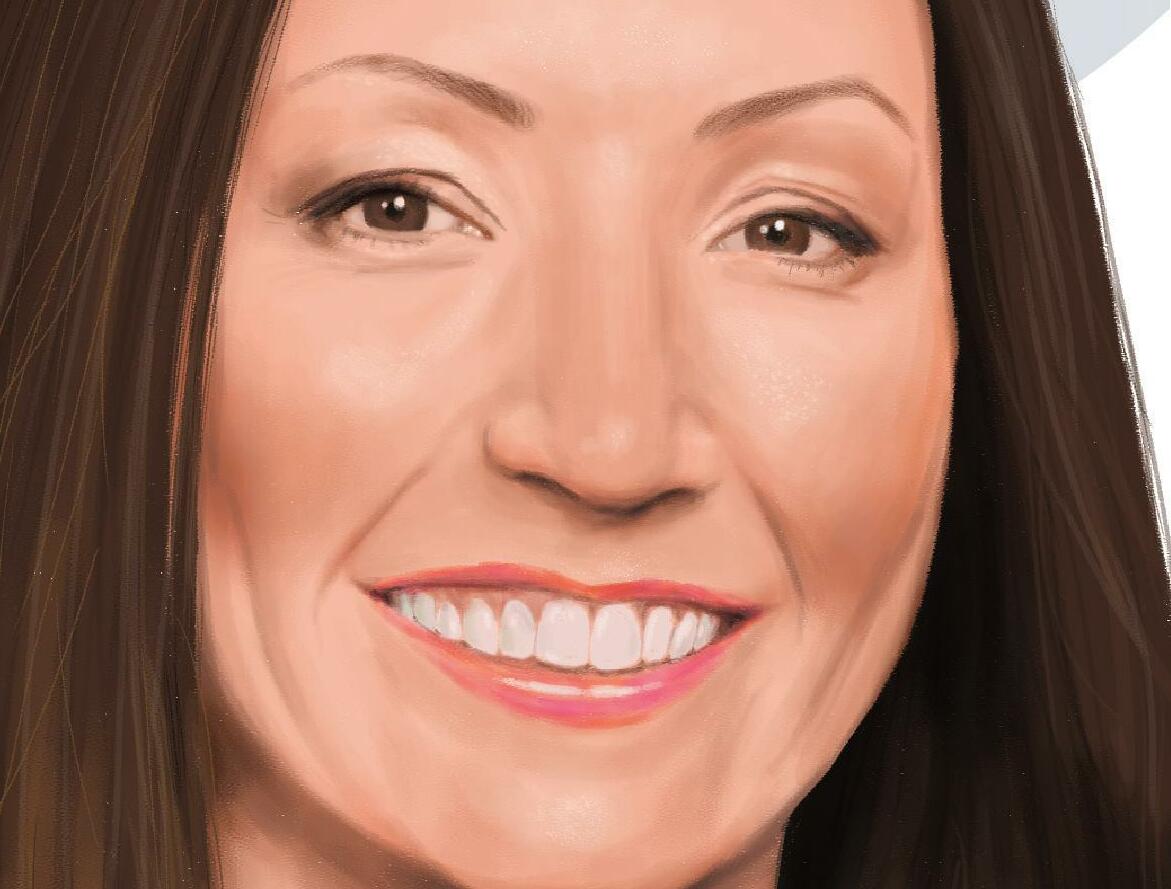
“It gives you a lot of time in the trenches,” the executive remarks. “There were some tough years and that transformation took many, many years, which Aristocrat has a lot of momentum off the back of now. But through that experience, certainly you

see evidence of what to do and what good looks like. A lot of the time, the learning is experiencing what not to do.” There are three lessons in particular Lane singles out. The first concerns personnel: “You should surround yourself with great people. They will determine your success, and you should make those decisions on talent decisively and unapologetically. Great talent, 100% aligned with your core values, is always worth investing in, and you should do that every day of the week.”
Lane’s second key learning is that a leader must have a strong sense of self – and a strong value system. Often operating under a level of ambiguity, a CEO must lean on that value




set to help guide their decisions, so that they are always rooted in principle. Finally, Lane is a “big believer” in communication, using this as a cornerstone of building trust across a team. She highlights communicating with the right level of transparency: “At the end of the day, people want to understand the ‘why’ behind what you’re doing. And when they have that context, they can do their jobs more effectively.” Those who have bought into the vision have a common understanding of a company’s collective goals. Lane saw this transparent communication in action during Odell’s transformation programme at Aristocrat. Naturally, it’s something she is determined to implement at Light & Wonder.



It’s a transformation – a word that will come up tough years and that transformation took
“The Covid-19 pandemic was a very scary time for all of us as a team. As a leader, you have this high level of uncertainty and ambiguity you have to navigate through”
“Transformation” is an important theme Lane is keen to discuss at length, given its relevance to both her previous and current roles. She tells Gambling Insider: “When you’re driving transformation, change is hard for anyone. We’ve experienced that as a society over the last few
years, but I think there are some core tenants you can tap into as a leader; to help make that change easier and more effective for people – because it is a constant question.”
Delving into Lane’s time with Light & Wonder more specifically, the executive has taken on a number of different roles, being exposed to many different scenarios. Though her background and education lies in marketing, as MD of North American at Light & Wonder, there was a strong emphasis on profit and loss management – which additionally brought with it operational experience.
Further areas of expertise aiding Lane’s move into the CEO role came in strategy and product management. Overall, she says, it’s been a “nonstop” three years and counting with the gaming supplier (at press time – February 2023).


“I stepped into my role about six weeks before the pandemic hit,” Lane recalls. “So I was expecting it to be a completely different experience to what it was! For any leader that was a trying time, or for any person living through that in gaming, especially because it shut our land-based industry completely down. It was a very scary time for all of us as a team. As a leader, you have this high level of uncertainty and ambiguity you have to navigate through. We knew it was a transformation programme that we were coming in to lead and Covid-19 forced us to be very decisive and move quickly; specifically on cost management within the business just to make sure we could survive and get to the other side of things.”
Since then, however, the Gaming CEO believes Light & Wonder has really “executed” on its transformation programme, both at an enterprise level and within gaming. Since Scientific Games rebranded to Light & Wonder, with a notable departure as Barry Cottle left the overall CEO role, it has a new board, a new strategy and a new vision. The divestitures of the company’s hitherto lottery and sports betting businesses have given Light & Wonder a “healthy balance sheet.” Debt levels, too, are down considerably, according to Lane.
Change is constant in any business, but particularly given Light & Wonder’s current focus. Lane continues: “I think that’s really exciting. But, most importantly, it puts us in a position where we can invest in our business. We invest in R&D, in our people and culture, in our business infrastructure and have progressed from a debt-ridden organisation to a growth organisation. When we think about that for our creators, growth organisations create career opportunities. They create financial stability. They create learning opportunities, developing the next generation of leaders.”
That next generation is very close to Lane’s heart. Some CEOs might not be blamed for enjoying life at the top and looking after number one. But perhaps the reason these executives – like others featured in this CEO Special edition – have progressed so far through the ranks is their dedication to others. Lane, when she thinks about how her parents raised her, her time at Aristocrat


and at Light & Wonder so far, is excited by providing an opportunity for the company’s creators. She wants to “cultivate” the next generation of leaders, so much so it is one of her primary goals as CEO.
Another target of particular emphasis is a strong customer focus. Lane explains: “We always say we’re here because of our customers and our job is to make them successful. We want them to want us to succeed. There’s a mutually beneficial relationship on this journey; I’m making sure we’re developing products that make them successful and create profitable gaming floors, and then creating great experiences as we do business with them is what we’re here to provide.”
But while Light & Wonder invests heavily in its products, Lane is well aware a company can be defined by its culture. Indeed, the CEO acknowledges that people want to work in an organisation that has “a great culture.” Creating an environment where teams collaborate to solve problems ultimately attracts the best talent – but it can also an environment where employees have fun. And this leads Lane to an analogy Gambling Insider can’t help but love. She says: “I see everyone in our team as having a superpower, and my job is to really optimise that super power and make every individual feel like they’re contributing to the goal. They need to feel that their superpower is valuable, that there’s a place for them on the team and, when they feel fulfilled in doing that, the organisation gets to leverage all of those collective superpowers – and we get to build a great culture.”
THE BEST PART OF THE JOB
Yet, amid all our discussion of superpowers, transformation and culture, the CEO role is obviously not an easy one. There are accolades for quarterly growth and credit for new business. There’s reward in building teams and seeing them flourish. But there is also unrelenting pressure. The CEO is the face of a business (or Gaming division, in this case) in both good and bad times. When we ask Lane what the hardest aspect of being a CEO is, she points to the tough decisions. Like with any leader, you have to own your executive decisions.
“When it’s a tough decision or you’re navigating tough situations like a pandemic or a recession, these kind of macroeconomic conditions, you’re going to have to make that tough call,” she reflects. “Then I take comfort in routing it back to our values and my personal values, and how I would want to be treated and respected as an employee of an organisation. But I think making that tough call can be a hard part of the job.” The best part of the job? “I think being able to create career opportunities for people. There’s nothing more I like than finding really high-performing individuals in the organisation and sponsoring them; or giving
them exposure, giving them a project where they can really reach their full potential. I take a lot of pride in developing and creating those opportunities as a leader for lots of creators in our organisation.”
The final topic of our interview takes us to leadership of a different kind – neither internal nor company based, but on a wider industry level. As part of her sector activity beyond just the Light & Wonder headquarters, Lane is a Board Member at the Global Gaming Women organisation, taking the role of Vice President in July 2021. Cassie Stratford is the body’s President & Chair, while Lauren Bates is 1st Vice President. Lane walks us through her role here: “I was recently elevated to 2nd Vice President on the Board. We’re there to provide the strategic direction for the organisation and then we have various committees that do all the work. It’s a 100% volunteer-based organisation, so we have lots of committees that plan and execute on the agenda of Global Gaming Women.
“We provide oversight for all of those committees and we’re really experiencing a bit of a resurgence. It’s exciting to see we’ve got a lot of passionate leaders that have been involved in the organisation in the past, or are new to the organisation that are really there to uplift women. We make sure we provide access to professional development or networking with other women in the industry and female leaders, which I think is really important so that they know they’re not alone on this journey.”
For those growing up in the industry, Lane acknowledges, there were “very limited” female role models in leadership positions. But that’s something that has “changed and evolved” over the years. In the past, there may have been a feeling of experiencing certain situations alone – Global Gaming Women aims to provide a network to stop this from happening. “I’ve got three young kids, two of which are girls, but even
for my son, it’s important to me that I’m actively involved in driving change in our industry,” Lane continues. “It’s not lost on me that I’m a role model to females in this industry. I’m also a role model to my kids and I take that role very seriously.”
Of course, this is an important area within Light & Wonder, too, with Lane emphasising the company’s DEI (Diversity, Equality & Inclusion) strategy, which it has made “great progress against.” It is a great source of pride and personal commitment for the Gaming CEO. “There should always be more examples of female leaders,” Lane states. “But we do have a good few role models now that can help future generations. Even before us there were many women in the industry that were role models. I think, just relative to the amount of men in the industry, there wasn’t that level of equity. We as an industry have made great strides. Certainly there’s more work we can do. But I’ve watched this change over the years, and we have a lot of male leaders that have been great allies of DEI and women in the industry.
“I myself have had male bosses throughout my career and they’ve been nothing but supportive, and have sponsored me, having been very strong allies. We can’t do it alone, right? The minority group can’t do this alone. We need strong allies from majority groups and people that are in more of a position of privilege. And we’re very fortunate in our industry to have that level of support so that we continue to forge a path forward.”
Overall, as Lane looks back on her career – the challenges, the growth and the personnel – she concludes: “Working with great people is a part of my job that I love and really cherish. I get to continue to travel the world because we’re a global industry. We have teams at Light & Wonder all over the globe. So that’s very fulfilling to me.” Indeed, as Light & Wonder continues its path towards being a growth organisation,
might end up having a little something to do
Lane’s own superpowers.
it
with
“I see everyone in our team as having a superpower, and my job is to really optimise that super power and make every individual feel like they’re contributing to the goal. They need to feel that their superpower is valuable, that there’s a place for them on the team”
For this year’s ‘jetsetter’ CEO Special, we’ve featured companies and executives from around the world, covering different continents and different verticals within gaming. But in Steve Wolstenholme, Hoiana President & CEO, Gambling Insider is interviewing an individual for whom jetsetting has been a theme his entire career. Growing up in Brighton, England, Wolstenholme dreamed big of “exotic locations.”
And throughout his career in the casino sector, he got them – from Toronto to Manila; from the Bahamas to Macau. The exec’s initial aspiration, though, was far from joining a casino or going into gaming. Indeed, at first, Wolstenholme wanted to become a civil engineer.
“After school and college, I landed myself a position in Kent,” he explains. “Maybe a year later, I was walking around the building site in muddy boots and thinking where are these bridges in exotic locations I’m after? I happened to stumble across an advertisement for a croupier position. I knew nothing about casinos... Well, the only thing I ever knew about casinos was possibly the James Bond movie. But I’m walking around on a rainy day with muddy boots on and thinking 'let’s see if I can do something different.' I applied for it – my mother was particularly upset – and my father sort of laughed! I got the job and became a croupier.”
Wolstenholme’s desire for travel was not quite yet satisfied at the casino table, however. While dealing cards, he saw a number of colleagues travelling around the world – reminding him of his initial dream – and wanted some of that action. Wolstenholme succeeded in applying for a role in Nassau, Bahamas, prompting a key realisation. He reflects: “All of a sudden I realised the casino business was something not only did I enjoy, but something I wanted to build upon.”
Progression through the ranks followed over the next decade, as he ultimately became a Gaming Supervisor and Salon Prive Manager; until he felt that, in his own words, he did not necessarily want to live in the Bahamas forever. He duly asked his boss how he could develop further – and a month later was offered the prospect of moving to Fort Lauderdale, Florida, to take on a “very different role” in marketing.
Here, Wolstenholme began on a path that would take him all over North America in the
coming years. In 1996, he moved over from Florida to Connecticut. He tells Gambling Insider: “I started working in the marketing department at Sun International and they were opening a new casino in Connecticut. It was an American tribe, Mohegan Sun, which was a joint venture with Sun International at the time. I was hired originally as a shift manager and became Table Games Director before the opening. And then I realised my engineering experience was actually quite handy throughout pre-opening.
I could relate to some of the things being discussed and said 'okay, I can possibly leverage what I understand about casinos.'”
At this point in his career, Wolstenholme acknowledges he was in a “relatively senior position.” He had gained a good understanding around construction, casino pre-openings and the wider industry. But for many who are able to progress to the next level – an elite tier within an industry – there will often be a mentor figure involved, someone who can guide them, help them develop and identify where to go next.

For Wolstenholme, that was William Velardo. Velardo, no longer with us, was the General Manager at Mohegan Sun’s Connecticut property at the time – and the man Wolstenholme turned to with important career questions; those being: How can I improve myself? And what can I do to move up to the next stage?
“He said three things,” Wolstenholme recalls. “Firstly, be prepared to move – so be flexible. Secondly, go back to school. And the third is make sure whatever you do, you always do it for the right reason. The one thing he advised me to do is read about what you do for a living for one hour a week. He said at the end of the year, you’d have 52 hours of knowledge – and that will put you in the top 10 percentile of people in your industry. Because most people just do a job for a job as opposed to really understanding what they’re doing. He said ‘be diverse about it; you’re in the casino business, but you’ve got a hotel, you’ve got food and beverage. Learn about those things.’ This was something I really remembered.” Perhaps those words of advice are ringing true to anyone reading this article, with Wolstenholme himself now passing on pearls of wisdom learned over the course of an extensive career. Following Velardo’s advice, the executive spent another two years in Connecticut before being offered a position in Niagara Falls, Canada, initially as the VP of Gaming. Over the course of nine years, he once again moved up to the General Manager role, before applying one of Velardo’s practical lessons and returning to school. At Ivey Business School at Western University, Ontario, the executive completed his MBA, reading “a lot about different parts of the business.” He didn’t want to be pigeonholed merely as “a gaming
"The one thing Velardo advised me to do is read about what you do for a living for one hour a week. He said at the end of the year, you’d have 52 hours of knowledge – and that will put you in the top 10 percentile of people in your industry"

person with marketing understanding.”
The extra study paid off. Leaving Niagara Casinos as the Group Vice President of Operations, Wolstenholme received a call about a position in Macau – more specifically, from Galaxy Entertainment Group. Asia was about to be introduced to Wolstenholme’s journey and leave a lasting impression. He says: “At the time, Macau was in its early stages and I flew over to Hong Kong, met the owners of Galaxy and successfully interviewed for the position of COO. From there, I was really focused on pre-openings. That means operations, pre-opening handover and the early part of operations. That’s what I’ve enjoyed doing.” Two years and four months at Galaxy followed, before a move to Nevada – although this would not be Asia’s last appearance on Wolstenholme’s CV. “I moved back to the States for a while and worked in Northern Nevada,” he continues. “It was a project that was the former Reno Hilton; a 2000-room hotel that was going through some major renovations.
I was involved in that and also worked on an exclusive consultancy with



MGM Resorts International on government relations in Canada. I was then employed by Okada in the Philippines, before coming over to Vietnam. And that’s the last 35 years of my life.”
A CERTAIN SIMILARITY
Wolstenholme’s initial walkthrough boils a near-four-decade-long career down to just a few hundred words. The Hoiana President & CEO has worked around the globe, overseeing different aspects of casino life – predominantly within the land-based sector. Yet given his exploits as far afield as the Bahamas, the Philippines and Vietnam, Gambling Insider wants to know how Wolstenholme's various casinos compare. He responds: “There’s a certain similarity, if you like, whether you’re working at Mohegan Sun, which was a very large tribal casino, or elsewhere. You have to recognise and put yourself in the shoes of the principal stakeholders: what do they want out of it? Obviously, tribal casinos want to take care of their tribe. When you’re in Asia, very often – Vietnam is a good example – you have to look at it from a government perspective. What does government want out of it other than just taxes and jobs? Obviously, taxes and jobs are extremely important.


“The Philippines is very similar. When I was in Nevada, I was working for a smaller company owned by a dynamic business person. I really

enjoyed working for him: when you’re working for an individual, it makes things a little bit easier. It’s a little bit more cumbersome when you have a board that you’re reporting to. But it’s also quite dynamic when you report to a board, which is my scenario now. Every jurisdiction has its good points and its challenges. The most important thing we can do in our careers is look for those challenges and actually embrace – as opposed to try and avoid – them. We are what we become through experiences and through gaining wisdom. We get wisdom in life through those experiences: good, bad or indifferent.”
When Gambling Insider asks if Wolstenholme has one favourite above all others, it prompts some soul searching, of sorts. They are all “quite different” in his initial appraisal: “I’ve liked everywhere I’ve worked. There’s nowhere that I haven’t yet.” The exec has particularly enjoyed working in some of the “more developing jurisdictions,” such as Manila and Vietnam – due to the fact you can “become part of the growth and the way the industry evolves.” Governing bodies in Manila and the Philippines are less conservative than in Vietnam, according to Wolstenholme, and he sees the value in “addressing the social issues associated with gaming.” Viewing things from a governmental perspective, for instance, rather than just an owner’s perspective, presents an executive with a more rounded picture. This concept also applied in Toronto, where Wolstenholme learned volumes about ensuring an operator matches a government’s goals, while at the same time trying to maintain a successful operation.
Earlier in our interview, Wolstenholme spoke of his mentor Bill Velardo. But another important executive he came across – and was in fact appointed by – was Kazuo Okada at the Okada
Manila. Okada is, at press time, due in court in the Philippines: a headline-creating regular within both industry and mainstream media. So what was it like working for him? “He’s a colourful character,” Wolstenholme opines. “I had a lot of dealings with him and was hired by him. I became President of the Okada Manila and reported to him on a daily basis. He couldn’t speak a word of English. I couldn’t speak a word of Japanese. But I certainly became very familiar with a lot of Japanese customs; I’ve done lots of bowing, and things dear and near to his heart.
“I think he’s dynamic, because he’s a self-made man that has a passion for business and certainly a passion for casinos,” the CEO continues. “He’s had challenges throughout his business operation and some of those challenges have involved his family, which is personal business on his part. One thing for sure is Okada’s name is still there: he was the Founder. Whether he continues running that business at any point in the future is for the courts to decide. But I think, regardless,
he can look back and be pretty proud of what he developed there. So I’m an Okada fan but I’m an Okada casino fan. As far as the man himself, he was certainly a visionary. And there are lots of visionaries out there you can look back on and say, well, that Founder at the helm is no longer there – but the business still is.”
For all of our discussion of Wolstenholme’s past roles and locations, however, it is Vietnam in which the executive has spent the best part of his last five years. In March of 2018, he joined as Group COO of Hoiana, before taking on the Acting CEO role in April 2019, becoming permanently appointed around a year later, and in March 2021 being named President & CEO. Hoiana CMO Jit Ng featured in the May/June 2022 edition of Gambling Insider magazine, providing a Vietnam Focus within the issue. Inevitably, though, the first topic on Ng’s list was the same as Wolstenholme’s is now: the

"One of the most charming things about Vietnam is exactly that it’s charming. Some people look at alternative places and ask ‘is it safe? Is it not safe?’ I don’t think anyone asks that about Vietnam. More than anything else, there’s a lot of charm here"

“rather tiresome” Covid-19 pandemic of recent years. In fact, Wolstenholme points out that the Hoiana Resort opened up in the middle of the pandemic. Like much of the world, Vietnam was in lockdown at the time and it was building a reliance on foreign players living locally at the time – far from the biggest pool of potential players.
And yet situations like this help a business “build character,” according to the CEO, allowing an organisation to look at things more dynamically – and evaluate the direction said company may be taking in the future. An example Wolstenholme is immediately drawn to is Macau’s previous reliance on customers from Mainland China – particularly VIP traffic that was from “an era gone by.” Once China opens up again, of course, Wolstenholme knows there will be ample opportunity to once again attract those wanting to visit “great resorts.” But the likes of South Korea, Malaysia, Thailand and indeed Vietnam will be in stronger positions to capitalise than previously. The rate of people flying into Central Vietnam is still at around 30% of what it was in 2019, meaning there is “still a way to go.” Wolstenholme is, nevertheless, proud of operating a “fabulous resort” that has seen “good traction” since opening.

“We’ve got great partners, casinos opening and it’s flourishing,” he beams. “We’ve got four kilometres of beach; even the phase one we’ve just developed is about $1.2bn worth of a $4bn overall investment. One of the most charming things about Vietnam is exactly that it’s charming. Some people look at alternative places and ask ‘is it safe? Is it not safe?’ I don’t think anyone asks that about Vietnam. Vietnam has got great food and I think it’s recognised globally. But I think more than anything else, there’s a lot of charm here. Vietnam in general has got a bright future as far as gaming is concerned. It’s in its early stages, so we want to make sure we’re making the right moves with regards to how gaming is formed in Vietnam. By the same token, we want to work collaboratively with the Government and the authorities to make sure we’re partners in this – and that’s important to us.”
On the gaming side, Hoiana has a number of tables and slot machines, although Wolstenholme places just as much importance on the resort’s location – and its golf course. Hoiana’s full name is technically Hoiana Resort & Golf, backing up Velardo’s earlier thesis on a casino manager needing to know more than just table games. Hoiana boasts a “top 100 golf course” – a “major asset” that is particularly loved by South Korean visitors. And, as the exec assesses the wider future of Asian gaming, he knows the non-gaming aspects of an integrated resort are something other Asian regions will have to increasingly embrace. Much as Las Vegas keeps reinventing itself, Wolstenholme sees Macau evolving to becoming less reliant on straight gaming revenue.
“In the past, in the ‘80s, ‘70s or whatever, it was perceived that casinos always made money,” Wolstenholme muses. “That was the understanding: you open a casino, you make money. Now, it’s very different – and I think it became different around 2008 when we had a global recession. All of a sudden, it wasn’t about just opening a casino. To make money now, it has to be done correctly; there are business decisions to be made, strategic decisions to be made, and I think Macau will reinvent itself. I think the days of crazy $40bn annual gaming revenue are likely behind them, but I think they can become – and will become – very viable businesses. I don’t think it will ever be Vegas, where it’s more non-gaming than gaming, but I certainly think it will change.”










As for neighbouring nations, a natural discussion point is Singapore, a high-growing region that boasts one of the world’s finest properties in the Marina Bay Sands. Here, Wolstenholme admires the way the “fabulous jurisdiction” has simultaneously opened up to gaming while managing gaming’s social implications. The handful of licences the country has given out “makes sense” for a population of around 5.5 million and that may mean, in the view of the Hoiana CEO, Singapore does not grow as rapidly in the foreseeable future. The Philippines, meanwhile, needs to be more “disciplined” from a regulatory standpoint. But Wolstenholme can definitely see that the Philippine Amusement and Gaming Corporation is very open to ensuring gaming “flourishes.”
So where does Vietnam, closer to home for the Hoiana team, fit into this beautiful Asian tapestry? Around 75 miles from Ho Chi Minh
City, there is the Grand Ho Tram Strip casino, which opened in 2013. It has never been “overly successful” in Wolstenholme’s eyes, although it is producing “great numbers” at the moment. More broadly, growing Vietnam’s gaming scene is a “slow, calculated process” but one that is seeing a greater understanding of the dynamics of gaming. Indeed, Wolstenholme is confident that, combined with attributes such as culture, food and ease of access, Vietnam’s attractiveness as a destination will only grow. The Government is actively taking measures to increase the country’s tourist appeal, too; UK visitors can now fly over for up to 15 days without a Visa. There is call for similar measures when it comes to Australia, the US and China but Wolstenholme appreciates this “takes time.” Overall, the exec is confident Vietnam competes “very favourably” in the hospitality and gaming sectors – even if this is from more of a “boutique standpoint” than the likes of Macau, Singapore and the Philippines.



While the boardroom is naturally at the heart of a CEO’s career, Gambling Insider finishes our interview by asking Wolstenholme about life outside the workplace. Light & Wonder Gaming CEO Siobhan Lane, whose interview you can read on pages 40-45, dedicates her time to a seat on the board for Global Gaming Women. For Wolstenholme, voluntary work has been a significant part of his life since 2005. He explains: “My father passed away a few years ago and was in a hospice. I didn’t really know what a hospice was, but I was pretty enamoured by the care he was given at this hospice. I was living in Canada at the time and, when I left the UK after visiting
him, I wanted to be involved. There wasn’t a hospice in the Niagara Falls region and I started to get involved in a capital campaign to build one. Since that point, I think involving myself in community initiatives has been important to me – especially when you’re in countries such as Vietnam or the Philippines. You look around and feel that not only do you have an obligation but a responsibility to at least give back. I was also involved in The Children’s Cabinet in Reno and some charities that are more involved in conservation, healthcare, but particularly children.”
Of course, Wolstenholme is adamant any charity work must be sincere: “If you’re doing it but not sincere about it, you just shouldn’t do it.” But he adds that there are “not enough years in life to know everything.” As such, a good leader must rely on other people. That means allowing time for other activities, be they R & R, philanthropy or spending time with family. “If you micromanage your business, you’re going to fail because you have to rely on other people,” he states.” “You’re always there to deal with situations. But there are other priorities in life. Charities and philanthropic initiatives are very important to me. And family is important to everyone, right? So I hate to use the word ‘balance’ – it sounds like a cliché – and work is something we’ve got to focus on. But we’ve got to recognise the best leaders don’t necessarily feel that they need to micromanage every situation. You create an environment where people have the autonomy and responsibility to make decisions – and you are dealing with the problems or the times people might make mistakes. I believe that’s the recipe for a good business.”
"I think Macau will reinvent itself. I think the days of crazy $40bn annual gaming revenue are likely behind them, but I think they can become – and will become – very viable businesses. I don’t think it will ever be Vegas, where it’s more non-gaming than gaming, but I certainly think it will change"


At first, Natalia Hilevych fights back tears. But, as she answers one of the most difficult questions Gambling Insider could ever ask, the Parimatch Eastern Europe CEO slowly begins to hit her stride. Once finished, it is an inspirational response – and, without question or exaggeration, the best answer to any question this magazine has ever received. “Whereas before I might have started my morning by looking at financial metrics, today every morning starts with checking if everyone is alive; whether they have wi-fi; if anyone needs food or medicine.
At the beginning, it was very difficult. But the determination of my team has been amazing. Now they ask me for more work to distract them from this nightmare. They work in hallways, corridors – and they’ve never done more.”
***
Now based in Kyiv, Hilevych’s story began in Donbass. Humbly, she believes it’s a story that will be similar to many other successful executives. She looks back: “I was born in Donbass, where my family is currently based and the war is now impacting it very heavily. This was not a small city and it was high in commercialism, with metallurgy, chemical and gas production. So I grew up with people who knew the meaning of heavy physical work. For me, that developed a strong sense of not being scared of any hard
work. I learned that, to achieve something, a lot of work is needed.”
But, despite those Donbass roots, the city also created a sense of ambition within Hilevych, allied with a desire to move away. Hilevych wanted to help Donbass and Ukraine change for the better, yet she understood the best place to achieve this was not Donbass itself. She endeavoured to achieve more and, although she did not have a specific dream job per sé, from an early age Hilevych had the ambition to build something. In fact, the Parimatch Eastern Europe CEO recalls
being a leader from childhood – even during holiday camps! Here, through her school years and at university, she realised motivating people was a “strong point” of hers, something that would play a part in the rest of her career.
Hilevych’s first degree came from pedagogical college, before a second followed in economics. She was already working when studying, and found her most important experience had come from the business world. With both study and work experience under her belt, Hilevych was about to embark upon the first significant stage in her career. It wouldn’t be the gambling industry just yet – but one bearing plenty of similarities. “I moved to Kyiv and joined one of the biggest companies in alcohol, Bayadera Group. It was smaller then but has grown into one of the foremost spirits firms in Ukraine – part of my role was to grow it. So my first serious experience came in the alcohol sector.”
Part of the wider fast-moving consumer goods (FMCG) industry, working in alcohol can prepare one for a career in betting extremely well. In the UK, for example, Betting & Gaming Council Chair Brigid Simmonds is one of many who can attest, having formerly been the Chief Executive of the British Beer & Pub Association. For Hilevych, both industries are “dynamic,” requiring
“Another lesson I’ve learned is not to delay things until tomorrow. Do it today not tomorrow, because tomorrow you might not have electricity”










quick decisions – with a lot of “emotion behind the marketing.” It’s not as if the sectors are without their critics, either. Both alcohol and gambling can lead to addiction – and are looked upon with scorn by ardent religious groups. Alcohol is far more socially accepted yet both fall easily into the ‘vice’ category; and both can undeniably lead to harm. Equally undeniably, however, both can
lead to huge entertainment value. Swathes of consumers can drink alcohol socially, without addiction; alcohol is associated with birthdays, weddings, Christmas, New Year and all kinds of celebrations. While it is less vocally shouted about, the same can apply to placing a casual accumulator on a Saturday afternoon, betting on a FIFA World Cup final – the Grand National, the Kentucky
Derby, Wimbledon or the Super Bowl. “Both industries are about emotion – what you gain from using both of those products,” Hilevych tells Gambling Insider.“Business is about delivering emotions. The products, really, are the same. Alcohol, betting – the odds are roughly the same for everyone. But what you build around your brand is what attracts players.”
Hilevych entered the alcohol industry as

“Business is about delivering emotions. The products, really, are the same. Alcohol... betting – the odds are roughly the same for everyone. But what you build around your brand is what attracts players”

an assistant to the Marketing Director. Over the course of 13 years, she progressed to the role of Deputy CEO. All the while, Bayadera Group grew from a top-10 company in its field to the market leader. “We created 10 international brands and what we learned was that there is not only one consumer – every consumer is different and there are different types,” she explains.“We created a strong portfolio of brands that helped us get past three economic crises. Some brands succeeded to cover for others that didn’t do as well at certain times.
“In the alcohol industry, there are strong regulations – you need licensing; you need to meet a lot of rules. There are advertising and communications restrictions. This calls for non-standard solutions! Both gambling and alcohol have a stigma about them – some players won’t openly talk about their gambling, others won’t openly discuss their drinking. So there is a strong emphasis on encouraging the right, responsible culture of both gambling and drinking.”
In 2018, Hilevych paused to reflect. She considered what she had achieved so far in her career and what she wanted next. Before her was a choice: one between staying at a stable company – in an industry she had come to know very well – or taking a leap forward. In the end, you could say Hilevych gambled on the gambling industry – and it’s a risk she confidently declares was successful. At the
same time, though, the CEO is keen to stress that “there was a big jump” to her next role. That jump, of course, brings her to where she sits today – Parimatch, one of Ukraine’s premier operators.
“There is still a big difference between the FMCG industry and the technology involved in gambling,” Hilevych remarks. “Technology had moved forward hugely and my first few weeks at Parimatch were about learning something completely new. But, at the same time, I remember my first week providing me with a lot of awe and wonder. It amazed me how easy it was to reach customers, to conduct market research and the amount of time technology saved in this regard.”
The executive’s first step onto the Parimatch ladder saw her join the marketing team. This brought with it Hilevych’s first real gambling lesson. Initially, she saw all marketing as effectively the same thing. The different aspects of the customer journey – acquisition, retention, product etc – were something completely new to the exec. Slowly, she learned the differences between a customer’s first touchpoint and every stage on the user journey. Here, Hilevych credits the culture at Parimatch, with a strong emphasis on growing employees internally. “I was no exception – you just need your own motivation and the company is willing to support you.”
Upon these mentions of acquisition and retention, GamblingInsider can’t help but ask Hilevych her thoughts on the current state of
operator marketing. For some time now, there has been a huge focus among operators on customer acquisition. Heavy bonusing and free bets remain a common trend in Europe, but it is a trend that is now proliferating across North America since regulated online gaming started opening up in the US. We put it to Hilevych that there is, arguably, nowhere near enough of a focus on retention. And the CEO agrees: “Those statements are correct. If a company has only just joined a market, there is of course a huge focus on acquisition. But when a company is mature enough, there should be more of a focus on retention. At Parimatch right now, for example, that is our main focus – but industry wide, there’s not enough of it.”
In 2020, Hilevych went from Parimatch Ukraine's CMO to CEO (now Eastern Europe CEO). That meant new realms of leadership and responsibility. Hilevych, however, took this challenge head on – seeing it as a harmonious match. “When I was named Parimatch Ukraine CEO, I already had serious experience leading people – both from the alcohol industry and at Parimatch,” she says.“I now knew the processes, the company’s values – and this helped me step up to the CEO role. Most importantly, you need to know the soul of the company. My vision of where we needed to grow matched with Parimatch's values, drive and energy.”

Former Parimatch CEO Sergey Portnov, a previous Gambling Insider interviewee, was the key figure in initially bringing Hilevych to the company. A charismatic – and talkative – young entrepreneur, Portnov invited Hilevych to Parimatch and “from their first meeting,” she says it was clear the two gelled. Under his initial leadership, Hilevych was all too happy to carry out the goals he had set out for the brand. Parimatch, of course, has undergone a business transition since then, with Portnov becoming a shareholder only. It now focuses largely on the newer B2B side of its business – Parimatch Tech. For Hilevych, though, remaining on the B2C side of the Parimatch organisation made perfect sense – as working to attract and appeal to customers is what she loves.
Given Hilevych’s focus on B2C operations, GamblingInsider’s next line of questioning inevitably leads us to the Ukrainian market. It has been two years since sports betting was legalised in Ukraine, making it one of the youngest regulated markets in Europe. Unfortunately and unavoidably, a number of regulatory issues have stalled due to the ongoing war in the country. But, according to Hilevych, with some adaptation from the Government, the Ukrainian market is starting to move with greater speed and enjoy a greater level of development.
“We are moving towards making Ukraine an attractive proposition for operators,” the CEO says. “Despite the rules and regulations written into law, there is still a lack of understanding among players. As such, we’ve embarked upon a campaign at Parimatch to educate players – especially on responsible gambling. We signed Oleksandr Usyk (pictured left) as an ambassador for responsible gambling and he became a world champion that week. As the champ, he knows what it’s like to be in the heat of the moment but needing to make a calculated decision – a hook from the left, a hook from the right! We hope our competitors in the region will do the same, to reduce the amount of negative information and attention to do with our market.”
Within days of the announcement, Usyk had defeated Anthony Joshua to win the WBA, IBF and WBO world heavyweight boxing championships. When we put the phrase “perfect timing” to Hilevych, she assures us Parimatch had no way of knowing he would win the fight – but that, with the deal being signed just a week prior, the brand understood there was an element of risk. Much like Hilevych’s earlier decision to join Parimatch, this was another gamble that paid
off. Despite not having communication with “Sascha” for 2-3 months at a time – in complete defiance of his contractual obligations, Hilevych jokes – he is “now a hero not just for Ukraine but for everyone at Parimatch.”
As we near the end of our interview, there is one major topic left for Hilevych to cover. It is one that makes her a completely unique member of our CEO Special – but for all the wrong reasons. On Thursday 24 February 2022, Russia escalated its invasion of Ukraine. Ever since, the people of Ukraine – and by extension the people of Parimatch Eastern Europe – have been the victims of war. Throughout, Hilevych has been tasked with continually leading her staff. Her responsibilities have not diminished; they have instead multiplied.
“Thank you for asking the question and not being silent about the situation,” Hilevych begins. “I am talking openly every day about the fact there is a serious war going on in our country. But Ukraine has never been stronger or more together as a nation. Of course, our work has changed and my role as a leader has changed. On top of my financial obligations to our directors, I now have responsibility over the lives and health of my people – both their physical and psychological wellbeing.
“So whereas before I might have started my morning by looking at financial metrics, today every morning starts with checking if everyone is alive, whether they have wi-fi; if anyone needs food or medicine. At the beginning, it was very difficult. But the determination of my team has been amazing. Now they ask me for more work to distract them from this nightmare. They work in hallways, corridors – and they’ve never done more. Before, if we had to outline any goals and explain why certain projects were important, now it’s just a case of 'give me more work, as much as you can.’”
Hilevych is well into her stride now
– and highlights that, from an operational viewpoint, putting off decisions is a “big mistake.” In the past, there may have been ample time to analyse; time to think the costs and benefits of a key decision over and over. Time, now, is precious for the Parimatch Eastern Europe CEO and there is often a requirement to make “two to three major decisions” at once, needing to execute them quickly. Every business is working for Ukraine’s victory, Hilevych says, and the current situation has underlined that, above all else in business, “the most important thing is human life.”
Consequently, Parimatch has partnered with a number of charitable organisations and tells its story as widely as it can. “We do not fear,” Hilevych states.“Because we’ve seen everything. Years ago, I used to think long and hard about which advertising campaign to go with, or whether to enter into a new partnership. There’s no fear for us anymore because those decisions, compared to what we face now, are nothing. Another lesson I’ve learned is not to delay things until tomorrow. Do it today not tomorrow, because tomorrow you might not have electricity. We believe, we fight and we spread our message, telling everyone about it.”
The challenges Hilevych faces on a daily basis are all too clear. But for this bravest of CEOs, what is her favourite aspect of leading Parimatch Eastern Europe? This, she says, boils down to learning, development and growth. For one, Hilevych is still herself learning – enjoying communicating with professionals from all kinds of sectors, backgrounds, specialities and ages. It is “fantastic” for the CEO to learn alongside team members who have a “niche” specialisation. “The main thing is to see the results of my team, which we achieve together,” she concludes, “growing people who started out, like me, as an assistant. Seeing them develop, get promoted – and some eventually, I hope, become a CEO like me.”
“The main thing is to see the results of my team, which we achieve together, growing people who started out, like me, as an assistant. Seeing them develop, get promoted – and some eventually, I hope, become a CEO like me”
For most people, beginning a career in government sets a course for a near-life-long commitment to a role in public service, that is unless your name is Marina Ostrovtsova. Now the CEO of BGaming, a burgeoning games supplier born from the success of casino platform and aggregator provider Softswiss, Ostrovtsova’s rise to the position was far from an orthodox one. Casting her mind back 11 years, Ostrovtsova had just graduated from university with her second diploma in hand: one “just wasn’t enough for me,” she reflects. Despite a dedication to go above and beyond in her academic studies, Ostrovtsova admits she “didn’t actually have anything in mind in terms of a career path” at this point. Time for indecision is not a luxury all can afford, so, in need of work, Ostrovtsova soon found herself as a member of the Minsk region Executive Committee in her native Belarus.

Working in the Foreign Economic department, Ostrovtsova admits it "wasn’t a dream job in any way, shape or form.”
She is, however, grateful for the “great life experiences” she gathered in this role.
“I was able to develop the skills to work in stressful situations, where you have great responsibilities on your shoulders,” she reflects. This was made all the more difficult as, most of the time, Ostrovtsova shouldered this responsibility “without the power or tools to do the things I needed to.” But, thinking positively, she describes this difficult position as “a good schooling experience for me, in terms of where I have now developed in my career.” Some of the key skills Ostrovtsova developed included a reputation for being respectful, writing emails professionally and, most importantly, being on time – traits that have laid the foundations for Ostrovtsova’s future career. “I learned how to be a problem person, in a good way, always raising queries and pushing for results.”
Ever conscious that working in government was not the job she truly desired, Ostrovtsova took a punt, following one of her bosses out of the
door to work in the IT sphere and helping them develop a new travel metasearch system for customers in CIS countries. Essentially, this was the creation of a website that does the searching for people looking at the cheapest deals on flights and hotels; Ostrovtsova said she was sure “people had come across” such sites when explaining just exactly what a travel metasearch system was. Joining to help develop the project, she was there for two-and-a-half years, at which point the company was “close to bankruptcy.” Ostrovtsova continued: “We were developing so quickly but spent the majority of our investors’ money. So we faced a situation where the company was no longer able to develop, and it closed its office – most of the employees were then let go, including me.”
Although the travel metasearch system is still in operation, Ostrovtsova admits she does not know what state the project is in.
Despite this somewhat sad outcome, there are no hard feelings as far as Ostrovtsova is concerned. And just like her time working in government, there was a lot to be learned here.
“Working in the travel industry, I learned a lot about API integration, how to do it and how fast it can go. So, I got some developmental experience when it comes to IT and tech.” As far as the exec was concerned, the important thing was that these experiences could all be “transferred later down the line.”

something else to do. “I always knew from my

when I found Softswiss,” she remembers, a smile



After being let go, Ostrovtsova needed something else to do. “I always knew from my time at university that I wanted to be involved with something creative. Not that I had any artistic talent or prospects as a designer, but I knew I wanted to work in a creative business,” she recalls. In fact, it seems this was the moment Ostrovtsova was giving her career path the greatest attention – aligning her skills and passions with her employment search. “That’s when I found Softswiss,” she remembers, a smile cracking across her face. It wasn’t to be an easy entry to Softswiss – the company from which BGaming branched out – when Ostrovtsova first approached to become one of its new Account Managers.
Recalling her first interview with Softswiss Founder Ivan Montik, she admits the company “chose not to hire me the first time around.” Persistence pays off, though, and seeing that the company was still in need of an Account Manager three months later, Ostrovtsova plucked up the courage to approach the company once more. “They remembered me, and this time I got lucky and was offered the job,” she reminisces. Whether it was luck or admiration of her persistence, Ostrovtsova’s introduction to Softswiss would mark the start of her ascent to becoming BGaming CEO.
“chose not to hire me the first time around.”

“I didn’t know anything at all about the gambling industry. When people would talk to me about bonuses, I knew the meaning of the word but had no idea how it was calculated or anything like that.” Admitting that every facet of the industry was new for her, there was no option



Manager three months later, Ostrovtsova introduction to Softswiss would mark the start had no idea how it was calculated or anything industry was new for her, there was no option

but “to learn from scratch” for Ostrovtsova. Joining first in 2014 as an Account Manager, she "learned a lot about operators, what they want from game providers, how they work with game providers and the specific, bespoke needs of each client. This isn’t to say all casino platforms are so similar but, in essence, most use the same functionality. The services they provide and how they connect to operators are largely similar across the board. Knowing a lot about an operator’s needs has been very helpful.” Succeeding in driving relationships with clients, Ostrovtsova was soon promoted to Senior Product Manager in 2015.
Now involved with new products being added to the platform, she notes the company was "seeing great results in the popularity of games. So the question was: what if we invested in game development? The company went ahead with it and created an entirely new division called BGaming.” And the company’s CEO was one of the first names on the sheet to join BGaming, becoming its Executive Director in 2018. Now split from Softswiss, BGaming acts as an entirely different business, “with separate plans and goals.” For Ostrovtsova, her migration from Softswiss marked the pinnacle of her efforts to land the job of her dreams. “As I said, I always wanted a creative job, and what’s more creative than leading the company that oversees the
development of new games? Of course, when anyone asks what a dream job is, it’s almost impossible to achieve, and this is very, very close to a dream job for me.”
At BGaming since its inception, the main task for Ostrovtsova and the core team was to find the best way to access Softswiss' games engine, processes and portfolio. Despite the solutions available, “transferring that to a games supplier was not quite adequate, it was not quite the tech we needed,” Ostrovtsova observed. To become “a new and fresh face in the market,” BGaming needed to refurbish everything. This meant, first and foremost, creating a new game engine to help it reach the level of its competitors. “We were looking at the likes of Pragmatic Play and NetEnt, and wanted to get onto the same sort of level as the top game developers.”
However, creating a new game engine was but one part of the problem. As Ostrovtsova puts it, “the second was that we actually didn’t have much of a team! We needed to onboard people who were qualified in game development. So, in 2018 we set up the core team, which we still have. Having established our processes, built our roadmap and set aside resources, we were in a much better position moving forward.” This wasn’t the simplest journey, though, as in the
early days few resources were available to cover the entire business’ needs. “In 2018, I was not only focusing on planning the business; I was even helping build things around the office with my own two hands. I was coding and helping to develop the website while checking all the different gaming regulations and translating them from English to Russian. We had about 10 people split across 30-40 rows of office space, covering pretty much everything.”
However, establishing a wider team was still imperative for Ostrovtsova, who, in the early days of BGaming as Executive Director, interviewed all applicants personally. Although a marker of her importance within BGaming’s setup – this felt natural for her at the time. “I think I was the choice interviewer because I knew the roles that needed covering and had experience across almost all positions. So I knew the mindset needed in each of our jobs – and it became my responsibility to build the team.” Ostrovtsova was not of the mind to adopt an atypical hiring process either, “which was not just based around experience and professionalism in the role, it was also around whether they were a right fit in the team at BGaming. The last thing we want is the atmosphere around the office to be ruined.” A champion of harmony over all else, Ostrovtsova admits that not everyone employed by BGaming “knows about the industry. I didn’t! But when


we get new staff who know about the industry it’s very time efficient and cost-saving for sure.” Despite this acknowledgment, it’s still vital for Ostrovtsova to get the right character profile for each role that needs filling. “Today, we have a team of over 100 people, so I’m not able to interview everyone now, but we still push for like-minded people to get on board. It’s very important that anyone who joins adds value to the company and does not sign up with a single-minded approach.”


Having overseen BGaming’s rise into the larger company it is today, it’s small wonder Ostrovtsova describes the company’s early years between 2018-19 as her “toughest period.” The then Executive Director can now reap the rewards of her hard work, creating the products that represent the BGaming brand and becoming the company’s CEO as of July 2022. For her, failure is actually the most important hallmark of success... “Even if you fail at something, which is sometimes more often than succeeding, it gives you the experience to learn from and build up better for the future.” And Ostrovtsova can’t help but think back on her time when working in government: “What’s also good is

that I now have the authority to make bigger decisions, which I didn’t have in my first role in government!”
Being in her 30s, Ostrovtsova has something many don’t typically expect to find in a CEO – youth. The reaction to this is something she witnesses a lot of too. She says: “People always ask me, ‘oh you? You’re a blonde girl; you don’t look like you should be CEO!' which is quite funny. It just makes me think; ‘If I’m 45 or 50 and not blonde, would it be more suitable for you to accept me as CEO?’ I face stuff like this quite a lot. It’s not something that bothers me at all, but of course, I do need to acknowledge that this stigma exists.”
She continues: “I don’t like the idea of being someone who leads from the front, with the team behind me – no. I want my team to lead from the front, with me behind them giving support, and keeping them aligned with our vision.” Ostrovtsova hates the idea of “going around and telling people what to do.” For her, it’s important to “give the team a lot of freedom and all my trust. This is the best approach to ensure the
team can express ideas and be creative.”
There is one core imperative Ostrovtsova now looks to uphold at BGaming, and that’s to make sure she continues to set the vision for the team. “Maintaining a strong vision is also about finding the main drivers that can push the team forward,” according to Ostrovtsova, as well as giving them "the freedom to make mistakes.” In fact, Ostrovtsova even sees it as a positive if someone can make every mistake they possibly can at least once. “The freedom to make mistakes is so important and it’s vital not to micro-manage. I think this just reaffirms my approach to doing things differently, removed, in a way, from what you would expect from a seasoned CEO.”

Looking to the future, translating the unique way in which BGaming operates as a team into the products the company produces is key for Ostrovtsova – crafting bespoke, original game titles for the benefit of its clients and players. Not only would this best define the identity of the BGaming brand, it would also allow the company to get a step ahead of its

competitors. Not that BGaming believes it has any competitors, however, preferring to see rival brands as partners, where collaboration can happen and knowledge can be shared. “Every game provider looks at what everyone else is doing and we may all take inspiration from each other. I don’t see it in a bad way, we all do this. But our current goal now at BGaming is to create new stuff – our own original, unique games not available anywhere else on the market.”
Citing BGaming’s larger ‘partners,’ who create new games from scratch, Ostrovtsova feels this is something BGaming can emulate, despite the fact the company’s presence in the games provider industry hasn’t followed the same path as other big companies. “Most of the [big providers] started as land-based businesses and evolved online,” she said – a different market introduction from BGaming’s own, which came into existence off the back of Softswiss, a purely online organisation. Despite the challenge of having to grow from scratch, Ostrovtsova remains “focused on being an innovator and coming up with something new.” Furthermore, Ostrovtsova has a far more ambitious goal in mind for the long term: “We’d like to be involved

in setting the rules and requirements for B2B businesses, in terms of compliance and other legal areas in different jurisdictions.” Achieving this goal would need to see BGaming become one of the most influential providers in the industry, but is something Ostrovtsova will strive for regardless, saying: “If we’re able to reach the level where we could consult someone, it would be a really cool experience.”
She explains: “You always hear the same answers – that it’s because so and so has the best team to work with. I’m not saying that BGaming doesn’t have the best team, of course we do! Why would I say otherwise? Yet, for me, it’s all about wanting to see the level of culture we strive to achieve at BGaming and our partners spread across the industry.”
What this means for Ostrovtsova is seeing companies across the industry house “a range of different people, where despite one’s background, everyone learns to work with each other, accept each other and help each other." However, Ostrovtsova admits “it is still an aggressive industry,” but hopes “that every other
company can develop a similar culture as our own.” She continues: “Many of the clients we work with always mention the same thing: that we are different. Different in the way we care about each client regardless of whether they’re a key client or not.”
Seeing her team experiment every day is something Ostrovtsova loves, as it underpins her long-held dream of taking the big decisions at a highly creative company. “Huge game providers in general are not very flexible, but we are. We are also open to experiments in terms of game development.” Understanding that teams of game designers are needed to set goals, and developers to produce code and release games, it still delights Ostrovtsova that BGaming has “different departments just for experimenting.” She concludes: “I’m sure every game provider out there conducts such experiments, but we are really focused on them. They cover everything too, from art and music, to how a game is developed and its features. So this constant drive for innovation is why it is super cool to work with BGaming.” Indeed, Ostrovtsova's approach offers our industry a breath of fresh air.
It’s been a busy few years for Aspire Global, with the company involved in several major mergers in recent times, most notably in June 2022 when the group was acquired by iLottery supplier NeoGames. Describing the deal in detail, along with his personal journey to President and CEO of a major company in the industry, Tsachi Maimon takes GamblingInsider through his fortuitous beginnings in the industry, right up until his current role with continuous headline-makers Aspire Global.

“So it is really a funny entry into gaming because I used to work in the telecommunication industry before, and I was managing a call centre,” began Maimon. “And then when I looked for a new job, I found this company that was in the gaming industry, that wanted an operations manager. I entered and I didn’t even know that it was gaming until a few months after. So it’s really by luck that I entered the industry because my profession before was the operation of call centres, this is where I come from.
It's certainly not an ordinary or common route into gaming, but one that has turned out well for both Maimon and Aspire. It’s been quite a rise for Maimon since those humble

beginnings, which even included a brief encounter with slot machines on a trip to Vegas, with the executive not knowing exactly how these strange machines operated at the time.
“I didn’t know what a slot machine was, I honestly knew nothing about gaming, nothing,” he continued. “It was a little bit before my honeymoon with my wife when we went to Vegas before I entered the industry, and I saw those slot machines and said: ‘What is it? How do you play that?’ And then I find myself with a career of already 14 years, working around those slot machines. It was a nice entry, a very funny entry." Admittedly, even after more than a decade of working with such machines, there are still a few areas of slots which he has yet to fully come to grips with… "I still don’t know all the rules when I play," he adds. "I don’t know when I’m winning and when I’m not, until the machine tells me." So, as mentioned, not exactly the most straightforward of beginnings in the gaming industry, but Maimon hasn’t looked back since that moment, and is thoroughly enjoying his current role.
Obviously the executive is covering many different areas within his important position,
and chose to adopt a managerial stance when asked the question what his favourite thing about this exciting, ever-changing, ever-expanding industry is. "Every day is really a new day," answers Maimon. "You know, the industry is so dynamic, especially in the last few years, with many regulations and new requirements and new challenges. You are waking up and every day is not even close to the previous day. So the dynamic of it is something that you probably don’t find in many other sleepy industries, and this is something that keeps us very interested and motivated, facing those challenges.” Such a situation has provided the executive with many different life experiences, with
particular can be set apart from all others.


He adds: “I think this is what I like, that it’s really very dynamic, and everything else seems a little bit slower. It’s given me the comfort that if I am succeeding in gaming, there probably isn’t any other industry in which I will not be able to succeed.”



Moving back to the aforementioned acquisition, whereby NeoGames made its
initial offer for Aspire in January at a price of SEK 111.00 ($12.29) per share, the move was delayed slightly as the acceptance period was extended from 25 May 2022 to 14 June 2022.



But on 17 June, NeoGames completed its tender offer to acquire Aspire Global, with 99.31% of total shares tendered. As the industry has witnessed on occasion – even in a high-profile case very recently – mergers and acquisitions don’t always go to plan, but this has not been the case for Aspire, with its leader explaining the positive



atmosphere that has been created since the deal.
When asked just how important the acquisition was, Maimon replied: “It’s a good question because NeoGames, when it acquired us, saw value in Aspire with all the companies that we own and the products that we own. It saw us as a value to contribute to it in its lottery path, and its position in the lottery industry.”

But that by no means was the only significant factor of the agreement, with the executive explaining that the deal had a hugely positive effect for both groups. He states: “The interesting aspect of this transaction is that NeoGames is not the only one to benefit from this acquisition. Aspire Global is also greatly benefiting from this acquisition because it already had the vision to become a successful, big player in North America, and NeoGames was in the position to contribute to that. The fact that NeoGames acquired Aspire Global while already holding plenty of licences in the US shortened Aspire's expansion journey in the US and Canada by many years.
“It’s something that we probably would have achieved alone in five, six or seven years, but with NeoGames, we can achieve that next year or in the next two years.”
The ‘huge contribution’ is ‘going very well’ according to Maimon, with the two companies enjoying a similar culture and getting along smoothly, much to the delight of the man in charge of it all.
While it has understandably been a busy time since the acquisition, Maimon has at least found a moment to reflect on how his role has changed in recent times, one which he admits – perhaps surprisingly – hasn’t been affected all too drastically, much to his gratitude.
“Before, when I managed all of Aspire Global with all the companies and the
verticals, it was a gaming vertical,” he explains. “And now, with the merger, I'm still the head of gaming. Besides my title, which has gone from CEO to President of all NeoGames, there hasn't been a big change in terms of my day-to-day activities. I'm still managing all the iGaming business side of the group, and now, as President of NeoGames, I can also assist with its growth plans both inside and outside of North America. Lottery and gaming are getting closer than ever as verticals. Many national lotteries are getting closer to gaming by adding sports betting and such, so this offers us great momentum.”
can contribute. I’m very satisfied with the new arrangement.”
Just because his day-to-day hasn’t changed dramatically, it doesn’t mean there are no goals and ambitions to reach. 2022 has passed, with 2023 now upon us, and gaming is certainly an industry that needs to keep up with the ever-changing times. Having been established back in 2005, Aspire Global now has over 170 iGaming brands and is working in over 30 regulated markets. But like all other top executives, Maimon is well aware of the need to grow and adapt, with the President and CEO offering Gambling Insider two group-wide aims for the near future, the first of which involves the rapidly expanding North American market.
“It is clearly our aim to be in the top three suppliers, or even the top supplier, in North America in the coming years,” he says. “We are really advanced in that path. The expansion includes North America and Brazil. I must say, we see Brazil as a huge strategic market for us. So expansion is one aim of the group.
He adds that the smooth merger has allowed not only himself but others in the company to continue doing what they do best without any real distractions or disruptions. It is more about adding ‘another layer’ for the executive, rather than things being completely turned upside down.
“With my new role in mind, I can now add another layer for the group and take gaming to lottery as well,” he says. “There aren’t a lot of big changes in this merger, everyone can find their spot and their strength, and
“And the second; Aspire was only 30 employees a few years back. Now, with the entire group, including NeoGames, we are over 1,000 employees. It’s a big business, a big number of employees, big volumes, so we need and want to take advantage of this size and act like a big player in the market, and we want our third-party suppliers to act accordingly. So a lot of cost synergies and commercial adjustment that we will slowly address with our third-party suppliers is in the plan, to take advantage of that. Those are the two things that we will focus on moving forward.”
With the expansion of any global company, both inside and outside of gaming, comes various legal challenges, with each jurisdiction presenting different obstacles and
"I thought that I would play more tennis. But when you live in Spain, you qickly learn that it is the land of padel"

different criteria that must be met in order for a group to operate legally in that jurisdiction. But Maimon explains the advantageous position that his team finds itself in in this regard, saying: “The interesting aspect is that Aspire was pretty much spread all over Europe with licences through Pariplay and Aspire, and also in Africa with BtoBet, so we are already well established and strong, with a reputation of being widely licensed and working in regulated markets across the world.
“We have NeoGames with over 20 states live in the US, so it’s not one that is overlapping the other, it’s really about complementing each other.
“So there isn’t any legal challenge, only to take advantage of the other. It’s a great advantage that we have right now.”
He touched briefly on the future of the ever-expanding region of North America, offering some projections for what the jurisdiction can expect going forward, saying: “Taking into consideration that usually the growing vertical is casino – or gaming as it’s called in North America – it is open only in five or six states right now, and there are many states yet to be open, so yes I believe that North America will be the growing market in the next five to 10 years, for sure.”
Moving back to the President and CEO himself, who also has some individual goals that he kindly shared with GamblingInsider. He’s been with his current company for quite some time and has played a major role in taking it to where it is now and, importantly, has no plans to slow things down.

“I feel very much connected to Aspire, being there for 10 years, really from an early age, with very few employees. I feel that it’s my baby, so I would like to see this group achieving its goals. My personal goal is to continue and lead, together with the management, this group moving forward to be established as a massive company in the market, to have our stamp. This is the aim.”
Maimon has achieved many things in his exciting career in the industry, meaning it may be hard for the executive to pick out the proudest moment within his world of gaming. That isn’t the case, however, as he explains.
"Because it’s a growing industry a lot of people want to grow as fast as the industry"
“For me, as a matter of fact, it’s easy, because we succeeded, and I’m proud of it.
“We succeeded, and I succeeded in leading this company with around seven different transactions in five years. And this is something that, when you look at other CEOs of companies, usually when they do an IPO, it’s a once-in-a-lifetime event, when you acquire another company, it’s an event of a lifetime.
“We did seven such transactions in five years. This involved IPOs, buying three companies, taking a bond from the market, we did many things, so this is a proud journey, rather than a moment.”
Amid the constant mergers and acquisitions of the modern gaming industry, it has certainly been a continuous and distinctive journey for Aspire Global, and its leader is on hand to delve further into the reasons why the group has enjoyed much success on its chosen path. “Many companies today are making decisions on the challenges that they have today or yesterday. We were unique by addressing a north star strategic path, five to seven years in advance. And we said ‘Okay, we will have challenges on the way, but those are the things that we need to do in order to be where we want to be, and it doesn’t matter because challenges will continue to come.’
“We stuck to the path of the north star that we decided on a few years ago. This is what I like in the new group that we created as well. We addressed where we want to be in five to seven years from now, and we will continue to take well-thought steps which are going to clearly pave our road to success. This is why it's essential to define a north star for yourself and the company. Go towards it step by step and you will achieve what you projected. Don’t be disturbed by different opportunities because they can go as fast as they can come.”
Maimon also provides some useful advice that many can take on board within the gaming industry. He suggests: “Because it’s a growing industry a lot of people want to grow as fast as the industry, and they want to jump from one road to another, or want their company to be in a much better place much faster. And usually when you do things fast, it’s not sustainable. Think about the long term and walk step by step towards the long term, and the reward will be much bigger later on. So I recommend being a little bit more sustainable in your thinking and not opportunistic.
Reflecting for a minute on his own undoubtedly unique journey in the industry, Maimon is grateful to those around him that have helped him achieve his goals, and helped him reach a position that he couldn’t have possibly imagined even a short time ago.
He notes: “It’s a dream that came true, I didn’t imagine that I would be able to be in this position only a few years ago. Every day,
I'm thanking the team that made achieving these goals possible, together with me. I'm very proud and happy about what we succeeded in achieving, as well as about what I personally managed to achieve along the way.”
As he discussed early on, working in the gaming industry wasn’t exactly on Maimon’s mind when trying to forge a career for himself, never mind succeeding in it. But the executive did manage to squeeze in a brief mention of his old life, in particular his love of tennis.
When asked by Gambling Insider the undoubtedly tricky question of what he would have done if he didn’t work in the gaming industry, Maimon replied: “I probably would have been a tennis coach, I was a player until I was 18 or 19 years old. So I probably would have followed all my friends and been a tennis coach, wearing a big hat to protect myself from the sun and putting a lot of sun cream on. This is probably where I would have been.”
There isn’t much spare time available for sport given his role, but when he does get a second, the executive hits the courts once a week. Unfortunately, however, it isn’t quite the sport of tennis that he gets to play…
“I thought that I would play more tennis. But when you live in Spain, you quickly learn that it is the land of padel, so you can’t do anything besides padel, so that is the hobby that we do over here. I’m playing padel once a week, taking the tennis capabilities that I love and converting them to padel. It’s growing everywhere, it’s very popular, a very social game.”
Of course, it would have been remiss to end the conversation without a mention of the recent 2022 World Cup, which produced one of the greatest games of football that the world has ever seen as Argentina edged past France in the final in December. Maimon’s home nation Israel unfortunately couldn’t quite make it to the major tournament in Qatar, but the President and CEO has found an adopted home in Spain, a nation with a decorated history in the prestigious tournament. And while the Spaniards couldn’t recreate their magic of old this time around, simply being in the country and being around
people with such adoration for the beautiful game was enough.
When questioned if he tuned into the thrilling final in Qatar, he replied: “Oh of course, of course. It was amazing. I enjoyed every minute of it. Everybody says that it was not only the best final ever, but also the best game ever, and to be in a country in Spain that adores the sport was nice. Unfortunately, we didn’t win it here in Spain, but it was a great game.”
The rights to host the 2026 World Cup have gone the way of the US, Canada and Mexico, but he is quick to point out that there is much reason for those living in Spain to be excited for the 2030 event.
“I must say that we are looking forward to eight years from now,” begins the executive. “The rumours say that Spain and Portugal will host the World Cup after the US, so I’m looking forward to the World Cup here in Spain in eight years.” Confident indeed, despite FIFA being in charge of it all…
Fortunately, he does have reason to be excited as an Israeli supporter, with Maimon noting that the 2026 World Cup will indeed increase its team count, meaning the likes of smaller nations in football terms may just squeeze their way into the globally-adored competition.
He concluded: “For the next World Cup, when FIFA will grow the number of teams, they are aiming to go from 32 to 48 if I am not mistaken, so when it will be half of the countries in the world in the World Cup maybe Israel will be part of it.”
For now, however, the Aspire Global chief is very much focused on Spain and his life in the capital city of Madrid, a place he very much enjoys living in.
“We lived in Malta for eight years, and we thought that after so many years in this small, fabulous, magical island, we can explore a different city.
“We considered Madrid, Lisbon and even Barcelona, and decided on Madrid. And I must say that Madrid is a big success. I didn’t know the city so much before I moved here. It had a lot of surprises, it’s a very good city, very good food, good sport, so I am very happy with the move.”
"While it has understandably been a busy time since the acquisition, Maimon has found a moment to reflect on how his role has changed in recent times"


Peter Lynch takes a look at betting projections before the 2022 FIFA World Cup kicked off and whether or not they were met



The 2022 World Cup was, as always, filled with twists and turns. In the end, Argentina came out on top after a hectic month for players, coaches, fans and indeed everyone associated with the competition. All sorts of questions were raised the minute Qatar was selected to host the tournament, given both its climate and, perhaps more importantly, its lack of history with the sport. But as they say, the show must go on – and go on it did. A total of 32 nations made their way to the Middle East to take part in one of the biggest sporting events in the world, with maestro Lionel Messi ultimately – and finally – lifting the prestigious trophy. Taking place in winter, the tournament certainly had an impact on European gaming operators, coming bang in the middle of the top domestic European football leagues. That absence will undoubtedly be felt when such operators are analysing their financials early in the New Year. It was the first time ever that the tournament had not taken place in summer, meaning companies were having to deal with all sorts of
unprecedented factors. But there was a counter-balance factor: this was the biggest tournament in football and one of the biggest sporting events in the world. Betting levels were, therefore, extremely high, with many predicting record levels of betting before a ball was kicked.
An inaugural survey from the American Gaming Association (AGA) in the build-up to the tournament found that 20.5 million American adults planned to bet a total of $1.8m on the competition. Helping the cause was the fact that the United States Men’s National Team took part in the competition, as did Canada. The AGA noted that at the beginning of the tournament, live, legal sports betting was available in 31 states and Washington DC, with five additional legal markets awaiting launch. Of the 2,213 adults who took part in its survey, a total of 29% who planned to watch the World Cup intended to bet on it.

The survey also found that Gen Z (11%) and Millennial (14%) adults were more interested in betting on the tournament than Gen X (8%) and Baby Boomers (2%), highlighting the current state of affairs across the nation when it comes to demographics; something for operators to perhaps note ahead of their upcoming marketing campaigns for other major sporting events. Patriotism was also seemingly in the air pre-tournament, with 24% of respondents saying they would bet on the USA to win the entire competition if they were given $50 to wager with. It didn’t quite work out, of course, as the nation headed home in the round of 16 following a 3-1 defeat to the Netherlands.


Commenting on the results of the AGA survey, Covers.com's Geoff Zochodne explained that while betting on the event would be significant, it would still remain lower than other major sporting events that the North American audience has an interest in. “The AGA’s research suggests that World Cup-related betting will be significant, albeit


lower than other major sporting events,” said Zochodne. “In February, for example, the group’s research projected that 31.4 million American adults plan to bet around $7.6bn on the Super Bowl; in March, the AGA said an estimated 45 million American adults intended to bet approximately $3.1bn on the NCAA Men’s Division I Basketball Tournament.
“Still, I think sportsbook operators will be more than happy with another big event, especially one expected to generate more than half of the handle for March Madness.” Zochodne also predicted which US operators would enjoy some success during the tournament, noting the usual suspects of DraftKings and FanDuel, who had the opportunity to “nudge their considerable customer bases toward some soccer wagering.”
He continued: “A good showing by the major US books during the tournament could lead some users to expand their wagering horizons beyond the NFL, NBA, MLB and NHL. However, the World Cup could also be an opportunity for smaller operators in the US that have roots outside the country, where soccer wagering can be hugely popular. For instance, books such as bet365 or Betway may be able to showcase deeper betting markets to their American clientele during the tournament – and win more business for themselves in the US.”
Carrying out similar pre-World Cup research was BettorOff, with its survey of 1,500 self-identified adult sports fans resulting in 49% of respondents saying they planned to bet on the 2022 World Cup, with 18% betting on football for the very first time.
Another key finding of the survey involved 74% of respondents saying they plan to bet more on the sport after the World Cup, a figure that will make the ears of North American sports betting operators perk up, given the fact the 2026 edition will be jointly hosted by the US, Canada and Mexico. Flutter Entertainment
also reported on expected betting levels before the very first whistle in Qatar, with the industry giant anticipating the tournament would be its most popular betting event of the calendar year, predicting that its UK and Ireland brands would rake in over £300m ($357m) in overall stakes from fans.
Much of that figure can be pegged down to England playing in the competition, but several other important markets to Flutter were well represented, including Spain and Brazil. The operator also noted its high expectations for its FanDuel and Sportsbet brands, given the fact the USA and Australia were taking part in the tournament.
The USA came very close to hosting the 2022 event before being eventually pipped to the post by Qatar, but the former didn’t give up hope, and is already looking ahead to four years’ time despite the recent World Cup only just coming to a close. Interestingly, discussions on legal sports betting were in their infancy when the US, Canada and Mexico announced their intention to submit a joint bid to co-host the global tournament in April 2017. Just over 12 months later, PASPA was overturned.
Revenue from sports betting may not have been on the minds of those involved in the bid, but it certainly will be now, given just how many states have legalised the pastime. Things will look very different from 1986 and 1994, the last time Mexico and the US hosted the World Cup respectively. Never mind 30 or 40 years ago, the recent World Cup looked very different when compared to just five years ago. According to FIFA, total global handle for the 2018 World Cup in Russia was an estimated $146bn. Only three US states – Delaware, Nevada and New Jersey – offered legal sports betting back then, and it was largely limited to retail locations.
That number has grown and grown since then, with legal wagering now available to 132 million Americans in their home states, compared to just 10 million during the 2018 World Cup. The number will continue to grow and grow in the next few years, with no telling how many US states will have legalised sports betting by the time the 2026 World Cup comes along.
The 2022 World Cup final will go down in history for all the right reasons, with iconic players like Messi and Kylian Mbappé going head to head for the highly coveted trophy. But it was also a tournament to remember for operators and indeed their customers, again particularly in the US, with data from GeoComply immediately after the competition showing that the 2022 World Cup final was the second-most popular match of the year for US sports bettors.
The thrilling final attracted 7.9 million geolocation transactions, second only to the 23.5 million of the Super Bowl. Football’s figure was well ahead of the likes of the final game of the NBA season, the NCAA March Madness final and the NHL Stanley Cup final at 5.1 million, 4.8 million and 1.9 million respectively. Moreover, 1.7 million active users betting on the final was the second-highest of showcase finals in 2022, again behind the Super Bowl (3.1 million) but ahead of the other major sports finals. Around one million new accounts were created during the tournament, highlighting just how popular the beautiful game really is in the US.
BettorOff CEO Alex Dubin’s thoughts echo such sentiments, describing the 2022 competition as a ‘tipping point’ for an ‘explosion’ in football betting for Americans. "The unprecedented interest in the 2022 World Cup among US sports bettors is doubtless due, in part, to the US qualifying for the tournament and advancing out of the group stage; but it also speaks to the meteoric rise in the popularity of 'soccer' betting in America, as sports wagering continues its hypergrowth across the country,” said the BetterOff CEO.
“What’s more, our research indicates that nearly three-quarters of Americans who bet on the 2022 World Cup will continue betting on MLS and European soccer, now that the tournament has ended. When the United States hosts the next iteration of the tournament in 2026, it is a safe bet that we will look back on the 2022 World Cup as a tipping point for an American soccer betting explosion.”
As noted by Vantage Market Research, the global sports betting market was valued at $74.2m in 2021, and is expected to almost double to $129.3bn by 2028, with a CAGR of 9.7% during the forecast period of 2022-2028. It’s a mammoth vertical, and one that continues to grow, with major tournaments such as the World Cup showcasing just how much interest there is in sports betting around the globe.

"The survey also found that Gen Z (11%) and Millennial (14%) adults were more interested in betting on the tournament than Gen X (8%)"

Gambling Insider explores the chaos caused by The Star Entertainment Resort in Australia and speaks exclusively to the New South Wales Gambling Commission’s (NICC) Philip Crawford, who explains the decisions taken by the regulator
It’s said ‘no news is good news.’ Well, perhaps someone should tell that to The Star Entertainment Group, as over the past few months, the Australian casino operator has been in more hot water than passes through British kettles on a yearly basis.
It all started with allegations of money-laundering and social responsibility failures. It ended with a report by Adam Bell revealing several ties to organised crime, Chinese UnionPay payments being accepted – despite being banned – and several interim CEOs coming and going, unable to fix the ever-deepening issues.
Through the litany of issues that Bell found to be rife within The Star’s Sydney resort & casino, his report concluded by simply – yet strongly – stating that The Star Entertainment Group was unfit to hold a licence in New South Wales. Then came the response from the regulator, which was under intense pressure to act on Bell’s findings. A pattern had started to develop that the Australian gaming industry is all too familiar with, following similar stories with Crown Resorts.
New South Wales Gambling Commission’s (NICC) Chief Commissioner Philip Crawford, after reading Bell’s review of the casino’s operations, revealed his disbelief at the findings, saying in a statement: “The report is, quite frankly, shocking. It provides evidence of an extensive compliance breakdown in key areas of The Star’s business. Not only were huge amounts of money disguised by the casino as hotel expenses, but vast sums of cash evaded anti-money laundering protocols in numerous situations.”
After the Head of the NICC made such a strong statement, it looked as though the
NICC was about to bring down the hammer on The Star, leaving the operator dead in the dirt – this was it, the last supper, the final call for The Star.
Yet, through it all, the operator didn’t lose its licence. In fact, it seems the state regulator did everything in its power to punish The Star Entertainment without revoking the licence under which it operates. In Australia, there is no national regulator; instead, the
state has individual regulators that manage all gambling within by region (like in the US). So, with a significant amount of The Star’s problems coming from the Sydney resort, the NICC had the unenviable position of taking action against one of its biggest tax revenue cash cows. Even though The Star was hiding taxable revenue from the state in the first place.
The punitive action was heavy, there’s no doubting that. A mammoth AUS$100m (US$62m) fine was handed down to The Star, while Nick Weeks was appointed as an external manager to operate the casino for an initial 90-day period, with an extension expected.
Even Australia’s top politicians got involved. Andrew Wilkie, MP, went on record as saying state regulators were too scared of revoking licences, due to the fact it would cut the tax income they receive. However, despite the ever-deepening scandal, calls for a national regulator were tossed aside by Prime Minister Anthony Albanese, who seemingly obliviously commented: “It’s pretty obvious the state regulators are doing a pretty good job of holding the casino operators to account. I’m not in favour of regulation for the sake of it. It’s pretty hard for anyone to argue that either Crown or Star are not being held to account at the moment.”
To get a little more Down Under with this topic, Gambling Insider spoke exclusively to NICC Commissioner Crawford, who discussed the decisions the NICC took, the impact removing The Star’s licence would have had, and the future of Australian regulation.


How shocking was Adam Bell’s report for you?
Much of the evidence in the Bell Inquiry was reported extensively in the media, so we knew some of what was coming. Nonetheless it was shocking to read Bell’s frank summary of the governance and compliance breakdown at The Star. A detailed analysis of the evidence contained in the Bell report provided a sad indictment of The Star’s failure to manage the risks associated with its casino operations.
In key areas of its business, The Star did not act within the spirit of the law, and in a number of areas, it did not even act within the letter of the law. Mr Bell described the culture as dysfunctional, both in the board’s lack of awareness and the organisation’s relationship with the banks. He said The Star treated the Authority with disdain, as an impediment to be worked around. The report detailed systemic governance, risk and cultural failures and a situation where non-executive board members were oblivious to the way the business was being conducted by senior management.
The personal accounts from vulnerable gamblers were particularly confronting and bleakly demonstrated a culture where it became normal to turn a blind eye when what was needed was intervention from staff. The report demonstrated the normalisation of illegal gambling inducements, of patrons playing continuously for more than 24 hours at a time and of people who had self-excluded being readmitted.
What do you think will change going forward after The Star’s controversy?
The Star review came after the Bergin Inquiry, at a time when we had begun the implementation of the Bergin recommendations. It had become apparent to the Authority that The Star required similar scrutiny.
The Bergin Inquiry led to the reform of our regulatory framework for casinos and the creation of a new independent regulator. So, I would say that much has already
changed, with more to follow. The NICC had only been established for two weeks when it announced the finding of the Bell Inquiry that The Star had been found unsuitable to hold a casino licence.
In the aftermath of the Bell Inquiry, most of The Star board has retired and many senior executives have left the company. With a new board, a new senior executive team and a NICC-appointed manager, there is an opportunity for The Star to satisfy the NICC that it is capable of entering into a meaningful remediation plan. NICC is of the view that this cannot happen until a root cause analysis has been undertaken, and further work has been done in identifying the concerns around The Star’s culture and governance.
How do you see Australian regulations, as well as your role as a regulator, changing over the next decade? Not only have the risks of criminal infiltration been exposed by the various casino inquiries and the NSW Crime Commission Report, but also the harms associated with gambling have been more clearly identified. We need regulation to keep pace with changes in behaviours, to monitor emerging risks and to ensure casinos operate in a way that meets community expectations. That is the challenge. With the spotlight well and truly on gambling, and many of these conversations happening in the public arena, I think more regulatory change is inevitable.
As a result of the bad behaviour identified in the public inquiries into casinos, it is clear that the casino industry in Australia has breached its social contract and suffered significant reputational damage. Public confidence in the casino industry is at an all-time low. The casinos have a lot of work to do to restore that confidence.
What aims does the NICC have for the immediate future in terms of dealing with operators?
We are working closely with Liquor & Gaming NSW, the Manager of The Star, the
independent monitor of Crown, and other regulators to closely observe the implementation of change programmes by both casinos. We will be imposing Internal Control Measures on both NSW casinos, which are designed to provide clear direction in a number of key areas of their operations. We will be watching the implementation of these measures carefully. They include compliance with robust policies on responsible gambling and anti-money laundering systems. We will also be monitoring the development of cultural reforms, aimed at ensuring the creation and maintenance of a safe and supportive workplace for staff at all levels.
Why did you reject calls for The Star to have its licence taken away?
Cancelling The Star’s casino licence was carefully considered in view of the serious governance failures identified by the Bell Inquiry. Ultimately, the NICC determined to suspend the licence.
An important factor in our deliberations was that The Star had recognised its failings in a statement to the ASX by its Chairman. This statement included a clear assurance that The Star would work openly and transparently with the Authority and other regulators going forward. We were also aware that to cancel the licence would have put the jobs of around 10,000 people into immediate peril.
The Authority was also impressed by the person who had been appointed as CEO of The Star, Robbie Cooke. His arrival at The Star gave the Authority a degree of confidence that the necessary reforms to The Star’s compliance and governance operations could be achieved. Without acceptance by The Star of its significant failings outlined by Bell, and its express willingness to reform its business operations, and had not Robbie Cooke arrived when he did, the outcome for The Star might well have been different.
Crawford’s detailed answers as to why he and the NICC refused to take away The Star’s licence is considered and measured; he reminds everybody that the regulator has a duty of care to every aspect of the system it oversees. So, by protecting the jobs of 10,000 workers, it had to make a decision that would have drawn criticism either way.
So, while Prime Ministers and politicians all seem ready to get involved in the conversation during a cost-of-living crisis, hearing that Crawford has protected jobs by taking a decision that he knew would draw criticism feels like a move that may not have been what was best for the industry, but it was what was best for the people in it by and large.
“With the spotlight well and truly on gambling, and many of these conversations happening in the public arena, I think more regulatory change is inevitable”

Gambling Insider explores whether or not the gambling industry has progressed over the past 12 months in making safer gambling a bigger priority. Has it worked hard enough to put the health of the consumer first?

On 17 August 2022, the Gambling Commission announced that Entain had agreed to pay a £17m ($19.26m) settlement for anti-money laundering and social responsibility failures. While the operator was keen to stress that this wasn’t strictly a fine, the amount dwarfed the £11.6m punitive financial action the Commission handed down to Betway in 2020 for money-laundering failures – something the regulator was heavily
criticised for at the time, as many called for the regulator to revoke Betway’s licence.
The key word here is ‘fine.’ Entain sent out emails to several publications that reported the news by using the word in conjunction with the punitive action taken against it, demanding that news pieces be changed to reflect that the gambling company had actually reached a settlement with the Gambling Commission. Perhaps it was the admission of guilt that
had Entain’s higher-ups crawling the walls at the use of the word. A settlement sounds softer to market; it almost makes the business sound responsible for agreeing to pay such a significant sum – before any investigation against it could conclude with a higher fee and a disaster for Entain’s public image.
However, it would be remiss of us not to point out that – much like a public figure agreeing to fork out millions to avoid a trial
– the damage in the eyes of the public may have already been done. It could be argued guilty parties don’t agree to pay large sums of cash when innocent.
At an event during Safer Gambling Week in London in October – which Gambling Insider attended – Entain was keen to promote itself as an industry leader in keeping customers safe, inviting GamCare’s Mike Kenward to give a talk about Entain’s recent record and system. The telling point here was that Kenward is not an Entain employee and he didn’t take questions after his presentation. Of course, none of this falls at Kenward’s feet, he was invited to speak about GamCare’s operations and relate it to Entain.
But, while speaking exclusively to Gambling Insider, Kenward commented on Entain’s huge settlement and what the implications were for the business: “We can all agree that this settlement was very large and, like all settlements, learnings need to be drawn on an industry-wide level. Operators must ensure the same mistakes are not repeated and they are actively addressing the failings that have been identified. Everyone has a duty to ensure there is better collaboration and continued improvement. We see the Safer Gambling Standard as a product that can facilitate better industry collaboration, as we can build excellent practice into it and promote that practice across the gambling sector.”
The example of Entain in 2022 wasn’t a singular one, it seemed as though the Gambling Commission was handing out fines (or agreeing settlements) every couple of weeks for failings by gambling companies that breached UK regulations. For all the talk and self-promotion by the industry about how they helped consumers stay away from problem gambling and mitigated the harmful effects it has, was that rhetoric all just chat?
Among the endless sanctions, most of which appeared to have failed safer gambling protocols, were gambling companies taking any of it seriously? Or were they rolling around in a money vault full of cash – á la Scrooge McDuck? Well, several operators have reported quarterly and six-month results that show lower total profit than usual, which some have attributed to the implementation of safer gambling measures having a direct impact on their bottom line; as a result of targeting at-risk customers and helping them manage any issues arising as a result of habitual addiction.
Of course, the advertising of gambling has much to do with what gambling safety promoters are
trying to limit. Take the example of Jason Trost, the CEO of Smarkets who recently starred in his own advertising campaign. Due to the advertisement being marketed as edgy and designed not to pass UK regulatory standards on TV, it ran on YouTube, with a strong presence in London train stations. This meant that, during the middle of rush hour, millions of people were seeing a campaign about sports betting throughout the journey home.
So, this does beg the question, are gambling companies taking safer gambling seriously? Or are they just paying fines and moving forward? Well, BetBlocker’s Duncan Garvie thinks that advertising in gambling has improved since lockdown, telling Gambling Insider in a recent interview: “Since lockdown and restrictions have ended in the UK – just speaking for myself – I see far more advertisements from operators which now influence responsible gambling messaging.”
“It’s no longer just the yellow bar at the bottom of the screen, now they have the personality actively discussing the tools available to keep players safe. In my opinion, it shows the shift among these big gambling operators – they have realised that by marking themselves as responsible, it is helping them build their brand.”
Smarkets itself was found guilty of social responsibility failings by the Gambling Commission and fined £630,000 – cheap by comparison to some of the other fines handed out for similar failings. Companies such as Spreadex, Betfred, NSUS and 888 have all faced heavy fines in 2022 alone, with all of them found to be in breach of the Gambling Commission’s regulations. So, in this post-Covid world, it appears that being seen as a responsible company counts more than ever.
That said, companies have begun reporting lower total revenue, while noting the impact that safer gambling commitments are having on their bottom lines. However, this could be perceived as a sea change in the industry.
Garvie believes the next few years will show that these lower revenues will amount to more money in the long run, saying: “If I was to make
a prediction, in the next few years there will be a growing amount of information coming out that will suggest actually the industry has had this wrong. Doing a better job of protecting players doesn’t reduce revenue because longer player lifespans at affordable levels will end up generating more profit, as opposed to allowing these crisis point blowouts, which destroy lives.”
Should financial reports back this up, the choices made by those in the industry will be to head for long-term growth over short-term fixes, because that is the logical way to stay in business and cultivate a reputation as a company that cares for its audience.
Flutter recently announced it was spending €100m ($97.3m) per year on safer gambling in the UK alone – which cynics could write off as a positive marketing story. But its outgoing UK and Ireland Chief Executive, Conor Grant, agreed with Garvie’s point about retaining customers for longer – while highlighting the financial impact it has had in the short-term in a company statement: “Yes, we’ve taken some pain. But we think this is absolutely the right thing to do, and we think everyone else is going to have to do the same thing eventually. It’s very simple for me, it’s about building a sustainable business. We don’t want customers for 10 minutes; we want them for 10 years. No one wants to benefit from others’ misfortune.”
Whether or not the adoption of Flutter’s policy on safer gambling may influence others to bring in similar ideals is something that won’t be known for a few years yet. However, the wind certainly seems to be blowing in that direction, with a greater emphasis placed on the care of customers within the industry in general. In the end, the discussion over gambling’s greatest danger will always rage on – its legality a question that nations must ask themselves – but, for the individual companies that claim to (or are trying to) be better at getting help to the most vulnerable, it is as Oscar Wilde once said: “Every saint has a past, every sinner a future.”
"Doing a better job of protecting players doesn’t reduce revenue because longer player lifespans at affordable levels will end up generating more profit, as opposed to allowing these crisis point blowouts, which destroy lives” – Duncan GarvieJosip Vrbic

Before becoming extremely popular in the gambling industry, gamification proved itself in several other industries, primarily gaming – which is, in a way, related to gambling. It is driven by social aspects, psychological factors and, ultimately, a winning mentality. With today’s data analytics tools, it is easy to see how much additional value gamification brings.

Still, gamification is not something you would do randomly. The more, the better is not the case. Before implementing any gamification module, you have to deeply understand who your players are, what
Josip Vrbic, MD for Seven Games, NSofttype of content drives them, as well as their habits and preferences. After such analysis, you can start planning how to gamify your business and what gamification elements to include.
Gamification will become an indispensable part of any gambling platform or product. Betting operators have been experimenting with different modulus, but chat options, tournaments and real-time feeds have already become standard features.
The beauty of gamification is that operators can always find something that works for their business and apply it. It can be just one module or a combination of modules. They can combine products and games in quests or use a gamification system across channels. Achievement is
one of the most powerful psychological factors that affect our behaviour. Everything we do, we do for a feeling of accomplishment, and the whole gamification concept is built on it.
While creating NSoft’s gamification tool - Boost - we put all Xs into the equation. We can gamify the experience with Boost by capitalising on bonuses - the player feels progress while playing the games, even when the player doesn’t make the winning shots.
Gamification is really all about creating layers of entertainment for the players. For operators, it is a creative way to improve customer experience and engagement. In a way, gamification builds community, as it attracts and connects new players who want to engage with a similar audience.
Is gamification useful in driving player engagement and retention, or is it overrated?
“The beauty of gamification is that operators can always find something that works for their business and apply it. It can be just one module or a combination of modules”
If done right, gamification can be the answer to three major questions any business has: How can we elevate boring customer experiences into fun ones? How can we lead our existing customers toward new business-friendly behaviors? And how can we motivate our customers to fully utilize the platform’s value proposition? Gamification is the answer to these questions (and more).

As with any daily fantasy sports (DFS) operator, some mundane tasks simply have to be part of our player journey like KYC verification, adding funds, etc. If presented poorly, these experiences can lead to churn. Thankfully, gamification can help. Layering gamification techniques into these mundane tasks increases the likelihood of the player completing them.
Here’s a real-life example. Growing up, I was not a fan of eating vegetables. However, getting my greens was a necessary task on the journey of life. One of the clichéd (and I would argue gamified) tactics my parents
used to help me complete this mundane task was the classic airplane trick – turn the spoon into an airplane and challenge the infant to catch it in their mouth. By making the mundane experience of eating vegetables fun, my parents made it easier for me to complete the task.
This obviously isn’t a like-for-like comparison when it comes to successfully verifying a new player’s identification, but there are ways gamification can transform this boring stop on the player journey into a fun one: adding progress bars, rewarding completion and showing fun animations are a few examples. By using gamification to make the boring stuff fun, we can increase the likelihood of players completing these necessary tasks and drive retention.
visits the app, they are presented with the day’s challenge (complete action XYZ) and rewarded (new avatar, in-game currency, etc.) when they complete it.
This accomplishes a few key goals. For one, a player’s experience on the app is new every day and makes a gamified experience constantly interesting for a player. Second, it means companies are able to drive player behaviours in a fun way.
One last real-world example. In fifth grade, our English teacher had a big poster in the classroom with every student’s name. Some names had a gold star next to them (indicative of a student being in good standing). Our teacher’s goal was to have the public-facing poster and gold stars act as a form of social currency and entice students to behave, do their homework and contribute to a good learning environment.
Humans are creatures of habit and getting players to form new habits on any platform is difficult. For DFS operators like us, having our players enter contests year -round is a clear goal to maximise gross gaming revenue (GGR). Unfortunately, not all players get on board with the intention of doing that. There are lots of players who come on and have pre-existing habits of only joining one NFL contest a week. In changing this, gamification is just one piece of the puzzle.
One way of changing this is to present players with a daily challenge – a popular strategy implemented by traditional video games to increase player engagement and drive them towards new behaviours. The premise is simple: when the player

The gold star next to some students’ names could be interpreted as an achievement badge – a classic element of gamification. Presumably, you wanted your fellow students to know you were a good student and did everything you could to get a gold star. The data backs it up too; acquiring social currencies like the gold star is highly motivational. People naturally want to show off the social currencies they’ve acquired. If you’re able to properly tie in the acquisition of social currencies to more user activity, then you’re naturally using gamification to drive player engagement and retention.
Ultimately, we have to be strategic about how gamification is used to help us achieve our goals. In fifth grade, plenty of students worked to avoid the gold star at all costs, lest they be known as a goody two shoes. For the record, I can neither confirm nor deny my fifth grade gold star status.
Is gamification useful in driving player engagement and retention, or is it overrated?
Will Tighe, Co-Founder, Bettor Fantasy
"We have to be strategic about how gamification is used to help us achieve our goals"
In our view, gamification is the next step for the industry to advance to the next level. Each new website is an opportunity for a completely unique and memorable experience for players. Innovation is key in every industry.

When it comes to gamification in real-life cases, 89% of employees feel more immersed in the workspace if there are gamified activities. Also, 96% of employees enjoy gaming elements in their tasks. Therefore, it can be argued that happiness can be enhanced by 89% with gamification of all sorts.
with new and interesting concepts is a great way to breathe new life into one’s offering. Soft2Bet also believes in the importance of adopting a market-centric approach in both product development and our daily operations.
The brands we build are not based on a one-size-fits-all model where each site is the same. We take all the local specifics into account and try to address local tastes and needs as closely as possible. Our analysis has shown that merging gamification with sports betting is very popular with players – increasing both their engagement and brand loyalty. One such change could be the addition of coins to replace loyalty points. By using coins, users can accumulate them as part of their balance when playing in the casino, making deposits, completing achievements and winning tournaments.
brand follows all regulatory requirements. An effective way for any company to best use gamification is to have an engine dedicated to it. Using this, one can create products that allow players, for example, to travel between different capital cities and sporting arenas virtually. Creating unique ways like this to engage customers will help grow player retention numbers, and attract them to some of your other products. Of course, you can then apply coin and achievement features to this example to further gamify – it’s all about adding layers to enrich the experience.
This is particularly true nowadays; there is a greater importance for companies to differentiate themselves from the competition. There are only so many ways this can be done. Reevaluating one’s products, offers, promotions etc and thinking outside the box to come up
Coins can be further gamified by adding achievements, which can unlock more coins. Furthermore, long-term gamification rewards can be added, such as achievements, where users receive a cash prize when unlocking each achievement. To further gamify, operators can implement a shop system, where they can spend coins to get bonus money, free spins and free bets on sport. Thus, implementing gamification into an operator’s games illustrates the growth of player retention figures.
Successful brands lead the way to new gaming methods aimed at capturing a player’s imagination and interest. As always, it’s important to make sure your
All in all, gamification in casinos means more rewards and more engaging gameplay for the customers. It adds substantial value and satisfaction to the player’s pastime so they can feel that their time is well spent, and the rewards system adds to this significantly. Lastly, the players’ sense of achievement increases as the gamified levels increase, which is essential in the end. It also naturally boosts player retention and, in the iGaming industry, there’s nothing more significant, as there are plenty of casino options for players to choose from.

“Our analysis has shown that merging gamification with sports betting is very popular with players - increasing both their engagement and brand loyalty”
Is gamifi cation useful in driving player engagement and retention, or is it overrated?
Yoel Zuckerberg, CPO, Soft2bet
“When it comes to gamification in real-life cases, 89% of employees feel more immersed in the workspace if there are gamified activities”Yoel Zuckerberg


Industry leaders from Interblock, Everi, Novomatic and FBM discuss the evolution of land-based gaming and why it is still a popular vertical amid the growth of iGaming
CAITLIN HARTE Director, Product Management, Everi







 JOHN CONNELLY Global CEO, Interblock
JOHN CONNELLY Global CEO, Interblock


John Connelly is a highly respected and proven leader, with more than 30 years of experience in gaming and a distinguished track record of business development, innovation and M&As. His extensive background within US and international markets has played a pivotal role in increasing Interblock’s market share, development and profitability within the past seven years.



Caitlin Harte joined Everi in January 2022 as Director of Product Management, and brings to the role more than 10 years of extensive product management and marketing experience. Harte oversees the organisation’s product roadmap to ensure it supports the goals and strategy of the business, as well as market and customer needs. Harte was part of the 2018 Class of 40 Under 40 which represents the best of the next generation of leaders in the casino and gaming industry, and is produced in conjunction with The Innovation Group and G2E’s Emerging Leaders of Gaming programme. Harte earned a Master’s in Business Administration from DePaul University and a Bachelor’s degree in Marketing from Eastern Illinois University.
SCHMALZER VP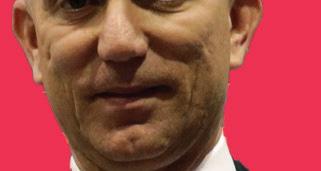


 RENATO ALMEIDA Director, FBM
RENATO ALMEIDA Director, FBM
Thomas Schmalzer studied economics in Austria and the Netherlands. Prior to his career in the gaming industry, he worked as a senior lecturer and research manager in higher education, running large-scale R&D projects in Europe, Asia and Latin America. Since joining Novomatic, he has managed turnaround projects in software engineering companies within the group and has worked as Managing Director in different group subsidiaries.
Renato Almeida grew up in São Paulo, Brazil, and, after finishing his academic path, pursued an internship at NEC Brasil. He continued his professional journey at a bank automation company. In 1995, he joined Fabrica Brasileira de Máquinas Automáticas (FABAMA) as Electronics Technician and worked at FABAMA for several years. After this experience, it was time to embrace a challenge at FBM as a Technical Director, being later promoted as Vice President. Today, he is part of the Board of Directors and takes part in decisive matters that define the future of FBM as a global gaming brand.

Product Management & VP Global Sales, Novomatic AG




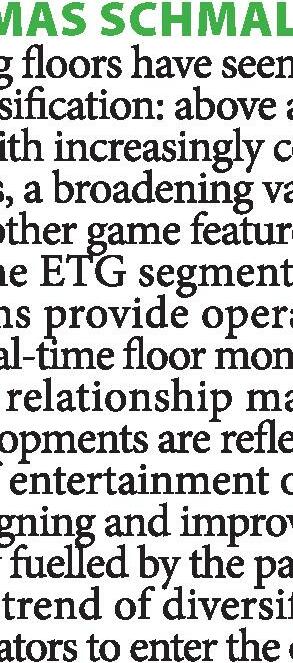






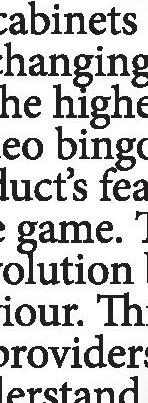



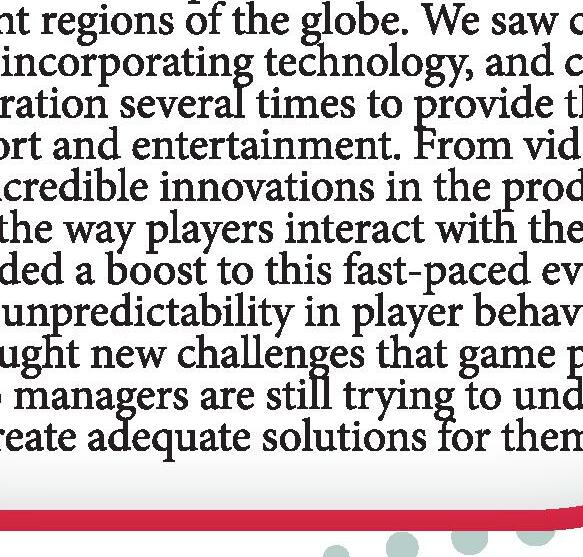












































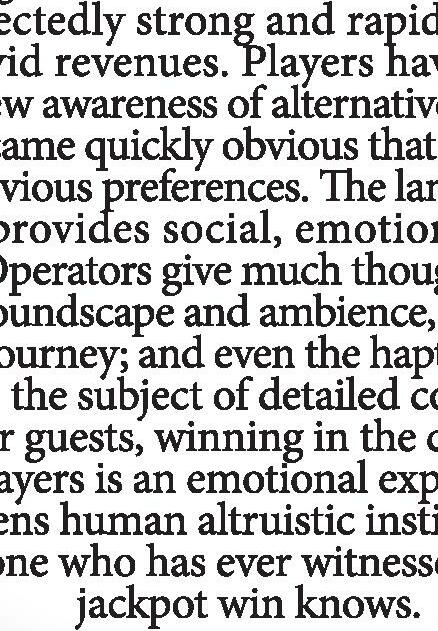


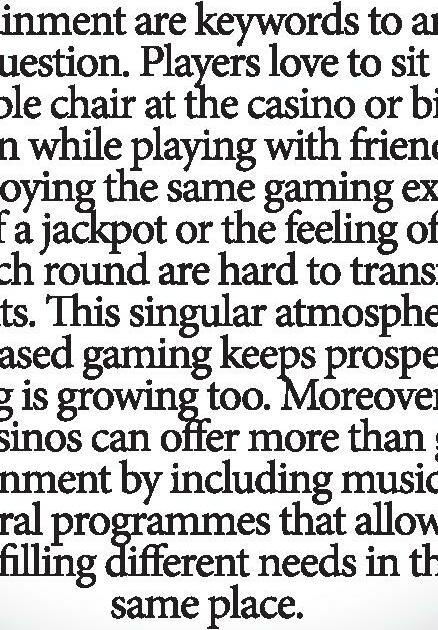




WHY IS LAND-BASED GAMING STILL POPULAR AMID THE GROWING POPULARITY OF IGAMING

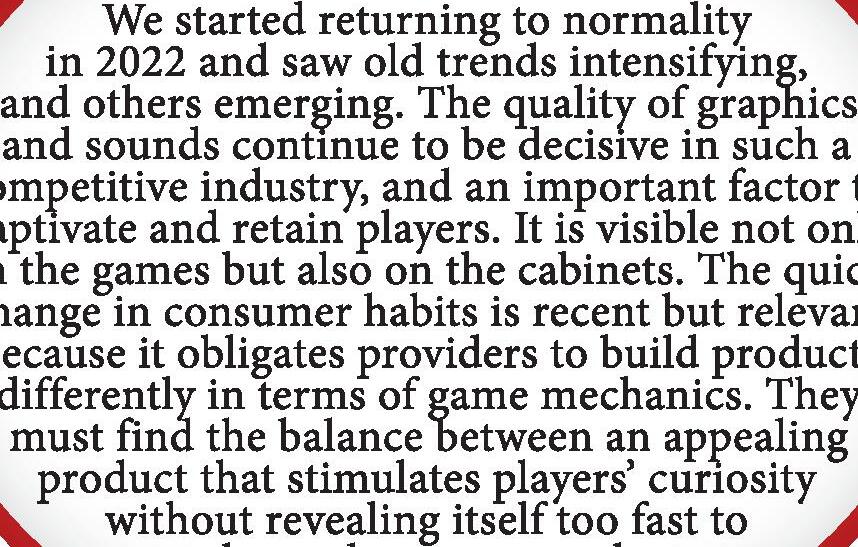


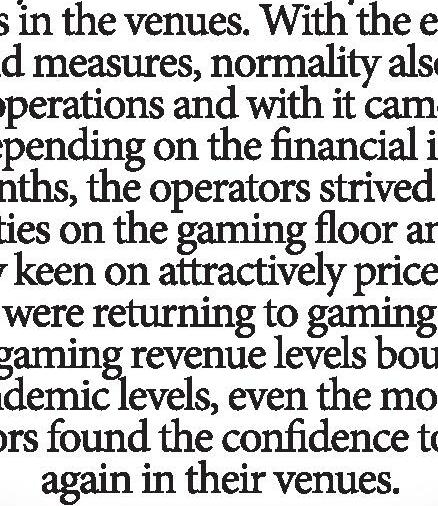








































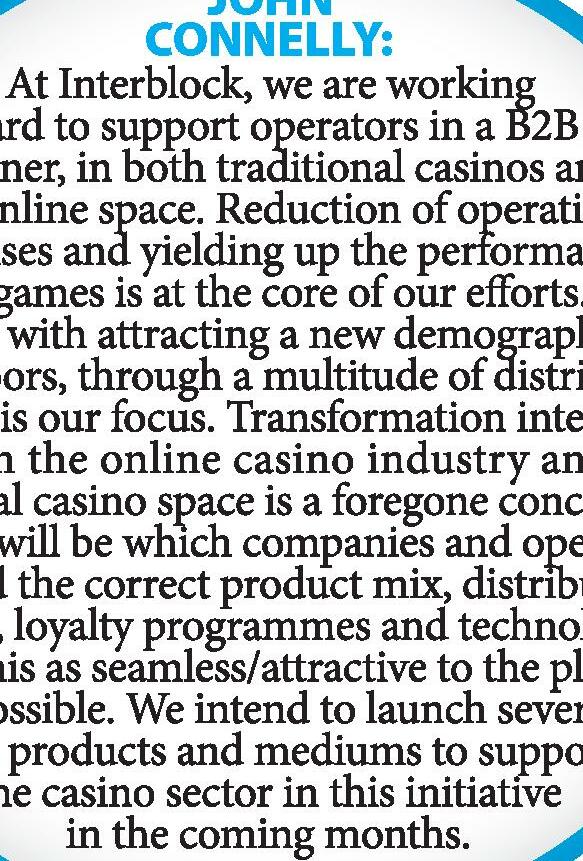




















Softswiss CMO Valentina Bagniya speaks exclusively to Gambling Insider about her aims for the casino supplier's marketing department, as well as her progress to date





Valentina, tell us about your role at Softswiss and your journey with the company so far?





I’ve been at Softswiss for more than two years now. From the very beginning, it was a very challenging and interesting proposition for me. In fact, when I came to Softswiss there was no marketing department. Now, looking back at all the changes we’ve made, I clearly understand that we’ve done a huge job over these two years and now our marketing department is vast.


Softswiss' brand awareness shows three-digit growth each year. At the same time, we have expanded the geography of our presence, begun to use non-standard promotion channels, and made analytics an integral part of the marketing function. These results are just a part of our work. But the most important thing is that all marketing activities are now done in accordance with the long-term marketing strategy, which is updated every year.
We work on the strategy a lot, especially right now. We do a lot of analytics to understand our clients and the efficiency of everything we do. The proper understanding of the company and our products helps us create effective promotion plans and well-performing marketing campaigns.
At SiGMA Malta in November, Softswiss used a non-standard marketing campaign. Based on your answer just now, how would you measure the success of the campaign? This is a very good question. Usually, when people talk about non-standard campaigns, they mean just the creative concept and buzz around it. For us, creative work is always interesting. But we always start with planning the goals and KPIs of our campaigns. The main goal of the ‘Blazing in’ campaign was


to increase the Softswiss brand awareness in the region. Why this goal? Malta is a gaming hub and we have more than 10 years in the Maltese market – we can say that Softswiss is not a junior brand. But all analytical data showed that our brand awareness was not very high there. And that the situation definitely needed to be improved. We intended to do something which could help us reach our goal in a very short period. So, we decided to do something drastic, more typical for the FMCG industry I came from.
The campaign was done in two steps. First, we created a bright image with a red hot chilli pepper to attract attention and show our brand to the Maltese target audience. We wanted the local community to dive deeper into the brand, and drive the competitive market. When we attracted people and they saw the brand, we made our reveal as the second step, and explained who we were by showing the C-suite managers responsible for the business. We did it in a very non-standard way – in a bathtub with chilli peppers.
Coming back to the results, when we were choosing the channels for communication, people asked us why we decided to choose those channels. The answer is simple – we have analysed the population of Malta and spoken to many regional experts – and, obviously, Malta is a country of iGaming people. So, eventually, we choose the communication channels with the highest affinity index – out-of-home and radio ads with digital communication, PR communications and SiGMA. Analysing the results, we looked at the branded keywords clicks and measured the organic traffic to our site. Of course, we analysed only Malta as a region. For example, the number of branded keyword clicks grew more than 100% and continues growing. And what is more important now is that our Business Development department is getting many more requests from the Maltese region.
What was it like taking part in the campaign yourself?
I participated in our photo and video shoots with hot chilli peppers. It was exciting and funny! I haven’t tried a chilli, but several colleagues tried them while shooting. One of them even ate it for the camera. It was fun for the managers who took part in this campaign.
Why am I talking about that? The other important function of a marketing department besides creating strategies is to ensure their successful implementation. And to do so, you should be sure your strategy is shared by your colleagues. If your colleagues share and like your ideas, they help you implement them. It is crucial.
Having invited our managers to participate in this campaign, we increased their loyalty, they became advocates of it and helped promote any, even the craziest, projects.
You mentioned that you’ve built the Softswiss marketing strategy from scratch. What was the most important aspect in building that strategy?
And, at the same time, what was the biggest challenge?
The biggest challenge was making the marketing function a part of the business processes in the company. If a company gets used to operating without marketing, and everything is going quite well, it can make other C-level managers think that a marketing function is optional. Changing this way of thinking was the biggest challenge for me.
Of course, the gambling industry is a part of the challenge, because this sector is probably more different from the industries I’ve worked in. However, I’m sure that when you’re working on the strategy, it doesn’t matter what product you work on. The crucial thing is to understand the consistent steps of the strategy development – analytical parts, defining development zones, setting goals and describing how you will achieve those goals. This is a universal process. Of course,
the implementation and KPIs can be different, because you use different channels and steps to evaluate the strategy efficiency.
So, the first thing was to make the marketing function a part of the business processes. The second was to create and build a motivated professional team. And I consider the team as my main achievement. People I’m working with every day, shoulder to shoulder, are very cool, motivated and charged up by the success of Softswiss. They’re doing their best to make our brand more famous and increase loyalty to our brand. Every time I look at them, I feel very proud of the things they do.
In your two years with the company, has your approach changed? If so, how? Softswiss’ marketing department has been changing during the whole period. We grew a lot. We did a lot.
The team itself has changed a lot. We’ve become much more professional. Now, we are doing many more things than we did at the start. The number of channels and tools we are using has increased. The analytical approach has changed a lot because now we can analyse absolutely everything.
What else? When I came two years ago, I knew nothing about gaming and gambling. Now I know much more. I continue to get more and more insights from my communication with my team, and with such experts in the industry as you and others. I am like a sponge and absorb as much information as possible. And, for sure, our company has changed a lot in its approach and attitude towards the marketing role within the business. Now the marketing team is respected and seen as a huge strategic function.
Finally, what kind of campaigns can we expect from Softswiss in 2023? We keep doing something unique and different in the industry. Now, we can’t decrease the level of grandiosity after the Maltese campaign, and the whole team is working on the next big event, the ICE London show. And, honestly, that’s not all. We’re back in London and we want to make this return very bright. Therefore, we became an exclusive partner of the Fire & Ice 20th anniversary party. We’re very inspired to be a part of this exciting event and share all memorable moments with our friends and partners.
I also expect that our competitors will notice us and also do something big – because, as a marketer, I like to work in a highly competitive environment with strong competitors, similar to Cola and Pepsi. I enjoy working when competitors watch each other and try to do something better.
"I also expect that our competitors will notice us and also do something big – because, as a marketer, I like to work in a highly competitive environment with strong competitors"




We sit down with representatives from esports betting providers – PandaScore Head of


experience that not only meets but exceeds player expectations.
differentiate, even at this early stage in the evolution of esports betting.

Niner,
Fröberg, Bayes
Martin Daschelt and Beter
Ehrlich – and ask each firm the same pressing questions. What next for the evolution of the esports betting industry and how does this tie in with operators?


 OLIVER NINER, PANDASCORE HEAD OF SALES
OLIVER NINER, PANDASCORE HEAD OF SALES

What does the process of finding a partner to offer esports betting solutions involve?


What signs and attributes does an operator look for in a potential partnership with a supplier?
A growing number of operators now understand just how big esports, and esports betting, is and will be. These brands are looking to launch a dedicated esportsbook, and to do that many need to partner with an esports data and odds provider. When assessing who’s best for the job, operators need to consider the range of odds and markets the provider offers, but just as important is the reliability and performance of their feeds and betting products. Just like with traditional sports betting, operators also need to look at the provider’s product offering and roadmap to determine whether they are able to provide an esports betting
Operators should also look to partner with suppliers that are genuinely passionate about esports, and have a deep understanding of the industry and a love for all things competitive. Esports has a unique culture that must be respected and built into any betting product launched to esports fans.


What is the value of sourcing third-party solutions over in-house solutions and vice versa?

There are obvious upsides, such as speed to market and benefits from the cost efficiencies that come with using a third-party provider. But perhaps the greatest value-add comes in being able to tap into the passion and knowledge that exists within specialist esports providers; leveraging this to deploy a product that will hit the mark with esports fans. It must be remembered that they are often very different to traditional sports bettors and have their own ideas of what they expect from a betting product and wagering experience. Another benefit is being able to launch esports-specific betting products to players before they really know they need them, allowing operators to engage players and show they know how to deliver a thrilling experience.

What must third-party suppliers do to keep operators on board with them?
Simply put, we must deliver an unrivalled standard of performance and service to our operator partners, as this ultimately allows them to attract esports bettors at scale and drive higher revenues. As esports and esports betting specialists, it’s our responsibility to ensure our operator partners are maximising the opportunity on the table, not only to bring
Third-party providers can also work with operators to create bespoke products and features, which can really help brands to Oliver Niner

in new customers but to also cross-sell esports betting to existing punters. Innovation is also a must; operators want to be ahead of the curve and make the most of the first-mover advantage in what is an emerging vertical; and this requires a superior esports betting product that is as stable as it is powerful.
How can you see esports, and by extension esports betting, evolving in the coming years?

The esports betting vertical is just getting started and will undoubtedly experience exponential growth over the coming years. The growth we saw during the Covid-19 pandemic has been sustained and shows no signs of slowing down. We can see this in the volume of wagers we processed over the past 12 months; our total turnover in 2022 had surpassed the total turnover in 2021 by the beginning of Q3. This is also evident with the growing
number of tier-one operators that are now launching dedicated esportsbooks. For some operators, esports is already one of the top-five performing sports within their book.
I can easily see it jumping into the top three, as more brands offer it to their players and it moves further into mainstream culture.
When do you think esports betting will be big enough for more operators to buy different esports suppliers on a wide scale? Esports is already big with more and more tier one operators now offering esports betting to their players. The vertical continues to mature in European markets and is expanding its reach globally. Any thriving sector attracts M&A activity and esports, and esports betting, will absolutely be no different.
OSKAR FRÖBERG, ABIOS CEO
What does the process of finding a partner to offer esports betting solutions involve? What signs and attributes does an operator look for in a potential partnership with a supplier?
The process for an operator to find an esports odds provider is similar to the process of finding, evaluating and deciding on any other kind of enterprise solution. It is important to make the distinction here between quick decisions, instant sign-up, developer-first solutions and longer-term sticky enterprise solutions. Finding and selecting an odds supplier definitely belongs in the second category. The operator will usually conduct some initial research and create a shortlist of which seemingly reliable esports odds suppliers exist, and then contact them to gain a deeper understanding of what differentiates the offerings. The operator will then test or have the specific solutions made available in a demo environment followed by
narrowing down the selection to conduct further due diligence.
To name a few items, this due diligence includes assessing the current and future quality and features offered, ensuring that the supplier runs its product on the fastest official data sources; along with assessing the regulatory environment and if the supplier has all the necessary licences to deliver its products in relevant jurisdictions.
The esports tournament ecosystem is filled with matches from all tiers of play. Due to the international nature of esports, there are always ongoing matches in different time zones. As such, esports presents a way for operators to reach a new audience while diversifying their portfolio of highly seasonal sports. This, of course, is only possible when partnering with suppliers that offer wide coverage for the most popular esports titles. Aside from coverage, our understanding is that operators look for the same attributes among partners in esports as for regular sports. High uptime and live markets are essential components of a strong offering.
What is the value of third-party sourcing solutions over in-house solutions and vice versa?
The strongest incentive to outsource products or services is to access better products at a lower cost than what could feasibly be created in-house. It allows the purchaser to specialise in its core areas instead of competing in new areas of product development. On the other hand, the case for hosting services in-house may be strong because it employs a higher level of control and could enable further differentiation of the business. The problem occurs when experts in sports try to navigate esports, which is still a niche product among many sportsbooks.
For any company looking to venture into the realm of League of Legends, CS:GO and Dota 2, we believe it is paramount to employ people with domain expertise in the field. The esports ecosystem, culture and consumer behaviour differ vastly from sports, which means that a product from sports might fall flat in an esports setting.

The expertise and resources necessary to create a competitive esports offering might be hard to obtain in-house. As such, it is more feasible for sportsbooks to use dedicated esports suppliers that can perfect bet offers, coverage and uptime to the level necessary for esports betting to be enticing to fans.
What must third-party suppliers do to keep operators on board with them?
Our belief is that it is important to have an ear to the ground and listen to what customers want, all while having the structures in place to be able to innovate and create products that adhere to that. Additionally, being a provider of highly technical products, we believe it is vital
"Even with the esports betting market growing, it is still in its early stages. With several suppliers’ upcoming improvements on the product side, we believe sportsbooks are yet to see the full potential of esports"
Oskar Fröberg



to have a strong customer support infrastructure and well-established communication channels in place. This ensures customers have access to help when needed and enables them to make the most out of a product offering. Predicting the customer's needs and always putting the customer first is key to success in any business.
How can you see esports, and by extension esports betting, evolving in the coming years?

The esports ecosystem is clearly maturing. The high-quality productions we see today for the largest tournaments are light years ahead of the small-scale events we saw ten years ago.
Larger game publishers and tournament organisers have created professional esports scenes where an ever-increasing fan base can cheer on their favourite teams in a convenient setting. While the ecosystem is subject to rapid change, we believe the largest esports have a secure footing and will be around for many years to come. Even with the esports betting market growing, it is still in its early stages. With several suppliers’ upcoming improvements on the product side, we believe sportsbooks are yet to see the full potential of esports.
When do you think esports betting will be big enough for more operators to buy different esports suppliers on a wide scale?
It already is. While there might not be a large crossover between traditional sports fans and esports enthusiasts, many sportsbooks have identified esports as an avenue to reach a new, digitally native audience. The hard part is to create a compelling offering that makes esports fans interested in betting.
MARTIN DASCHELT, BAYES ESPORTS CEO, & GAL EHRLICH, BETER CEO
What does the process of finding a partner to offer esports betting solutions involve? What signs and attributes does an operator look for in a potential partnership with a supplier?
MD: This is an interesting question. I think the key word here is evolution, as there are a lot of parties in the market that make false promises about things such as the source of their data. The problem is that many operators don’t understand the differences between traditional sports and esports. That’s what we at Bayes Esports and our partners are working on, to educate operators so they can make an informed decision. For us it’s important that we’re in the right market, we license official data for our partners and turn that data into odds. The difference here between esports and traditional sports is that traditional sports have fewer data points and actions to bet on. In esports, there can several events per second, which makes it so much more important for services to be based on an official and reliable source.
Operators looking to engage in a partnership with a supplier need to ask a range of questions: What’s the product? Which markets do you offer? How fast is the resolution time and what’s the uptime of the markets? Market uptime is especially important in esports, because if you pause the market 10 seconds before each team fight, it will be very difficult for a pundit to place a bet, resulting in a worse customer experience. However, if you work with unofficial data, you need to close your markets regularly, because, being unoffical, the data you work with is slow and unreliable. The second aspect operators need to be aware of is the integrity and reliability of their betting services. Matches in esports do not need to be broadcasted live, but instead can also be pre-recorded off-stream. In such cases, licensed providers can inform operators not to take bets on the match because, with it beng pre-recorded, the threat of insider betting increases. These benefits and signs of legitimacy are what an operator should look out for in a supplier.
What is the value of sourcing third-party solutions over in-house solutions and vice versa?

GE: I think there are a variety of reasons why clients are choosing to have external partners rather than do everything in-house. First of all, trading and managing the whole lifestyle of esports events is completely different, but many operators still have a very conservative approach to esports betting. This is because the business model is all around sports betting, in which operators do excellent work. With
esports, even the acquisition and retention process is completely different. I’ve had operating clients ask me the best way to convert a football bettor into a CS:GO bettor. But this is never going to work. If you try to convert sports bettors into esports bettors, you’re wasting your money. The whole esports ecosystem, from player acquisition to sponsoring the right events, that’s one step an operator can take. And when it comes to choosing a partner, it’s about finding a partner who can collect, manage and trade data effectively. As suppliers, we need strong optimisation and AI tools to manipulate all of this data. As Martin said, risk management is also completely different, which is a common area of discussion we have with operators – how to set betting limits and how to market combination bets.
I think operators also understand that you don’t need to just provide esports data, but a tailor-made experience for customers. Traditional sports betting sites are very similar, and a different world to what traditional esports fans are looking for when betting. What we and a number of partners are providing is an iFrame, which is a turnkey solution for esports betting. The focus of it is to provide esports bettors with a holistic view of the betting experience they would most want, something more aligned to their experience of watching esports. So an operator can start from scratch: spend time and money building their esports offering up, or get tailor-made solutions from suppliers, which is what many choose to do.
What must third-party suppliers do to keep operators on board with them?


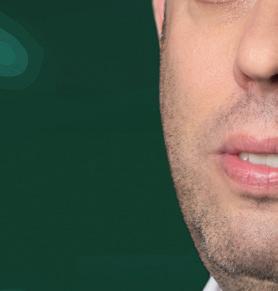

MD: Esports is very dynamic. Even for established game titles like CS:GO and League of Legends, there are frequent game patches. Major rule changes happen very infrequently in traditional sports, but esports titles have at minimum 3-4 patches a year, which may


change the dynamic of the game and therefore the betting. Prediction models and the approach of trades need constant changing, so it’s an ever-evolving segment.
There are also new titles emerging alongside the big names, which adds further variation to the esports landscape. These titles could disappear in the future, but could also turn out to be the next League of Legends. It's important to have systems in place that work with niche game titles and emerging game areas and markets, so you can be first to jump on the newest trends. We can even develop markets for a game based on its popularity and how long we belive it will last.
How can you see esports, and by extension esports betting, evolving in the coming years?


GE: Of course, in terms of the evolution of games there are things that everyone expects, such as stronger consoles and PCs, better graphics and a greater drive towards VR. I hear Apple is rumoured to be introducing a new VR headset, so that market is only growing.
Regarding the betting side of esports, evolution will come through innovation. This will involve better analysis of data, and greater AI and machine learning. There also need to be new methods of adjusting analysis and data game-to-game, growing more niche and specific markets. The amount of data received from servers, even nowadays, means there is a lot to play with in terms of future markets.
Risk management will also become ever more automated, meaning machines will take smarter and faster decisions in real-time, vastly improving risk management. The market will surely grow
when it can accept bets faster, as the nature of any game can change in an instant. This will also help mitigate against any player getting an unfair advantage. Lastly, there will surely be innovations to the user experience, which will grow more and more intuitive as time goes by.
MD: There is only a very small section of sports bettors that are also interested in esports, so the mission is to grow that percentage, by making esports betting more approachable and allowing operators to promote esports effectively. The majority of those interested in esports are, of course, from a young audience – which equates to hundreds of millions of people, but they will grow older and have disposable income to bet in the near future. Furthermore, this generation will have different betting demands to the current wave of traditional bettors. Traditional sports betting is not exciting or entertaining enough for younger esports fans, so operators need to be faster and more agile in the future if they want to stay on top of the betting market. The market needs innovation; and companies need to come up with ways to modernise the esports betting experience as the years go by.
When do you think esports betting will be big enough for more operators to buy different esports suppliers on a wide scale?
MD: Of course, there have been a few acquisitions in this area already, and the title “esports supplier” covers a large area. For example, Bayes Esports is a data supplier, which means we sit between the rights holders and tournament organisers on one side, and the demand from the betting industry and media on the other side. While betting on esports is
the largest revenue stream from the data we provide, the rightsholder side is very careful and protective regarding their brand and sharing their match data. We have to make sure the data is only used for legalised sports betting.
While a minority ownership of an esports data company like ours would probably be fine, it could be a problem if it was fully owned by a betting operator. If this were the case, it could be that rightsholders would grow hesitant to give operators complete access to their data, espcially if it's a proprietary deal as that could lead to serious legal issues. So I think the acquisitions that happen in the esports data industry depend on the kind of esports supplier in question. I do think it’s possible that larger operators will try to develop their own in-house capabilities.
GE: M&A has gradually been happening over the last few years, and I expect this to continue and grow. There are two points here: I think you’ll start to see more M&A in times of economic hardship and recession, which is the nature of many industries. If profits are falling, acquisitions are great for driving synergies. This is why I think we see more M&A happening today.
The second point I’d like to refer to is USP. Operators are realising that, to achieve further growth, esports is one of the most promising areas to achieve this. We’re already seeing that esports is generating up to 20% of the revenue for some of our customers. So if you have an operator who decided that esports is its future growth engine, buying a supplier over doing everything in-house, that’s a very key question moving forward. I will say that I do think many operators will look to acquire before building everything themselves in-house.

How do you reflect on 2022 and how will gaming’s relationship with the metaverse continue?
I think gaming and the metaverse had a very shy relationship in 2022, but as they get to know one another they will have a better relationship in the years to come. In my opinion and those of the industry, the metaverse is the way forward – and as gambling is part of the human experience, it makes sense that it will have a significant place in the metaverse. There are questions, though, regarding how things will happen in this relationship. These things should be understood and predicted based on how technology, industry and human behaviour will change in the years to come.
Gambling is an old habit – the first dice were discovered in the pyramids and are 5,000 years old, which happened because the game itself was in the proximity of the people. However, as technology came into our world, we started socialising and bringing people to the game from far away. Now, we are moving to a place where people will start owning digital things and coming together online. It’s very similar to how humans evolved. In today’s world, we know that if the experience of gambling for the modern player isn’t smooth, then it will not be there at all.
In this part of evolution for the industry, it comes with the question of how the experience will be delivered – which is a very technical question. But, more interestingly, there is a second question, which is: To whom is that experience being delivered to?
As we see the demographics of the people who are playing, it is structured in two large areas: Gamers, playing skill-based games,
Ștefan Ciobanu
and gamblers – luck/chance-based games. Now we see a certain convergence of these worlds, with an interesting bridge being built between the gaming side and the gambling side. Most of the time these days, you find gaming has been integrated into a metaverse approach, especially when you look at things like Minecraft. Will these people expect to go from that open environment online to something more individual when they come to the gambling side? I don’t think so. Businesses should adapt themselves to deliver an experience to their clients in a way that is adapted to a new generation. This goes for every industry, not just gambling or gaming.
What is the metaverse in this context? While I have been trying to find a comprehensive definition, I've received one from AI (very trendy these days) – ChatGPT: "The metaverse is a virtual space, constantly evolving and expanding, where people can meet and interact with one another, and

the representation of real objects can be found for business. It isn’t a single world or application, rather it is a collection of different virtual environments that are connected together." It comes as a reaction, in my opinion, to highly centralised older social networks that were places like casinos – and although they mapped the human relationships very well, sometimes it wasn’t used in the most ethical manner. People now tend to have a reaction against that. This is why the metaverse is becoming an ecosystem of distinct worlds that are speaking to one another. Businesses traditionally try and keep what they have within themselves, which is why I believe, in this context, the metaverse is a natural evolution of technology that brings everything closer to us and the way we interact with it.
How would you describe gambling’s relationship with the metaverse today? The interaction is given by the technology that is available. Not everybody can have an interaction because there is no current framework for that. The existing framework delivers a limited type of experience, but if you look at all of the metaverse’s proposals that are out there, people tend to go towards gambling and gambling experiences. It is natural for people. The moment they can find an environment where they can interact with each other, gambling becomes an important part of the type of relationship they want to have.
How is that going to evolve and happen? I think it is pretty clear. Our vision is that the future is going to be ‘Phigital’ – meaning a combination of physical and digital. This bridge between physical and digital means people from anywhere can enjoy a combined experience without necessarily having to go anywhere.

What areas of tech security do you think casino operators are neglecting and why?
I wouldn’t say there’s one specific area being neglected. I’d say that most casino CIOs and CTOs are smart folks who are working hard in a challenging environment. But here’s why it’s so challenging. First, most casinos have a lot of businesses and brands under one roof – hotel, casino, multiple restaurants, a spa, maybe a bowling alley or movie theatre, retail stores and more. That usually means multiple different technologies that need to work together, which were never built to work together. Those integrations can be vulnerable to attack. Secondly, casinos also usually have a lot of legacy software – that’s generally more vulnerable to attack, as well.
much, much more – often being delivered by many different vendors. That’s a complex tech stack to manage. Finally, investing in technology upgrades can be expensive and complex, and most companies – regardless of what industry they’re in – tend to try to delay these upgrades for as long as possible, to avoid dealing with the headache and expense of the update.
enterprise moving many millions of dollars annually, that’s not usually a smart move and can lead to very serious issues.
Another legacy issue is that a lot of casinos use software written in outdated programming languages. It can be really tough to find engineers who still know it, and even harder to find engineers who want to use it. Older legacy tools can actually be a lot more expensive to maintain, and you lose out on many of the more modern innovations. Casinos are often very far behind when it comes to the cloud and modern DevOps improvements, which is a shame. Many casinos also use quite a few different software solutions that don’t work well with each other. This makes coordination of tasks difficult; it creates information silos and results in some serious inefficiencies. Interfaces can help somewhat, but this is an area to regularly review.
Thirdly, the regulatory environment is a double-edged sword. On the positive side, regulation is a terrific way to ensure technology is built with a meaningful level of quality, doesn’t have backdoors, etc. But on the negative side, it also makes it more difficult for a casino to stay up-to-date on the latest and greatest. The newest security tools may not have been approved by regulators, so casinos can’t always use it. In extreme examples, gaming companies sometimes rely on solutions that were approved many years ago and are painfully outdated; rather than install more modern, secure solutions and go through the time-consuming and expensive regulatory approval process to use the more modern tools. Additionally, casinos are understandably attractive targets for malicious actors.
Furthermore, gambling tech has to do a lot of things – it incorporates loyalty software, financial transactions, KYC and AML tools, geofencing, games, security, marketing and
There had been warnings from those working for Southwest Airlines that a potential meltdown was on the way. Have there been any similar warnings from those working in the casino industry?
Sadly, yes. I think one of the biggest moments that got everyone’s attention happened back in 2014 when Las Vegas Sands was attacked by Iran. And those hacks have continued.
Cyberattacks have closed down casinos in places like Arizona, Oklahoma, California, New Mexico and Wisconsin. The FBI Cyber Division in November 2021 issued a warning, as have various gaming commissions.
Is cyber security a blanket term that casino operators use? Does it miss smaller processes that are important to invest in as well?
Beyond shoring up the cyber security side, there are so many additional reasons to regularly review and update your software. Many casinos are using software that is no longer supported or updated by its original creator. I understand why – it’s often really expensive to update. But for a major
There are some incredible new solutions one can create to enhance marketing technologies, digital wallets, analytics, hosting tools and more – those solutions can have a meaningful impact on a casino’s bottom line. And, on a similar note, there are some technical modernisation initiatives that, frankly, just about every company should be implementing.
What preventative measures would you suggest that casino operators take to avoid a potential catastrophe, in regard to upgrading or maintaining their tech?
One of the best measures is to do an audit of your tech stack and be ready to act on the findings. Think of the audit like a medical checkup. You can’t go too many years without doing one. If you wait too long, a small problem can – and often does – turn into a major issue. It’s generally a lot cheaper and easier to fix the problem before it blows up into something awful. An audit helps you figure out what’s working, what’s outdated and where you should make some fixes.
Audits work best when conducted by an outside impartial company that can take a fresh look at the software and infrastructure. Usually, audits uncover at least a few areas of improvement and often uncover major deficiencies. My team at Plan A Technologies does a lot of these audits, and it’s sometimes pretty shocking what we find. It’s also incredibly rewarding to help operators avoid the catastrophes you’re talking about.

“One of the best measures: do an audit of your tech stack and be ready to act on the findings”Aron Ezra

Gambling Insider reviews the highs and lows of poker in 2022, as well as previewing what lies ahead for the vertical in 2023
It’s safe to say that, like every other vertical of the gaming industry, poker had its highs and lows in 2022; but given the drama, excitement and huge sums of money involved, it maintains a consistent level of popularity. Despite a lack of headline grabbing amid the ever-present verticals of sports betting, iGaming and land-based casino, poker is by no means a small fish in a big pond, with countless companies seeing the value in a strong poker offering. Gambling Insider delves into an eventful 2022 for poker to say the least, as well as predicting what 2023 could look like for the vertical.
Jr.As is true within all gaming verticals, cooperation is key, and poker was no different in 2022 as countless deals were signed by various companies. Playtech led the way in this regard, adding AdmiralBet, Lottomatica and PokerMatch to its iPoker network. Money is, however, very much the name of the game when it comes to poker, with 2022 proving more than ever that huge volumes are up for grabs for the most talented players across the globe. Venom Fever guaranteed 1,000 seats to its $5m Venom PKO, for example, while the World Poker Tour World Championship at Wynn Las Vegas involved a $15m guaranteed prize pool, the largest single live tournament guarantee in the history of poker. Global expansion was another high point
for poker in 2022, with the likes of EvenBet Gaming launching the Teen Patti online poker game on its turnkey platform; the game has been a huge success in India, having grown from over 150 million active users in 2020 to over 200 million in 2022. PokerStars, meanwhile, went live in Greece, with the Flutter Entertainment group also making its long-awaited homecoming in the Canadian province of Ontario. Both the partnerships and the global expansion, coupled with the immense sums of money on show, prove just how popular poker remains and how much potential there is within the vertical.
As mentioned, however, 2022 wasn’t all smiles within the poker world. As has been the case in the land-based casino vertical, Australia is proving itself to be a constant issue of negative press; that has also extended into Australian poker. An October inquiry led by the New South Wales Crime Commission found that pubs and clubs were being used to launder billions of dollars through poker machines, with around AU$95bn (US$61.72bn) believed to go through pokies every year.
Also, the Australian Communications and Media Authority commenced civil penalty proceedings in the Federal Court against a handful of well-known local poker identities,
who had allegedly been running illegal poker services in contravention of the Interactive Gambling Act 2001.
Australia hasn’t been the only region to bring the poker vertical into disrepute lately, with Los Angeles taking some of the heat in September when professional poker players Robbi Jade Lew and Garrett Adelstein were embroiled in a cheating scandal during a high-stakes game at the Hustler Casino. And one of the biggest issues was undoubtedly the £672,829 ($742,000) fine handed to GGPoker by the Gambling Commission for social responsibility and anti-money laundering failures, proving all doesn’t move swimmingly in the glamorous world of poker.
To see what lies in store for poker in 2023, it makes sense to once again venture into 2022, with various companies and individuals perhaps providing a glimpse of what is to come.The glitz and glam looks set to continue in the next 12 months, following on from the likes of award -winning DJ Steve Aoki and actor and comedian Vince Vaughn featuring in poker-related roles in 2022. Athletes also played their part and will no doubt continue to do so, with poker very much having its own rules when it comes to endorsements from sports people.
For example, football superstar Neymar Jr. was sighted at the 53rd edition of the annual World Series of Poker (WSOP) last summer, and boxer Chris Eubank Jr joined 888poker as its Cultural Ambassador. Thanks to the likes of PokerStars and Ape In Poker, the hot topics of virtual reality, cryptocurrency and Web3 technology may just be the major talking points of poker’s near future, while WSOP has ensured that the sensational world of influencers will continue to spread its wings. Celebrities aside, will poker see a continuance of industry leaders heading into the vertical? August saw Heath Cram leave gaming giant Flutter Entertainment for a COO role at start-up 4Poker, with others potentially following in his footsteps in 2023. So how will the year ahead look for poker once all the cards are dealt?

"An October inquiry led by the New South Wales Crime Commission found that pubs and clubs were being used to launder billions of dollars through poker machines"Neymar




































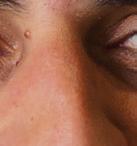





































































Milena Tsankarska , Head of Business Development EMEA at CT Interactive,


Ivanov


Director of Business Development Americas at CT Interactive, speak to Gambling Insider about the company's intentions for ICE 2023, last year’s achievements and where the company is heading going forward
cluster games. CT Interactive’s content is the product of an expert team with years of experience in the field. All the visitors to the global showcase will have the opportunity to see the last generation’s products. Our game was able to raise recognition with its intriguing mechanics, sound system and universal symbols of luck. We will be presenting a pile-up of cluster and cascading games at the trade show, which will certainly raise the attention of operators and their audiences.
What aims and goals does the company have for 2023?
MI: Our future plans include growing our global footprint in regulated markets and making more additions to our teams around the world. As we grow in different regions,we need to make sure that we find motivated, hard-working people who see the vision we have for CT Interactive.
How does CT Interactive reflect on 2022?

Milena Tsankarska: 2022 was incredibly dynamic for CT Interactive. We were able to enter dozens of regulated markets around the world and, as a result, the company’s business underwent significant growth during the last 12 months. During this period the parent company of CT Interactive – Telematic Interactive Bulgaria AD – went public on the Bulgarian Stock Exchange; thus, it became the first public Bulgarian company from the gaming industry that sets an example for all the other local gambling participants.
Martin Ivanov: We have witnessed a big expansion of CT Interactive in regulated markets around the globe, more specifically in Latin America and Europe. I am proud to say that in almost all of the largest gaming platforms in the counties where we are certified, our content is chosen. Honestly, it is an honour that those companies prefer us as a partner.
What is in store at ICE London for your company?
MT: During ICE 2023, the company will introduce a set of cascading and

Right now, I can happily state that we were able to form great, united and ambitious teams in all our offices.
MT: CT Interactive is investing a lot in its team to be sure that the company offers content to meet the highest industry standards. Each year, the number of gaming companies that prefer to use our products increases. The specialists always search

for new ideas and concepts to surprise the gaming world. Our themes are highly distinguished, and this is the reason so many companies choose to work with us. We are really thrilled with the way our content is developing and we will continue to follow this path.
Where do you anticipate the most growth for the industry, in terms of key markets and regions?
MI: One of our priorities is to keep expanding in the region of Latin America. The market there is large and in constant search for new content and different products. This is why we will continue to put our efforts there.
MT: Our pipeline includes extending market share in Europe, penetrating Asia and Africa. The latter is the continent with the youngest population in the world – which is yet to build its habits in terms of entertainment. Our content is very well received there, so we will continue expanding. We plan to keep growing our presence in Europe and to supply the largest operators with our products.
“Each year the number of gaming companies that prefer to use our products increases”


The iGaming industry is constantly growing, being one of the most competitive business sectors. The latest 2022 statistics show that 26% of the world’s population has gambled at least once per year at one of the thousands of online casinos that currently exist. To be one of the chosen ones, operators must discover what the target audience is looking for and give them exactly what they want. Most people in the iGaming industry have wondered at least once what the best strategy to attract and retain players is. Is it easier to attract or retain them? Is it better to launch campaigns to bring in new players or to focus more on the players you already have? Here are some of the most commonly used, and most effective, iGaming player attraction and retention techniques:
People tend to purchase a product or service when they get something extra for free. The same happens with casino players because the standard chance of winning is not enough (having the same equal opportunity at every online casino). That’s exactly why customers want something extra to motivate them to choose a brand over the others. Free spins are the most frequently encountered techniques to attract new players, but we can see more and more brands that design giveaways or offer big prizes such as cars, tech products, etc.
The challenge is to find the players who will be drawn to a brand and stick with it, instead of constantly looking for other new options to play online. In this context, loyalty bonuses work very well because, sometimes, it is to the benefit of the brand to offer substantial loyalty bonuses, instead of providing even bigger bonuses to reactivate players.
Tournaments are another strategy to keep players busy with various challenges. Online casino games are exciting to them, but competing against other players certainly adds an extra thrill to the game. The same is true of Christmas, Easter and Halloween campaigns,
or those that take place during world sports championships. It’s essential to increase the suspense by always giving players an extra reason to play; and an extra chance of winning, keeping them engaged outside the regular games they are already enjoying.
The user experience (UX) and the user interface (UI) are two key elements when it comes to online casinos, facilitating the quality and the time spent online by a player, since the games become more entertaining when users enjoy their interactions. More than that, the user interface focuses on the casino’s graphic design and the psychology of the buyer persona. There is also the intuitive nature of the interface itself: how many buttons there are, how easy it is to play, how easy it is to withdraw your money and so on.
It’s not just making the casino look pretty, but planning needs to start with the player’s journey. Both UX and UI have a significant impact on the difference between a successful online casino and one that has a big bounce rate.
Another essential step for maximising long-term revenue and ROI (return on investment) on marketing interest is retaining the best players and constantly increasing their rank. To target these aspects, operators must understand customer behaviour, and more about their needs and preferences. Fortunately, advanced technology allows analysis of the consumer’s profile and the facilitation of personalised offers, resulting in more efficient retention.
People always need something new because they get bored very easily. This is something that usually happens in daily life, not just in iGaming. Monthly new games are launched, especially due to the expansion of online gaming, so operators always have to be on trend to attract new players and retain those already involved. The competition is fierce in this field and, if a company does not learn to adapt, players will always find a better alternative with a wide selection of games from the top game providers.
However, the quality of an online casino is influenced by many factors. On the other hand, every player is different and has different expectations when trying their luck. Some players may want more bonuses, while others are looking for a great user experience; but almost every time, financial safety and payment methods will be carefully checked by them. Put yourself in the consumer’s place whenever you want to make the next decision, and be bold in exploring new ways of working; because attracting new iGaming players isn’t the most challenging part... keeping them is.
What made Amelco want to enter South Africa with LulaBet?
We’ve had an eye on the South African market for probably the last five or six years. We followed on from what we launched in Nigeria, which has been good so far. But with South Africa, up until more recently all that’s been legal is sports betting; so no other verticals, like iGaming, have been allowed to be a part of the offering. In the UK, we’re so used to having iGaming, casino, live dealer, virtual lottery verticals, you name it, all in addition to sports betting. So in South Africa, by only having sports betting available, this means there are strong traditional sports betting sites that have been there for years. There’s such a stronghold in terms of the sports betting offering and who was available to partner with.

you enter – so it’s slightly different. In South Africa, there are different regulations in each province, but you can offer services while being regulated in one of the provinces.
throughout the rest of Africa, whereas in South Africa the barrier to entry is fairly tough.
There’s obviously a much smaller pool to pick from when it comes to software providers. Although South Africa is the biggest earner in terms of revenue within the continent of Africa, Nigeria is second and more open. South Africa is the bigger market with a fairly hard barrier for entry. But once you’re in, if you have a solid product there’s no reason why you can’t pick up a fairly decent size of the market.
Are there any other markets in Africa you think may open up and grow in size, aside from South Africa and Nigeria?
But we kept looking and in the six months before Covid-19, we started to have more of an interest in South Africa; because this is when live dealer and iGaming became legal in the country.
Can you tell us about the regulatory set-up in South Africa and the operators dominating the market?
In South Africa, there are nine provinces and each province is almost similar to the way the US is run. However, in South Africa, you can get a licence in one province and this can serve the whole country; you’re not constrained to provincial borders. You can still operate nationally, whereas in the States you get your licence in Tennessee or New Jersey and you can only operate in each state
Of course, some provinces are more kosher than others. Some of them are cutting corners and it’s Africa at the end of the day. So there are things happening and some provinces are more stringent on how they govern things. Established operators stay that way because of their reputation. There are so many scams going on and so many things that are not necessarily trustworthy, especially when it comes to payments, data and mobile usage. So once an operator establishes a good reputation, and they know they can deposit and withdraw at a sportsbook, they immediately trust it.
How does the South African market differ from Nigeria, where you also operate – particularly from a regulatory standpoint?
The first thing I’d say is that the rest of Africa is nowhere near as stringent as South Africa. In Nigeria, you obviously need to get a licence from a gaming board. But once you have that licence, there’s no real intrusive due diligence undertaken on the platform like there is in South Africa. This is why there’s a lot more software providers and platforms scattered
Africa is such a big, vast space. We’ll never really appreciate how big the continent is. You could probably put the United States into Africa a few times. The population is massive and they’re all very football mad. Certain countries such as South Africa are big on cricket and rugby, which are both very popular. There are other countries in Africa where basketball is big.
In particular, I think Kenya is an interesting one to follow; Uganda, Ghana and Tanzania too. Sports betting is really big in these countries. A lot of nations in the south of the continent are starting to pick up as well; the likes of Botswana, Namibia, Mozambique, Zimbabwe and Zambia. One of the key factors to this is improvement and access to technology. Smartphones are now becoming part of the whole world and are a daily necessity; the same goes for Africa. You’ll even find that someone who lives in an African township, for example, will still have access to a smartphone and data because it’s become part of their daily life. Everything is accessible through these devices.
Because of this growth in tech, the gaming industry is also picking up and blossoming, and now becoming a lot easier to access. Download apps and you have access to a sportsbook. Players can buy preloaded credit cards from a corner shop and they can utilise these funds for a range of different bets. There’s also a lot of new technology around payments in Africa.

"In South Africa, there are nine provinces and each province is almost similar to the way the US is run"
10bet COO Nir Saadon sits down to speak with Gambling Insider about the African gambling market, 10bet’s expansion plans and where he believes gambling is heading in the continent during the next 10 years



– all features that will be problematic for the technological limitations for mobile users in Africa. We invested in R&D for our product and it is being localised country by country.






Well, the complicated regulation system is another challenge. Legal issues have greatly jeopardised the growth of online gambling in some parts of Africa. The continent doesn’t have a long history in online gambling and, while local authorities are figuring out the best ways to legalise betting, operators need to be extremely adaptive in every country they operate in, as the legal frames are vastly different. Strict limitations imposed on gambling operations by government agencies may make market expansion more challenging.
gambling. There’s a constant increase of the youth population that is becoming more interested in sports betting and moving away from traditional casino games. The steadily rising adoption of smartphones and the trend of gambling at home are fuelling the digital segment.
How would you sum up the African gambling market right now?

We see a lot of potential in the African continent, but at the same time it is a very challenging landscape for operations. The latest stats show that Africans with access to the internet is constantly growing. For example, the estimation for 2022 is that they will make up about 17% of global internet use. This represents over 50% growth compared to African internet users from last year.
Furthermore, Africa has a young and rising population of 1.2 billion people with nearly 60% of the population aged 25 or below. This is also the fastest-growing mobile market with a ‘leapfrogging phenomenon,’ meaning that millions of people’s first experience of the internet is via their mobile devices. All these factors drive great potential for mobile betting, but there are also big challenges that shouldn’t be underestimated. There are a lot of technology and infrastructure limitations – data is very expensive, while bandwidth and connectivity are limited. What this means for gambling sites is that they need to completely adapt their product to these limitations. European sportsbooks have cool visualisations, animations, flashy ads
There are different payment systems compared to developed countries. To be competitive you have to localise your payment methods, in many cases country by country. We’ve been successful in establishing strong local partnerships and 10bet’s players can take advantage of each country’s major payment methods, such as vouchers, cards, EFTs, mobile money. Not only this, but we can claim that in South Africa we will provide our bettors with the fastest withdrawals in the country (all in line with KYC and AML policies of course).
Africa is still a predominantly retail-led market. New operators will have to beat the brand loyalty that bettors already have towards retail local brands.

Where do you think the market will be in 10 years from now?
In 10 years, we believe Africa will be on par and competing in gambling revenue with continents like Europe and Central America. It will definitely have more regulated markets, improved technology and it will be significantly easier to enter the market. However, let’s not forget the saying that: “The early bird gets the worm.” It’s not a secret that whoever manages to overcome the early challenges and perseveres through will reap the benefits after that.

Things have taken an upward trend in the African gambling industry since Covid-19 struck, and this counts especially for online


How has the launch in South Africa been for you?















It’s too early to say – 10bet just launched in this market and deployed our ATL marketing activities. We’ll be happy to share some results in several months. South Africa is an extremely important strategic market for us. While the country’s online gambling laws have not been very progressive in recent years, the local authorities have recently taken steps to amend its gambling laws which opens the door to bigger revenue streams. Furthermore, South Africa was the first African country to introduce 5G, making our mobile app even more accessible to a greater number of the population.

We’re also investing in a sustainable business, not only globally, but also on a local level – we’re building strong partnerships and getting involved to support local communities. So far, we’re very optimistic, and we can see the hard work and monetary investment that was put into our African operations is going in the right direction.



Do you plan to expand outside Africa?



Yes, we’re leveraging our two decades of global experience on international markets and soon we will share news about a new continent we will step on. We’re aiming for Latin America, but we’ll keep our first market there a secret for now. Pretty soon, you’ll know about it.













"In 10 years, we believe Africa will be on par with Europe"
Gambling Insider reports from the launch of the Metropolitan Casino in Mayfair, with IGT, Novomatic and Light & Wonder all featuring at London's new VIP property; elsewhere, EGT presents Blue General HD
Gambling Insider was in attendance at the opening of the Metropolitan Casino, Mayfair, London in December 2022, where IGT’s Blazin’ Flames progressive jackpot game was on show. With the versatility to be placed on an extensive library of cabinet types, the three-level, must-hit-by, progressive jackpots are awarded randomly with a mystery trigger on any qualifying game for jackpot levels one through three. The Blazin’

Flames progressive also offers bespoke on-screen win celebrations, both at the top and bottom of any screen. Blazin’ Flames is featured on IGT’s PeakSlant32 cabinet at Mayfair’s Metropolitan Casino, which features three 32-inch full HD displays and a 13.3” Dynamic Player Panel. The cabinet is also able to house a library of different player-favourite themes. A modern cabinet design, the PeakSlant32 is designed with ergonomic comfort features and conveniences that attract players to spend increased time on the device. With superior
serviceability and durability, the cabinets are designed to reduce strain on staff resources, minimise down time and increase ROI. Other features included on the PeakSlant32 include a standard inductive wireless charger and USB charging port; ergonomic and durable button deck design; physical repeat bet button (bash button) that fits nicely in the player’s hand; and lights synched to game experience, music and sounds – as well as banked lighting with no additional hardware for basic functionality.
Filled with the latest in cabinet and slot machine technology, it’s no wonder the Metropolitan Casino in Mayfair has Novomatic’s Diamond X™ 1.55J cabinet as one of its core electronic table games (ETGs). Featuring a UHD PCAP touchscreen and a 15.6-inch player TouchDeck, the Diamond X™ 1.55J offers a curve screen game presentation for maximum player appeal.

The supplier’s newest cabinet has a large footwell, two XL start buttons and an indirect LED lighting concept, to create a blend of ergonomics and ambiance. Other features of Novomatic’s cabinet include a diamond-style LED silhouette concept with intelligent game-synched colour effects, an integrated high-performance sound system, an improved maintenance concept and an optional high-comfort chair called Mamba.
The improved maintenance concept for
the Diamond X™ 1.55J includes a monitor mounting that can be hydraulically lifted, granting access to the key components as well as a folding mechanism for space-optimised, safe transport. The Diamond X 1.55J will launch with the exclusive Xtension Link for the international markets. Jakob Rothwangl, VP Global Sales of Novomatic, said: “The Diamond X™ 1.55J perfectly complements the 2.32 multi-screen version, delivering a highly intriguing presence on the gaming floor.”
DIAMOND X 1.55J
Elsewhere at the Metropolitan Casino in Mayfair, Light & Wonder’s Quartz Hybrid cabinet was on display. The Quartz Hybrid is a redesign of the original Quartz cabinet, which can connect up to eight live table games together at the same player terminal. It can also connect fully automated table games in the same way.

Featuring a touchscreen with eight different coloured tabs, the Quartz Hybrid lets players switch between different available games, as well as view the live outcomes from each title being played at any of the eight partner terminals.
Each cabinet in the set showcases a 26.5-inch LCD high-definition player touchscreen, as well as a 12.5-inch customisable LCD screen for optional marketing displays and the aforementioned lighting effects.

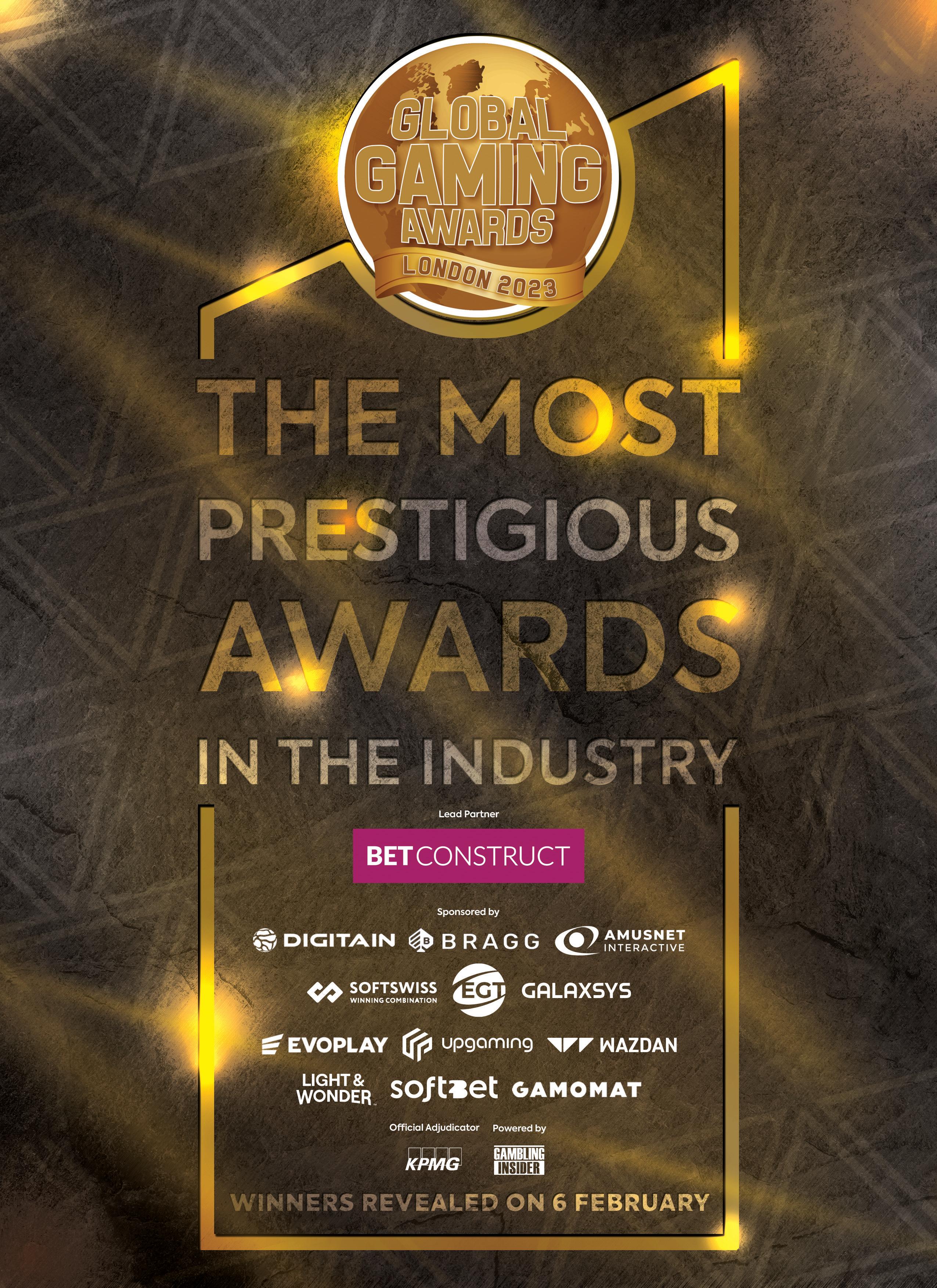
Blue General HD is one of the latest slot developments of Bulgarian gaming equipment manufacturer Euro Games Technology (EGT). The multigame mix is powered by the company’s latest Exciter IV gaming platform, and was created for a wide range of international markets. It contains a total of 50 games covering a variety of themes.
Along with the widely popular titles among players, such as Burning Hot and Super Hot, Blue
General HD includes 18 completely new titles. Some of the hot new additions are Sugartime, 10 Shining Diamond, Gold Keeper, Totems of Riches and Mystic Desert.
For the first time in EGT’s portfolio, there are features which allow players to collect symbols, enhancing the pleasure of gaming. Fans of bonuses won’t be disappointed either, as the aforementioned Sugartime offers a buy bonus. With this feature, instead of waiting for a bonus to hit, the player has the option to buy Free Spins and enter the bonus straight away.
Sugartime also offers another interesting new feature – Scatter Pay, which means winnings are paid out on a scatter basis. Blue General’s games are enriched with new bonus prize features that increase a player’s chances for additional prizes.
Blue General HD multigame is compatible with four mystery jackpots of EGT: Coin Jackpot, Jackpot Cards System, Premium Link Jackpot System and Lady’s Cards Jackpot System. It can be installed in all 15 slot cabinets of the company’s latest General Series.

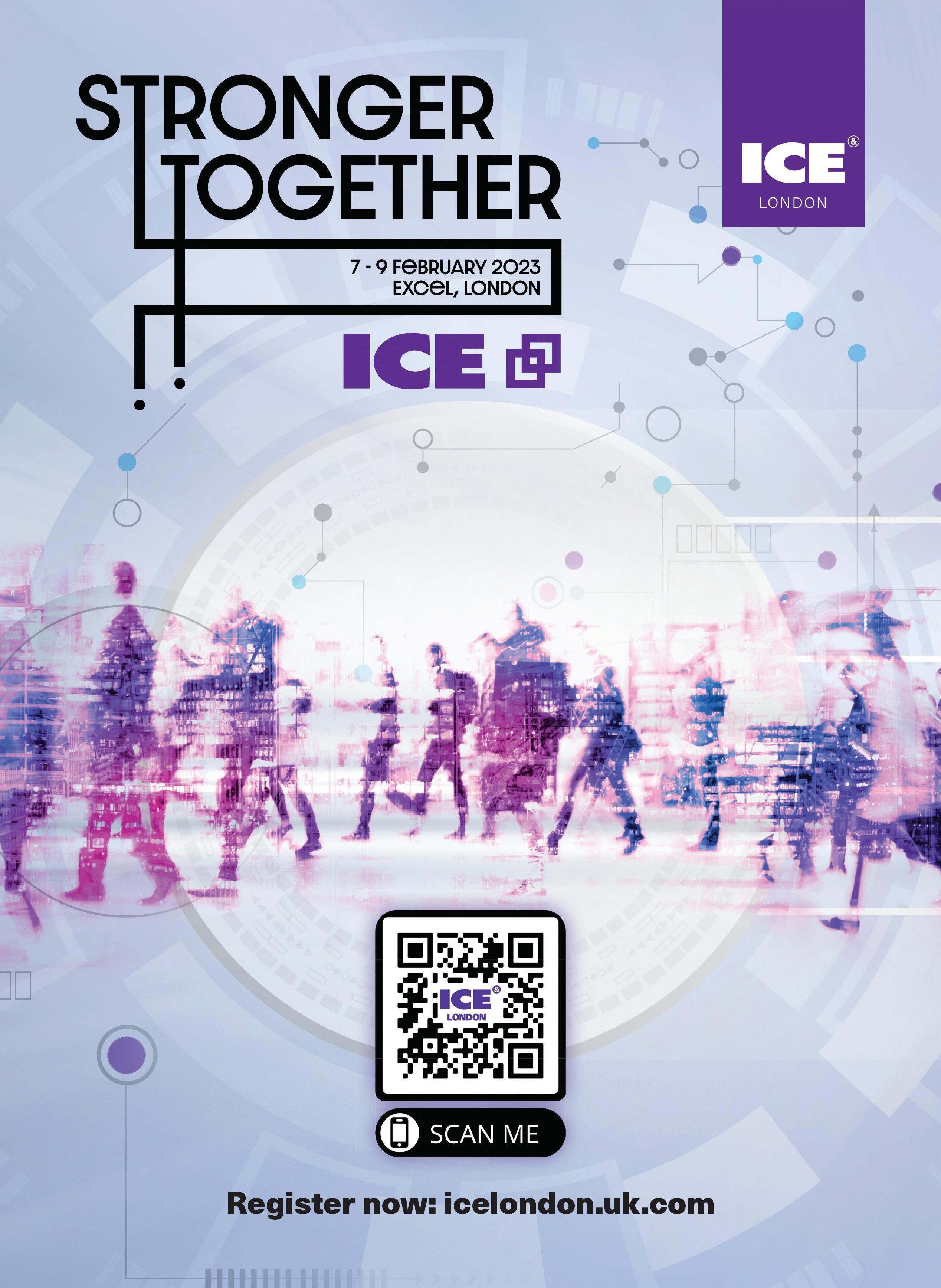
AAardvark Technologies www.adv.bet T: +370 640 50001


E: sales@adv.bet
Aruze Gaming www.aruzegaming.com
T: +1 70 2361 3166
E: sales@aruze-gaming.com
AstroPay www.astropay.com

BBBIN www.bb-in.com E: service@mail.bb-in.com

BetConstruct www.betconstruct.com

T: +44 20 3709 9010
E: sales@betconstruct.com

Betradar www.betradar.com T: +41 7 1517 7200
E: sales@betradar.com
BtoBet www.btobet.com
E: sales@btobet.com
bet365 www.bet365.com

T: +44 80 0028 8365
E: support-eng@customerservices365.com

Continent 8 www.continent8.com T: +44 16 2467 8888 E: sales@continent8.com
DDigitain LLC www.digitain.com T: +3 74 6070 0400 E: info@digitain.com

EElys Game Technology www.elysgame.com T: +1 62 8258 5148

EvenBet Gaming www.evenbetgaming.com T: +3 56 2776 1655 E: sales@evenbetgaming.com

EveryMatrix www.everymatrix.com T: +40 3 7104 2222


E: info@everymatrix.com
Evolution www.evolution.com E: asrealasitgets@evolution.com

Evoplay evoplay.games
E: business@evoplay.games



Exacta Solutions

www.exactasolutions.com T: +356 2134 4249
E: info@exactasolutions.com
FFastTrack

T: +44 113 320 2245
E: letsgo@fasttrack-solutions.com
GGaming Arts www.gamingarts.com T: +1 702 818 8943

Global Payments

Gaming Solutions www.globalpaymentsgaming.com T: 702-822-7000

E: tiona.petty@globalpay.com
Greentube
www.greentube.com T: +43 1 90 171

E: o ce@greentube.com
Interblock www.interblockgaming.com E: info@interblockgaming.com
Kambi www.kambi.com
T: +356 21315514
E: sales@kambi.com


HHabanero www.habanerosystems.com E: sales@habanerosystems.com
leovegasa liates.com T: +356 27780258


E: a liate@leovegas.com

Lightning Box www.lightningboxgames.com E: info@lightningboxgames.com

MERKUR GAMING www.merkur-gaming.com T: +49 5741 2736 9301
E: sales@merkur-gaming.com

IIGT www.igt.com T: + 1 702 669 7777
E: info@igt.com

Neosurf www.business.neosurf.com
T: +44 1483 3630 91
E: sales@neosurf.com
NOVOMATIC www.novomatic.com
T: +43 2252 606 0
E: communications@novomatic.com

Pariplay www.pariplayltd.com T: +3 56 2756 3725 E: info@pariplayltd.com
Pragmatic Play www.pragmaticplay.com E: sales@pragmaticplay.com
Pronet Gaming www.pronetgaming.com T: +44 (0)20 3814 8084 E: sales@pronetgaming.com

RRaven Track www.raventrack.com T: 07799 898 175 E: adam@raventrack.com
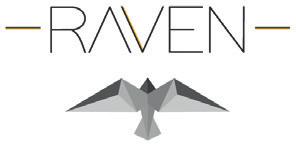
Relax Gaming www.relax-gaming.com E: sales@relax-gaming.com

T VTrustly Group AB www.trustly.com E: sales@trustly.com


VallettaPay www.vallettapay.com T: +44 151 947 0483 E: info@vallettapay.com



WWorld Match www.worldmatch.eu T: +39 049 785 1905 E: sales@worldmatch.eu

YYggdrasil Gaming www.yggdrasilgaming.com E: sales@yggdrasilgaming.com

SSuzo Happ www.na.suzohapp.com T: 888-289-4277
E: sales@suzohapp.com



Soft2Bet www.soft2bet.com E: office@soft2bet.com
ZZitro www.zitrogames.com T: +352 266 33 E: info@zitrogames.com










HAS THE INDUSTRY IMPROVED IN THE UK OVER THE LAST 12 MONTHS FOR SAFER GAMBLING?

It’s definitely moving in a better direction; growth hasn’t been all positive, but safer gambling is seeing a growing trend within the regulated markets – as operators prioritise being seen as responsible corporate citizens. We really saw a big shift in the UK over the Covid-19 lockdowns. During lockdown, the UK brought in more restrictions on advertising gambling on TV. The fear that drove this was obviously that so many people were so isolated, they were more vulnerable and gambling addiction could take a big uptick. I can speak for BetBlocker and say that as soon as lockdown kicked in, we saw our search traffic double overnight. There’s no doubt lockdown had a significant impact on the number of people seeking support to manage their gambling. What I find interesting from the operator perspective is the way these TV operators got around the restrictions, which was to switch their advertising from advertising gambling to advertising safer/responsible gambling tools.
You can call it cynical, but there’s no doubt the operators were doing this to try and ensure their brands continued to be part of the public consciousness. But since lockdown has ended, and the restrictions have ended – just speaking for myself – I see far more advertisements from operators which now influence responsible gambling messaging. It’s no longer just the yellow bar at the bottom of the screen; now they have the personality actively discussing
the tools available to keep players safe. In my opinion, it shows the shift among these big gambling operators – they have realised that by marking themselves as responsible, it is helping them build their brand.
HAS THE GAMBLING COMMISSION BEEN DOING MORE RECENTLY TO PUNISH THOSE GUILTY OF RESPONSIBLE GAMBLING FAILURES?
It’s a difficult topic, because a lot of what the Gambling Commission does in terms of fines is driven by media pressure. That’s not to say the operator can question the fines. But quite often I feel it is the UK regulator trying to justify its own existence by demonstrating how tough it has been on the industry, and that’s why we see this slow and steady escalation of fines every year, both in individual fines and total amounts. I struggle to believe the industry isn’t getting better in understanding what the regulator wants. So operators are getting better at learning what the regulator wants and are delivering that, which would be the logical assumption.
At the same time, the regulator is under intense pressure. The press in the UK is always going to be anti-gambling and I understand that perspective; they are always going to look for the scandals. The media then creates pressure which forces the regulator to respond, and from that it has to be seen as effective. That said, you look at the fines that come out and what concerns me is that the fines almost always focus on a few specific cases of people who have lost very large amounts. Obviously, there has to be some
degree of focus on these high-value cases, but we are creating a system where we value high-value claims to get regulatory attention. Lower-value claims from your average player that have hurt themselves significantly financially are not taken as seriously, because the relative financial impact on them is nowhere near as high. The truth of the UK system is that there are limited resources for UK players when we talk about responsible claims. If you look at the Alternate Dispute Resolution (ADR) in the UK, every operator and every licensee has to have an ADR in place, but the UK guidance for ADR specifically limits the situations in which these ADRs can involve themselves in problem gambling.
While these ADRs manage all kinds of claims, when it comes to whether or not the player should have been allowed to play or not, that decision is reserved for the regulator. This is why we have ended up in a situation where all of the responsible gambling complaints have ended up going to the regulator – and only the highest-value claims seem to result in regulatory fines.
























Yes, my concern is that when we’re talking about responsible gambling claims, we are looking at the most vulnerable individuals and at people who have experienced financial hardship. These claims are effectively being left to seek legal advice, and when we’re talking about people who have experienced financial hardship, they are also the least capable of accessing the legal system.


